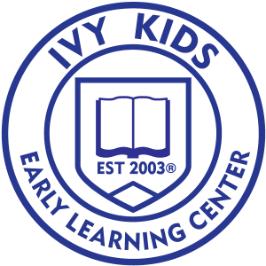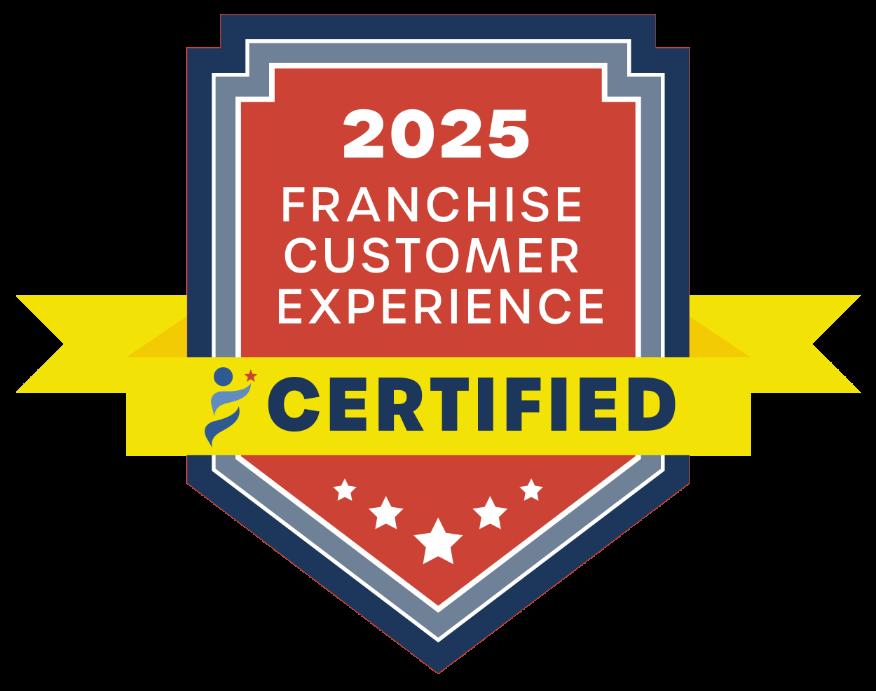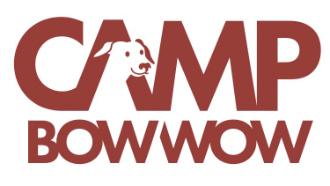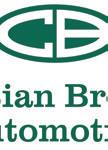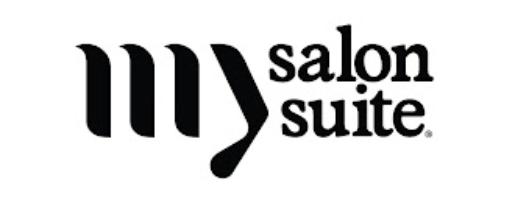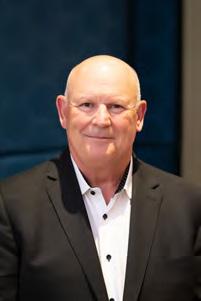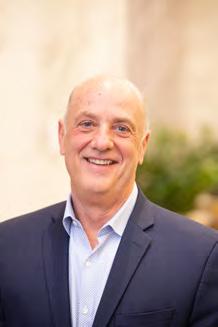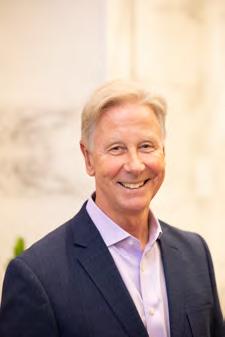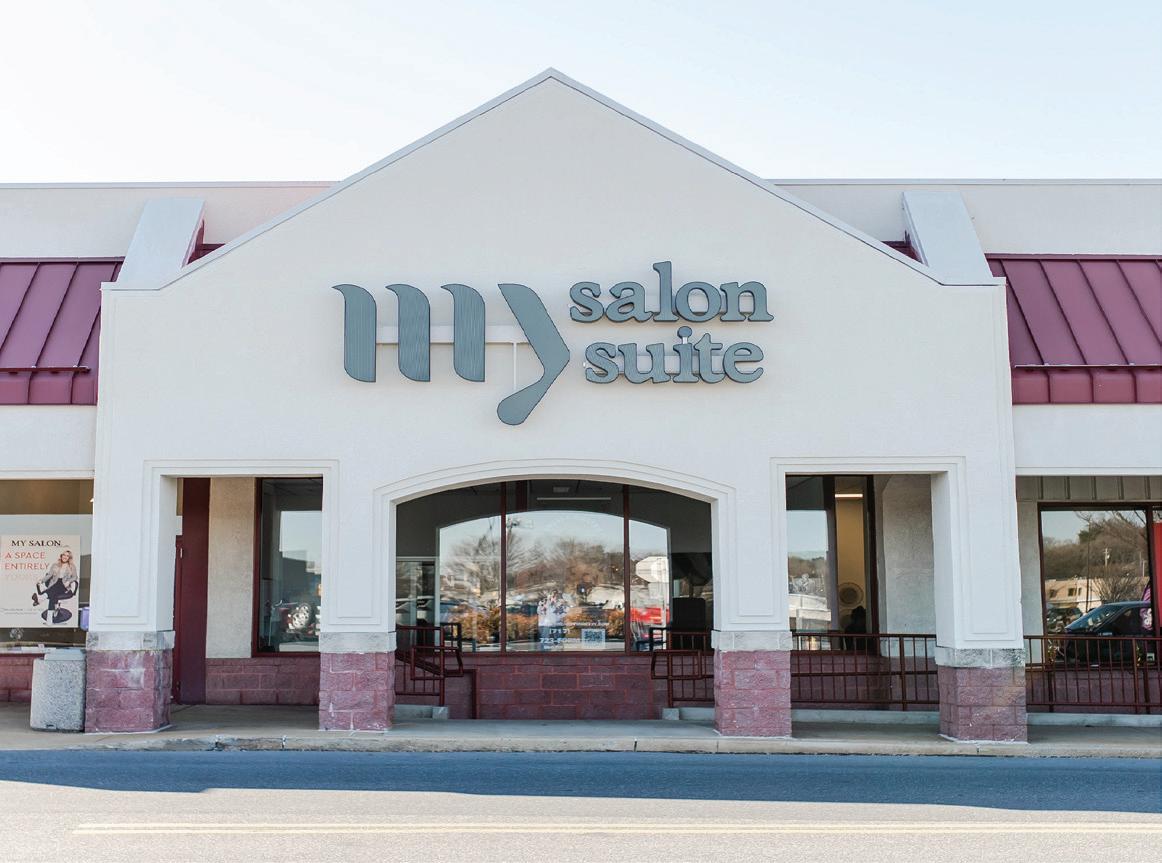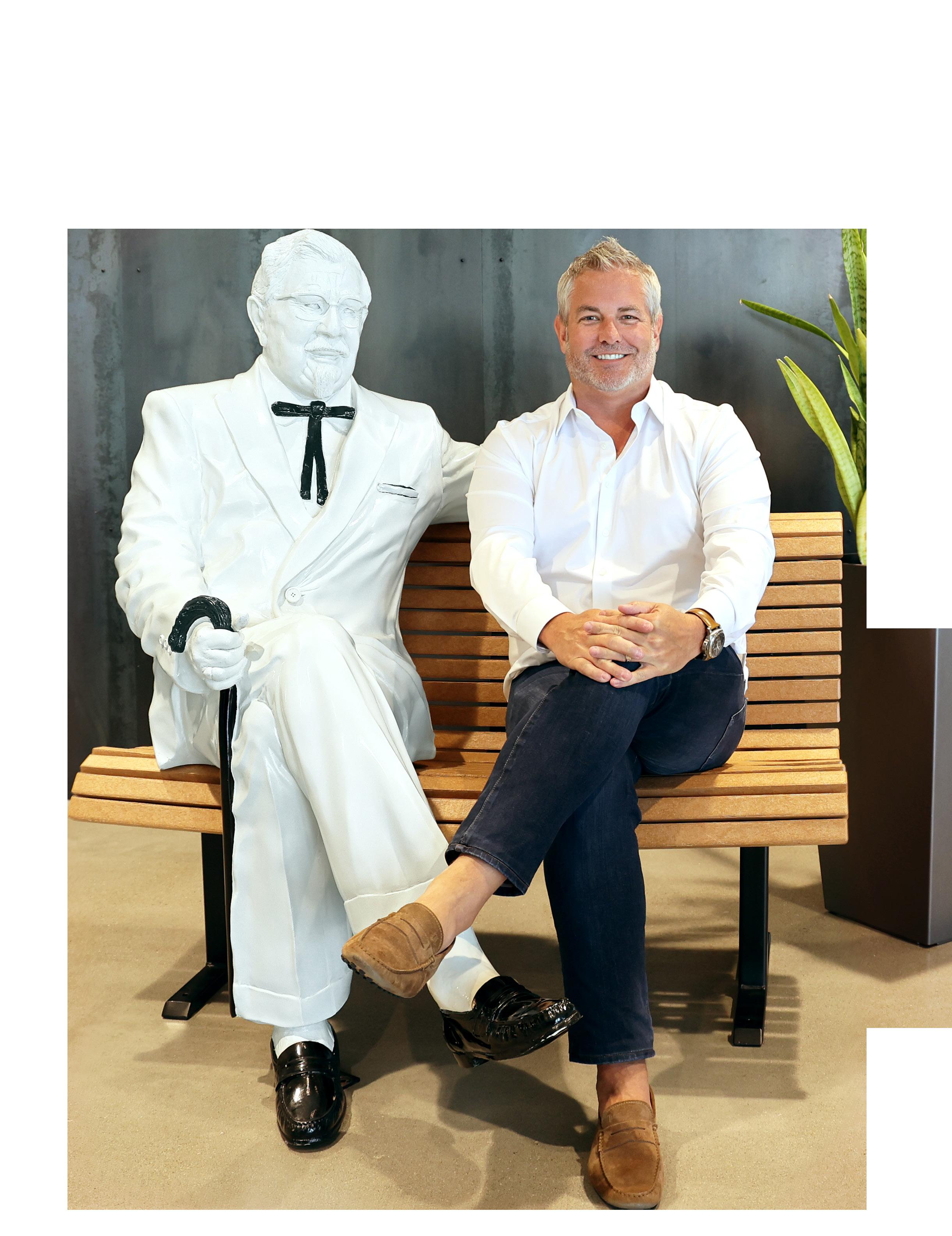

FRANCHISING'S ELITE
Mike Kulp's KBP Brands tops 1,000 locations


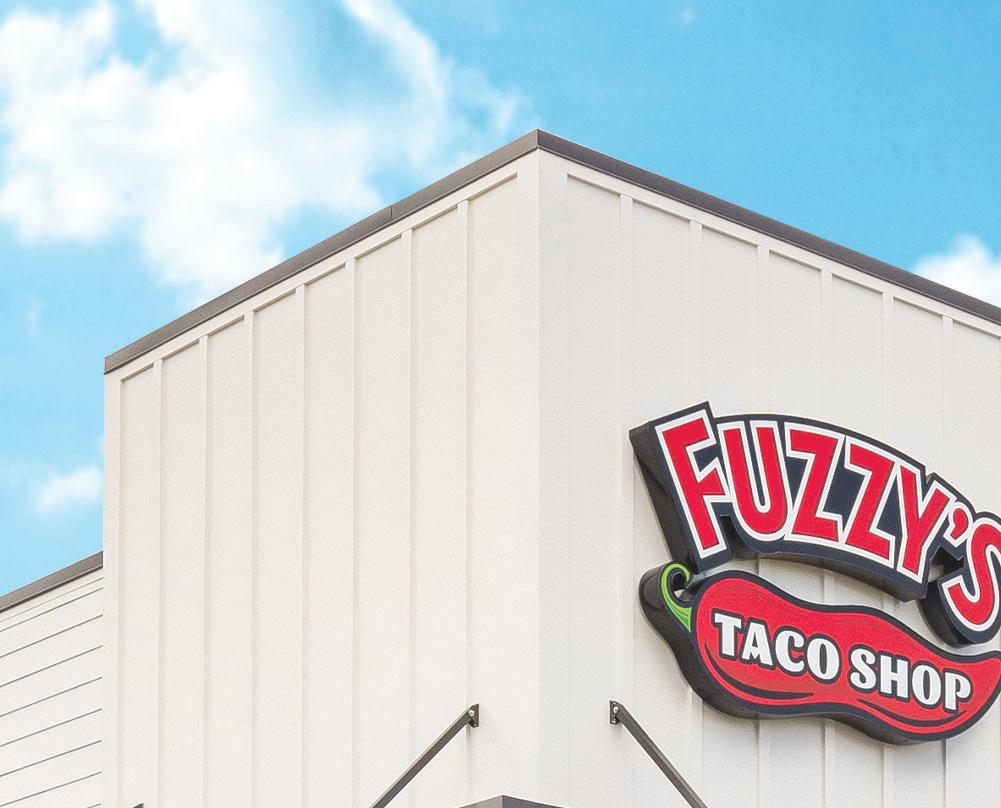
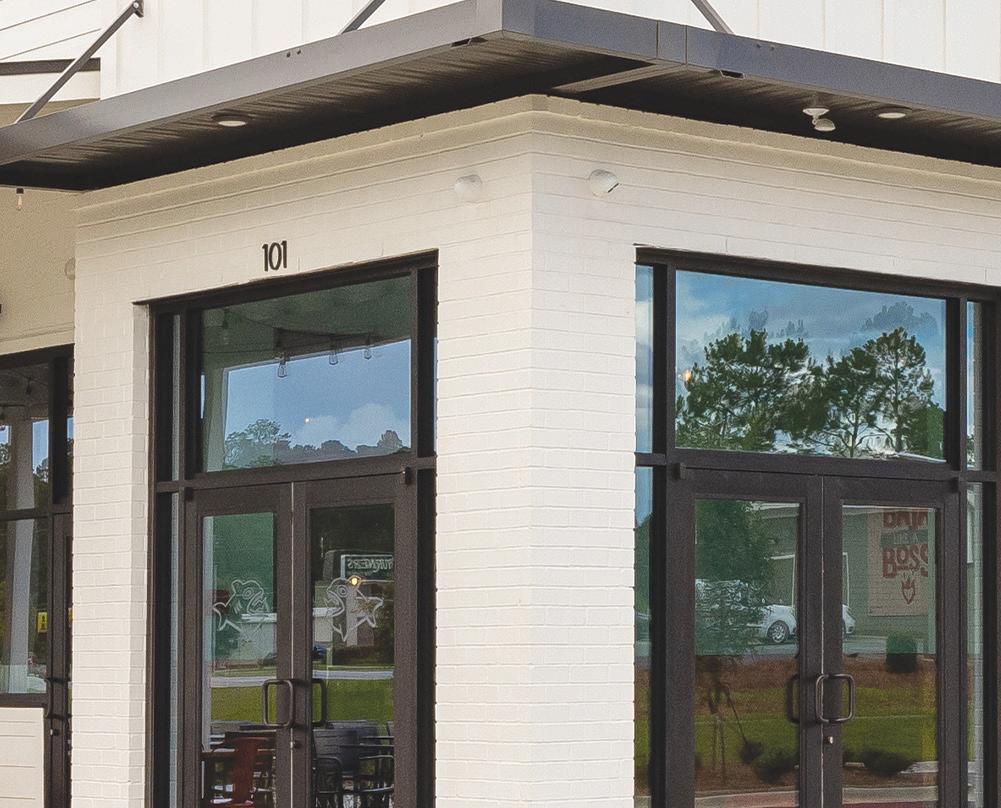






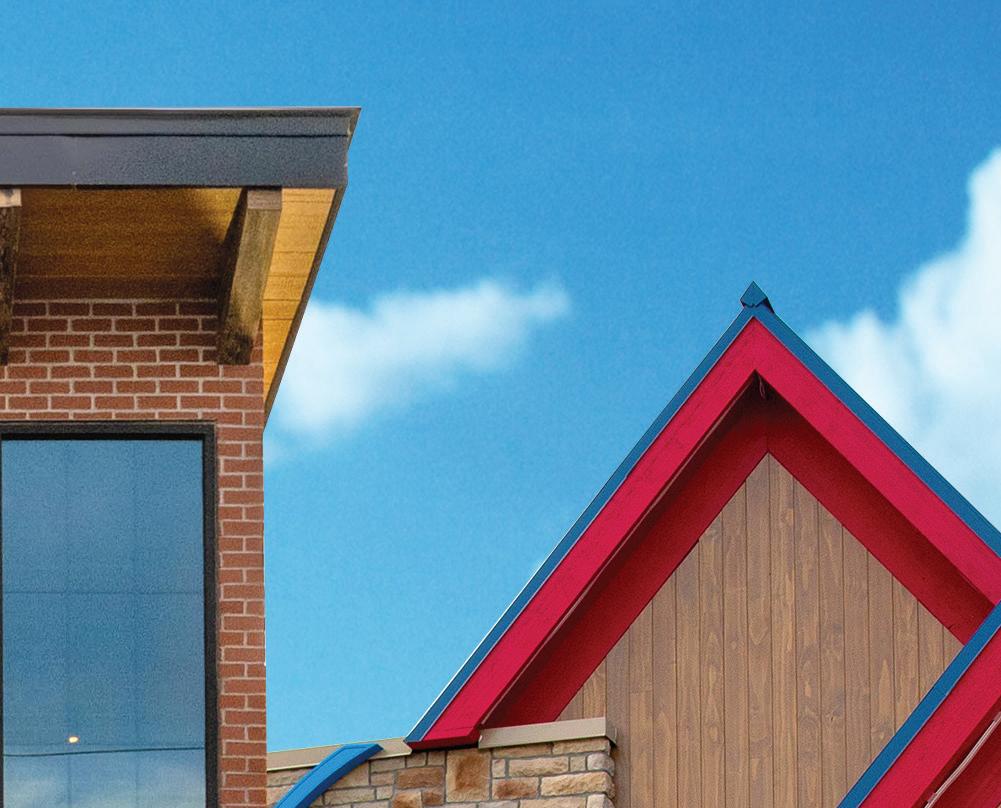
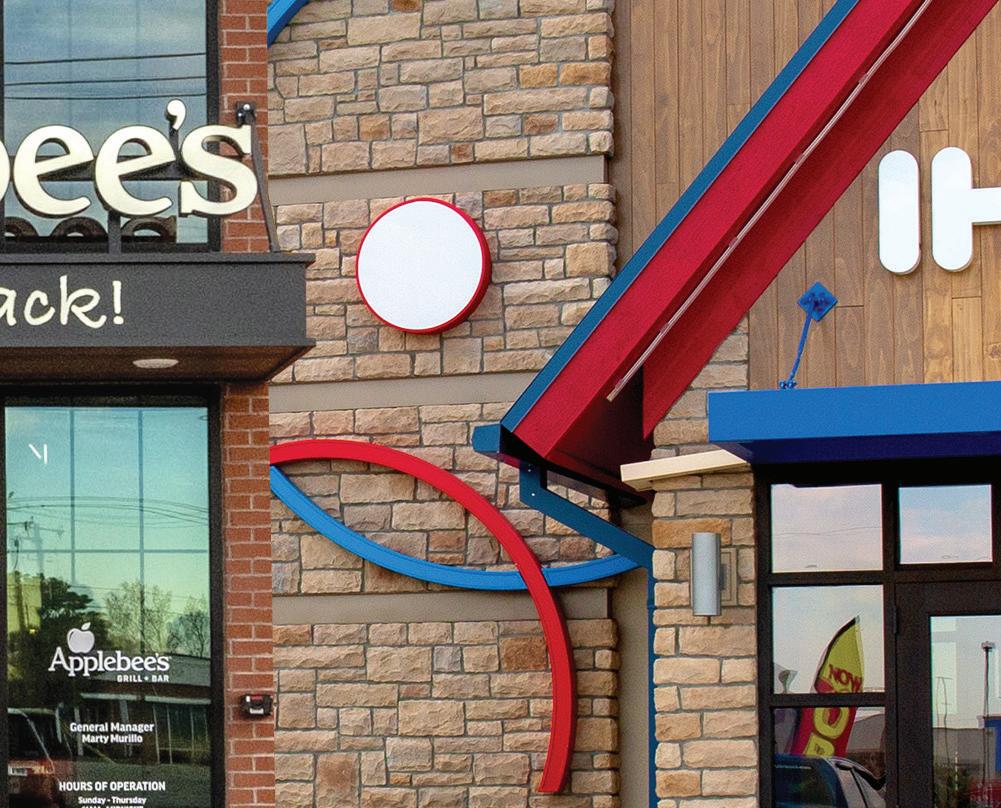


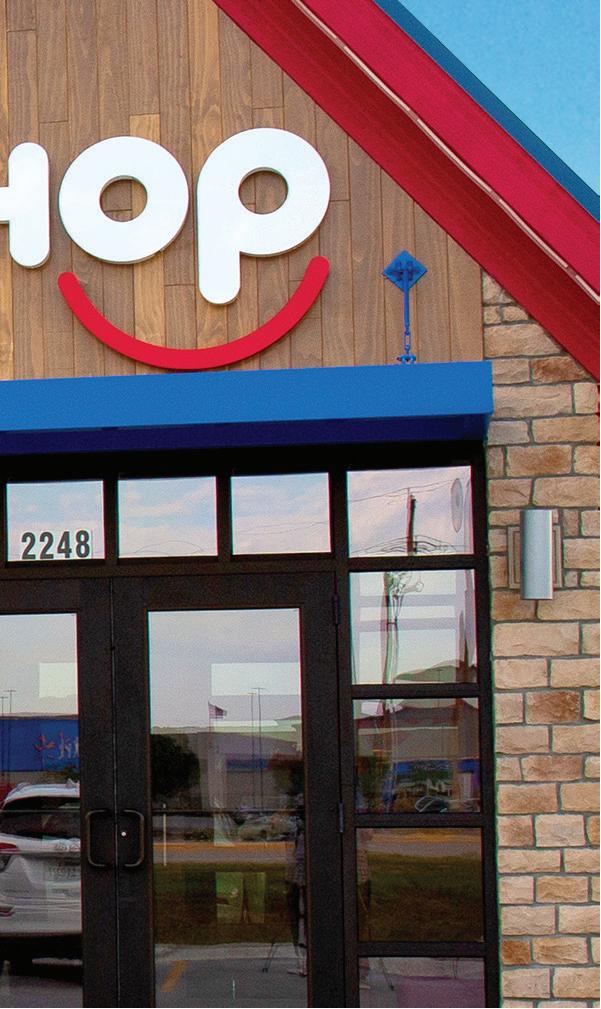

























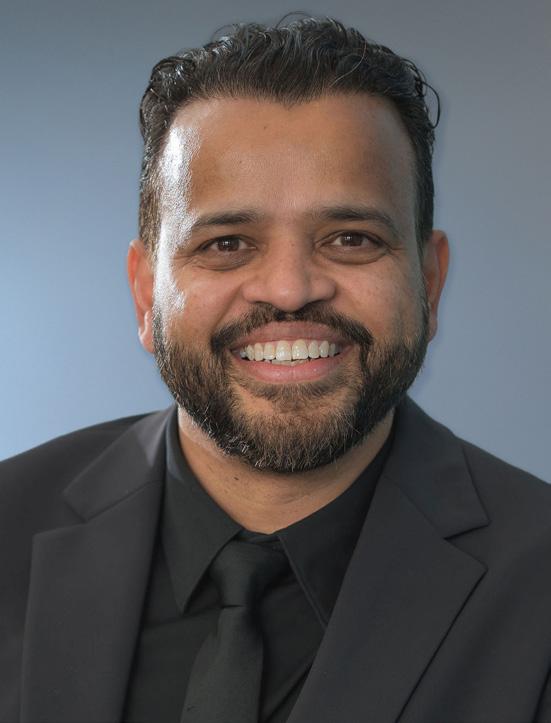

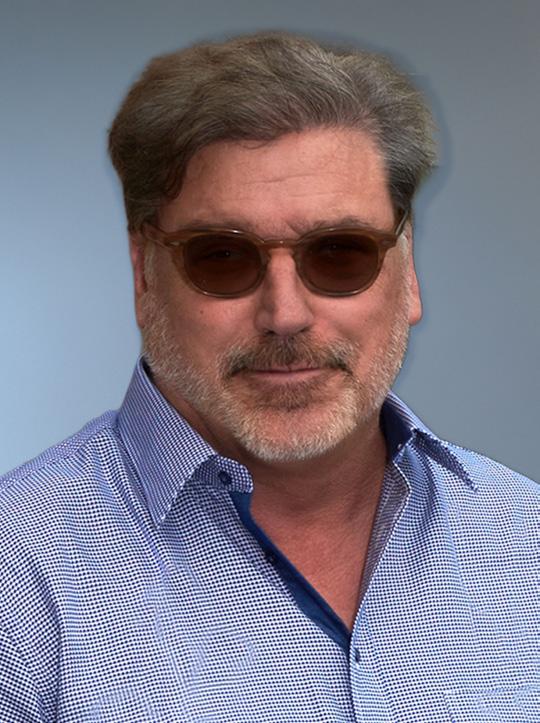
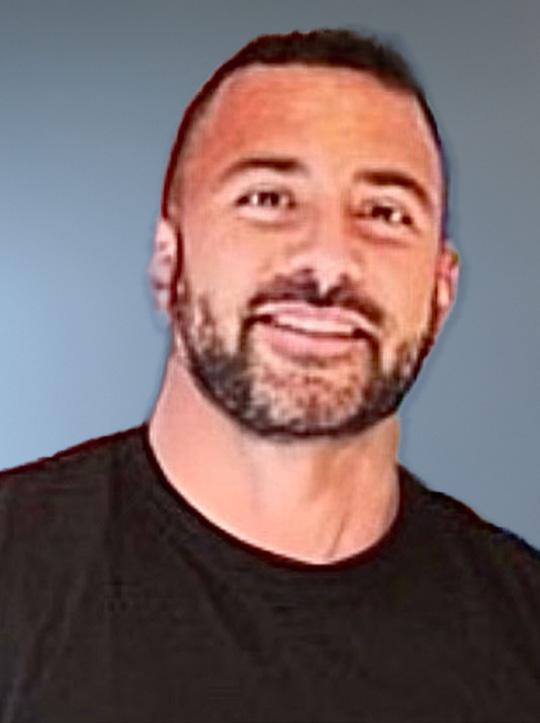


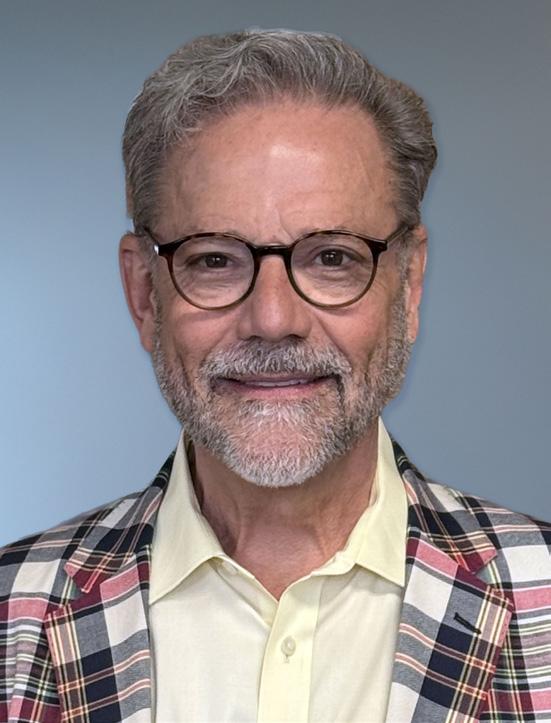
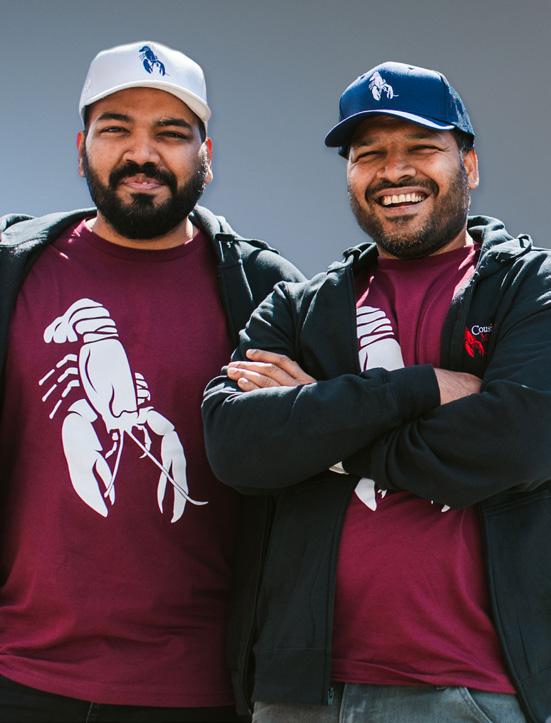
PROFILES
Sumit Bansal
Alex Karcher
Howard Brodsky
Lawrence Kourie
Lee Downing
David Harrison
Mike Kulp
Yunus Shahul



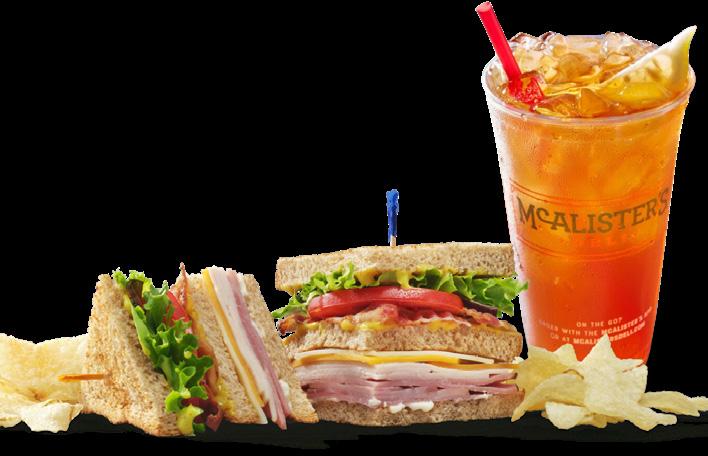

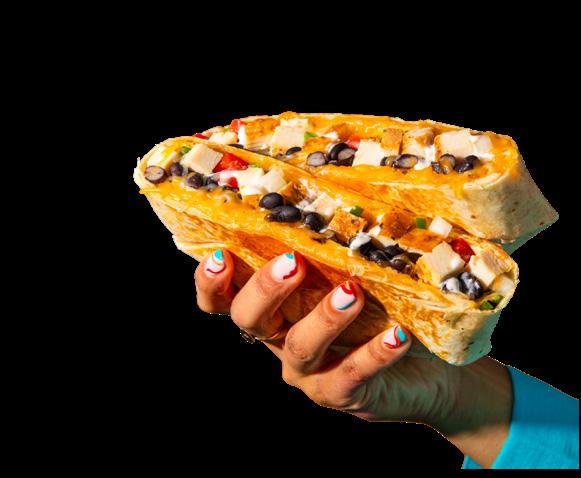
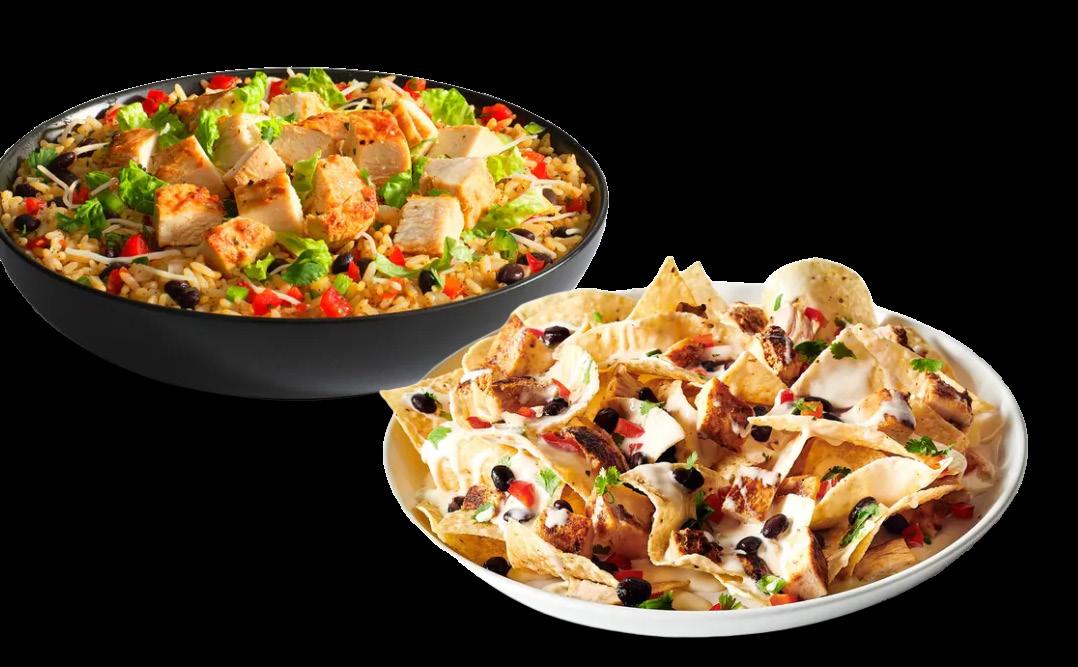


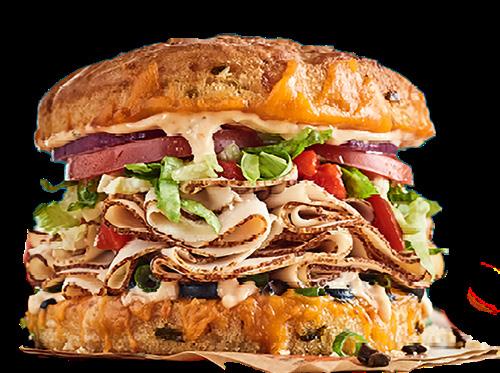



This information is not intended as an offer to sell a franchise. We will not offer you a franchise until we have complied with disclosure and registration requirements in your jurisdiction. Contact Auntie Anne’s Franchisor SPV LLC, Carvel Franchisor SPV LLC, Cinnabon Franchisor SPV LLC, Jamba Juice Franchisor SPV LLC, McAlister’s Franchisor SPV LLC, Moe’s Franchisor SPV LLC, or Schlotzsky’s Franchisor SPV LLC, located at 5620 Glenridge Drive, NE, Atlanta, GA 30342, to request a copy of their FDD. RESIDENTS OF NEW YORK: This advertisement is not an offering. An offering can only be made by a prospectus filed first with the Department of Law of the State of New York. Such filing does not constitute approval by the New York Department of Law. RESIDENTS OF MINNESOTA: MN Franchise Registration Numbers: Auntie Anne’s Franchisor SPV LLC: F-8191, Carvel Franchisor SPV LLC: F-8199, Cinnabon Franchisor SPV LLC: F-8190, Jamba Juice Franchisor SPV LLC: F- 6111, McAlister’s Franchisor SPV LLC: F-8196, Moe’s Franchisor SPV LLC: F-8188, and Schlotzsky’s Franchisor SPV LLC: F-8192.
Multi-Unit Franchisee
FEATURES
Health-related
Semi-absent franchisees
Dialogue and social capital can often resolve disputes
Are you ready for private equity to speed your growth?
COLUMNS
Looking at private equity in early-stage franchises
Operators invest in the future with summer hiring

Our Team
CO-FOUNDER
Gary Gardner
CO-FOUNDER
Therese Thilgen
VP, FUM EVENT OPERATIONS
Sue Logan
VP, FUM MARKETING AND CONTENT
Diane Phibbs
VP, FUM BUSINESS DEVELOPMENT
Barbara Yelmene
DIRECTOR, FUM BUSINESS DEVELOPMENT SALES
Krystal Acre Hope Alteri
Jeff Katis
DIRECTOR, FUM EXECUTIVE EDITOR
Kerry Pipes
MANAGER, FUM EDITOR
M. Scott Morris
MANAGER, FUM EDITOR
Kevin Behan
DIRECTOR, FUM CREATIVE
Cindy Cruz
DIRECTOR, FUM TECHNOLOGY
Benjamin Foley
SENIOR MANAGER, WEB DEVELOPER
Matt Wing
MANAGER, WEB DEVELOPER
Don Rush
COORDINATOR, DIGITAL
Juliana Foley
DIRECTOR, FUM EVENT OPERATIONS
Katy Coutts
MANAGER, FUM EVENT OPERATIONS
Sharon Wilkinson
COORDINATOR, FUM EVENT OPERATIONS
Leticia Pascal
MANAGER, FUM GRAPHIC DESIGN
Michael Llantin
DIRECTOR, FUM CUSTOMER EXPERIENCE
Chelsea Weitzman
MANAGER,
Taylor
COORDINATOR,
Heather
CONTRIBUTING WRITER
Colleen McMillar
CONTRIBUTING EDITORS
John DiJulius Matt Haller
Nichole Holles Larry Layton
Brian Schnell Tori Wagner
Paul Wilbur
SUBSCRIPTIONS
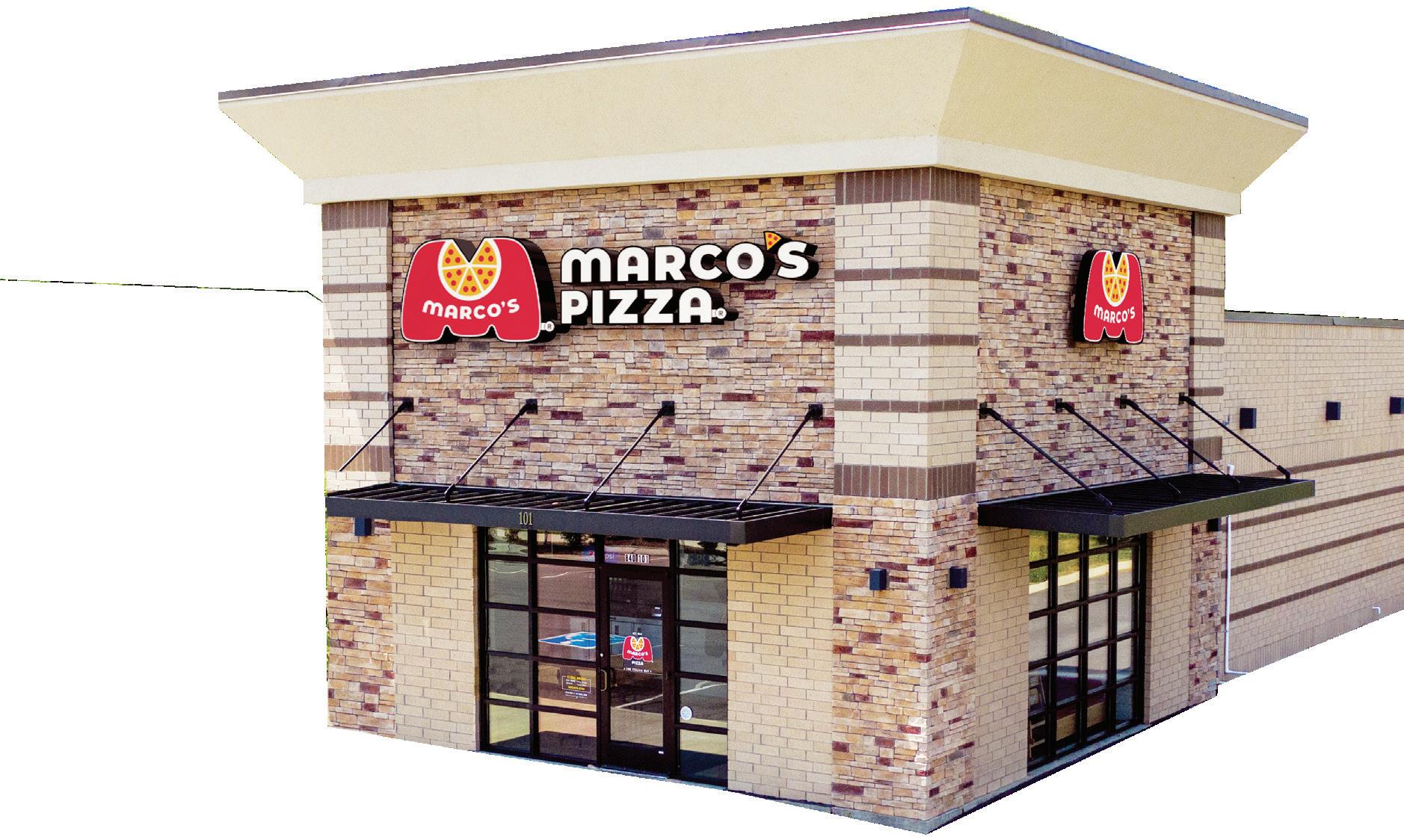
QUALITY TO BRAG
Our flour, sauce and signature three cheeses make our product distinctly Marco’s. We prepare the dough daily in our stores and keep customers coming back.
Connect With the Franchise Family at MUFC 2026
The Multi-Unit Franchising Conference (MUFC) has been a fixture on my annual schedule for more than 15 years now. One might wonder about the benefit of attending the same event year after year.
My answer is simple: I have never encountered a conference that offers so much actionable insight to bring back to my business. In fact, without MUFC, I genuinely believe I wouldn’t own the brands I do today.
But it’s also about the people. MUFC is where you connect with the industry’s top franchise brands, meet visionary brand executives and development teams, and of course, learn from the most successful entrepreneurs.
If you’re a franchisor, this is simply the place to be. You and your team will have unparalleled networking opportunities with leading multi-unit, multi-brand franchisees actively looking to expand their portfolios. And for franchisees, it’s a chance to connect with peers, brands, and suppliers eager to share best practices and forge new friendships within the industry. While I’m not certain of its origin, I’d wager the term “franfam” truly blossomed from the invaluable relationships built at MUFC.
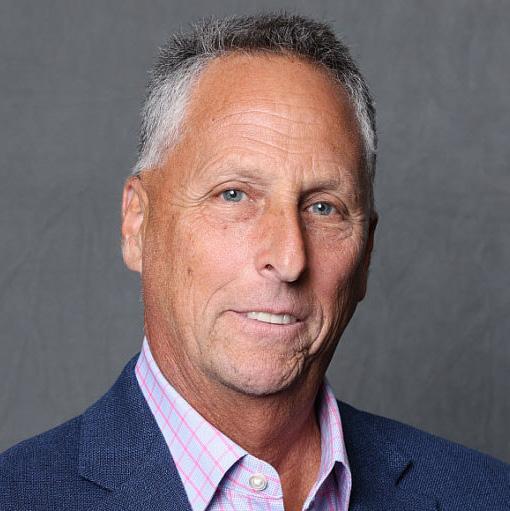
In today’s challenging small business landscape, marked by inflation, tariffs, and labor shortages, MUFC remains a beacon. It’s the singular destination where you can learn, network, be inspired, hear from experts, and gain a clear vision for the future.
I am incredibly honored and proud to serve as this year’s conference chair and follow in the footsteps of many remarkable predecessors. The MUFC advisory board is working diligently to create an exceptional lineup of keynote speakers and a robust agenda of educational opportunities, featuring some of the brightest minds in franchising.
Please mark your calendars now and plan to attend the 2026 Multi-Unit Franchising Conference, March 24–27, at Caesars Forum in Las Vegas. I’ll be there, and I eagerly look forward to meeting new attendees and reconnecting with old friends in my “franfam.”
Mitch Cohen
MITCH COHEN MUFC 2026 Chair




































“I genuinely believe I am just getting started. I’m hungrier now than I have ever been. It is fun, and I enjoy it.”
For the Love of “Nothing”
Franchisee develops his people and then delegates
Written by KEVIN BEHAN
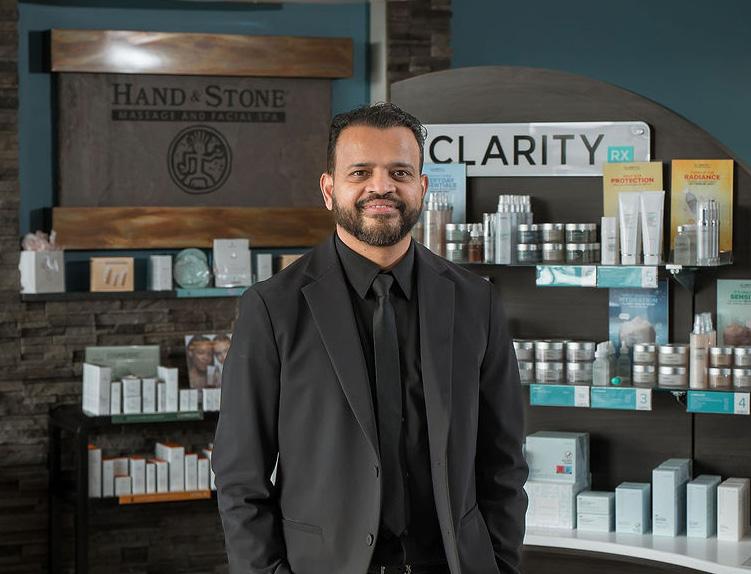
SUMIT
BANSAL
CEO
Company: The Bansal Group No. of units: 14 Hand & Stone
Massage and Facial Spa, 13 Great Clips, 3 The Picklr
Age: 46
Family: Wife Monica and 2 children, Ayaan, 17, and Aanya, 15,
Years in franchising: 20
Years in current position: 20
It might sound counterintuitive for a powerhouse multi-unit franchisee with 30 locations and ambitious plans for $100 million in revenue, but Sumit Bansal thrives on doing nothing. But hang on because there’s more to the story.
Bansal first arrived in the U.S. when he was 21 and soon landed a job as a computer engineer. However, he felt unfulfilled and had the desire to own a business. He was inspired by his father, who operated a steel pipe manufacturing company in India. Bansal’s entrepreneurial spirit ignited at 26, when (with his wife’s blessing) he rerouted a house deposit and part of his 401(k) into purchasing his first Great Clips franchise.
He grew the business to 13 Great Clips units over 10 years before running out of available territories in Michigan. Next, Bansal diversified into the wellness sector, becoming a franchisee with Hand &
Stone Massage and Facial Spa in 2015, and he and his wife now own 14 locations. This past May, he expanded his portfolio again, acquiring three The Picklr pickleball franchises, showcasing his embrace of diverse opportunities.
Business has been good. In addition to the recent pickleball units, he added 10 Hand & Stone spas in the past two years. That growth has more than tripled his overall revenue, and Bansal is now laser focused on reducing operating expenses to increase the overall profitability of his franchise locations.
Beyond the financial figures, Bansal’s true north is fostering a vibrant company culture and an exceptional employee experience. He speaks passionately about the camaraderie and love he observes at each location, viewing his employees as extended family. This commitment to people translates into a deliberate strategy of hiring the right individuals, providing clear direction, and empowering them to lead and excel.
“It is very important that for the people in this business, it is about love and not about money,” Bansal says. “We created such a strong culture and have so many people who have been with us since day one of our business. I want to leave behind memories of them thinking this guy was great to work for.”
After two decades in franchising, Bansal has developed a proven playbook for success, allowing him to replicate winning formulas across his various ventures. He expects his strategic approach will enable him to reach $100 million in revenue with a 15 to 20% EBITDA within the next decade while working fewer than 20 hours per week. By building the right team, Bansal says he can effectively buy back time to focus on delegation and optimization while also enjoying life.
“I enjoy change. Change comforts me,” he says. “I genuinely believe I am just getting started. I’m hungrier now than I have ever been. It is fun, and I enjoy it.”
For a leader who loves to put his feet up and do nothing, Bansal has shown that vision, strategic growth, and a deeply human-centric approach can lead to remarkable results.
PERSONAL
First job: As an intern at Dassault Systèmes, a French software company, when I was 22.
Formative influences/events: When I was in college, I frequented a fancy hair salon and always shared a post-haircut cigarette with the owner. His Mercedes-Benz parked outside became a symbol of
How you give your team room to innovate and experiment: Each manager is empowered to run their store as if it were their baby. They’re given a clear focus, consistent monthly training, and the tools they need to succeed. From there, they have the autonomy to run the show their way. This balance of structure and independence creates ownership, accountability, and strong performance.
my dreams. I told him I wanted one someday, and he replied, “Stay focused. You’ll have more than this.” His words and wisdom over those three years deeply inspired me and shaped my mindset.
Key accomplishments: Building an amazing business family with superb talent. Many of our team members have been with us for a long time on our journey.
Biggest current challenge: I would say the biggest focus is trying to become a profit-focused organization instead of a revenue-focused organization. By the end of 2024, we had built an organization with $15 million in revenue, but the profit wasn’t in line with the revenue. Starting this year, we changed our focus to priorities that helped cut expenses, such as front desk costs and supply costs. We also increased prices. Our efforts boosted profit significantly. The key is to take one topic at a time and nail it down before moving to the next.
Next big goal: Reaching 20% EBITDA with the changes we implemented this year.
First turning point in your career: Ownership of my first Great Clips hair salon. I had no idea how to cut hair or run a business, but I had the fire to do whatever it took. I learned so much in those early years by spending time with my team and growing alongside them.
Hardest lesson learned: Tough times always pass. During those moments, keep doing the right things, and good things will follow.
Work week: In my heart, it doesn’t even feel like I’m working because I truly love what I do. Some weeks are packed with work while others are completely free, creating a perfect balance. No matter what happens, I always say, think, and feel, “Life is good.”
Exercise/workout: Three days a week of strength training. It’s a combination of a social outing and a workout. The gym family is amazing.
Best advice you ever got: A CEO’s job is to focus on the team and not the clients. You take care of
your team and forget about the rest. If the team is good, the clients are taken care of.
What’s your passion in business? I love seeing the love and camaraderie in the teams. It is all about the culture. Starting with the interview of every single person in the company, I make sure they all understand that we look for a culture of love, and each person is going to work with the same departments across all our locations. We truly manage the business like one big family.
How do you balance life and work? I enjoy my work family, my home family, and my friends. It truly feels like it’s an imperfectly perfect life.
Guilty pleasure: Late-night drinks with friends and eating junk food.
Favorite book: The Power of Your Subconscious Mind by Joseph Murphy.
Favorite movie: “3 Idiots.”
What do most people not know about you? I love doing nothing, putting my feet up, watching TV, or spending time with friends. I do a lot of it. Looking at my portfolio, people think I work a lot, but I believe we have done a phenomenal job in delegation. We bring in good people so that I can sit back and think of the next steps for the company.
Pet peeve: Complaining.
What did you want to be when you grew up? A cricketer.
Last vacation: To India with family in March. I always want at least two family vacations each year for a week to ten days. We love exploring the world as a family.
Person you’d most like to have lunch with: Virat Kohli and Yuvraj Singh, my cricketing idols. Kohli is the king of cricket and has the thirdlargest sports following in the world behind Ronaldo and Messi. His passion and attitude to never give up make him the best in the world. Singh is also a cricketer who has always played his heart out. He was diagnosed with cancer in the middle of
the World Cup tournament but continued to play and helped lead India to its first title in 28 years.
MANAGEMENT
Business philosophy: There are a couple of ways I think about it. First, I believe that if you focus on developing great store managers, the stores will naturally take care of themselves. A great manager leads to a great store, and the opposite is just as true. Second, I see each store as one of my kids. As long as they give their best every day and come back knowing they gave it their all, I’m proud. Not every day will be a win, and I don’t care about that. If you bring your best effort consistently, success will follow over time. That’s why we focus on the effort, not just the results.
Management method or style: On the first Monday of every month, I meet with my entire management team. We come together to review the previous month, reset where needed, align on key priorities for the month ahead, and focus on training and execution. It’s a consistent rhythm month after month. That discipline drives strong, steady growth across the business.
Greatest challenge: Challenges are a part of life and business, but I prefer to call them focus areas. It shifts the mindset from reactive to proactive. Right now, my biggest focus is growing EBITDA. That’s where I direct my energy and decisions. A huge top line is great to have, but it is of little significance if the bottom line is not great. I strongly believe you get what you focus on. It has been a huge focus for us, and we are seeing results.
How do others describe you? Love. I often tell my teams that if they are partying, I would love to be there, but I might not be able to join. However, if they are in need, I am always there for them. I have done this for the past 20 years and have built a lot of love in the family. We have been very lucky to be part of so many employees’ weddings and other major life events. I am proud to say that this is a company of love.
Have you ever been in a mentor-mentee relationship? What did you learn? I’m passionate about learning. I actively seek out people who are more accomplished than I am and spend time understanding their experiences. I’ve learned so much from these conversations. They have been one of the biggest drivers of our success. My mentors are like gods to me. Their wisdom, guidance, and example have shaped the way I lead and grow. I highly recommend surrounding yourself with people who inspire you. When you do, great things will follow. One thing you’re looking to do better: Increasing our EBITDA.
How you give your team room to innovate and experiment: Each manager is empowered to run their store as if it were their baby. They’re given a clear focus, consistent monthly training, and the tools they need to succeed. From there, they have the autonomy to run the show their way. This balance of structure and independence creates ownership, accountability, and strong performance.
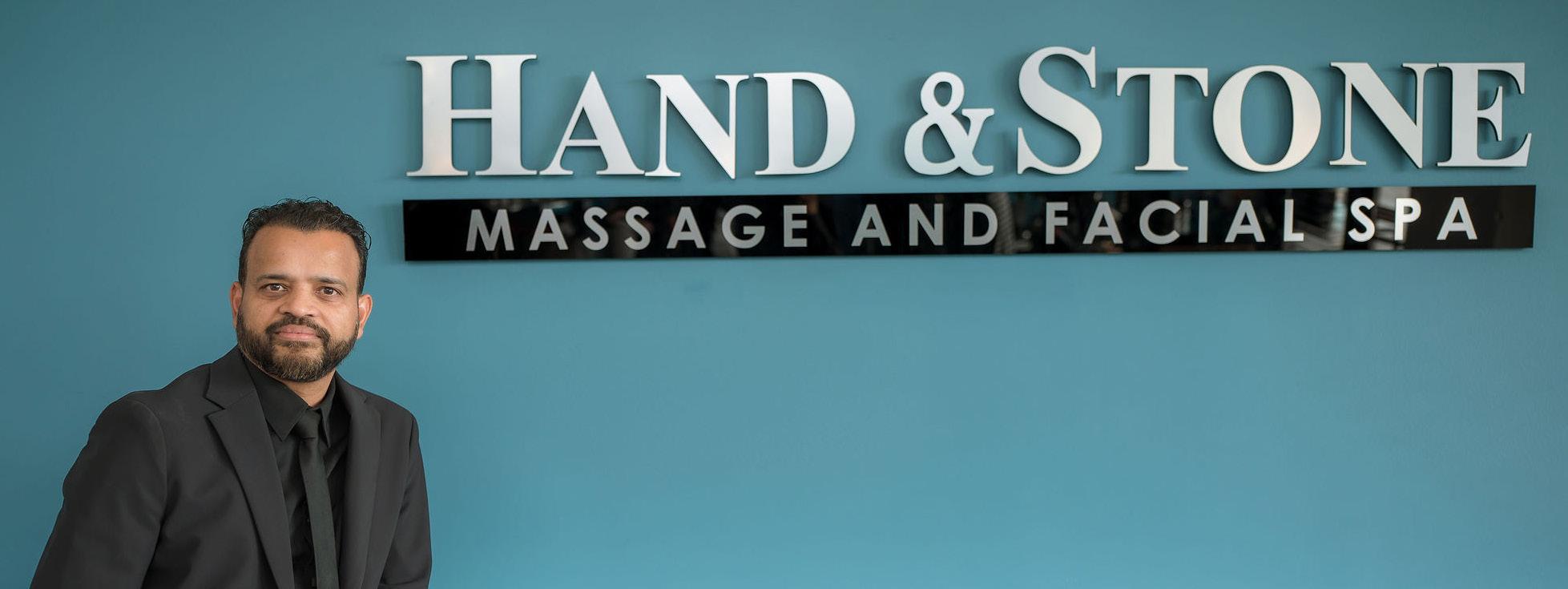
How close are you to operations? I stay close to the management team to set direction and provide clarity. This happens once a month. We’ve built a system that combines alignment with real independence. It’s like being a dad. I know how my kids are doing, but they don’t need to call me for everything. They’re independent, capable, and trusted to make their own decisions, and that’s exactly how our teams operate.
What are the two most important things you rely on from your franchisor? Strong support from the operations team and constant innovation. What you need from vendors: Superb product and competitive pricing.
Have you changed your marketing strategy in response to the economy? How? We have always tried new strategies to keep ourselves ahead of the game. We constantly look for ways to get better. Sometimes we fail in trying, but that’s how we learn.
How is social media affecting your business? It works like a charm if you have someone fully committed to it. Otherwise, don’t do it.
In what ways are you using technology (like AI) to manage your business? I would love for AI to be a bigger part of our business. I don’t think we have tapped the potential yet.
How do you hire and fire? It’s more about the right hiring than the firing. However, if we have to, we try not to wait too long if we have truly determined that someone is not right for the team.
How do you train and retain? Every month, managers receive training followed by training for the entire front desk team focused on that month’s priorities. This continuous learning is deeply embedded in our culture.
How do you deal with problem employees? We coach our management team to treat every employee with respect and have heart-to-heart conversations. We encourage resolving issues in person and never by text and, if possible, not even by phone. More often than not, this approach works.
Fastest way into your doghouse: By complaining.
BOTTOM LINE
Annual revenue: $15 million.
Goals over the next year: To reach $20 million.
Growth meter: How do you measure your growth? Profitability rather than revenue.
Vision meter: Where do you want to be in five years? 10 years? $100 million revenue with 15 to 20% EBITDA and continue to ensure that I work less than 20 hours per week on average.
Do you have brands in different segments? Why/why not? Yes, we do. Diversification is a key part of the strategy, and it has never been more important. I would hate to have all my eggs in one basket should something go wrong. It is important to think about the future and have a balanced operation.
How is the economy in your region(s) affecting you, your employees, your customers? It is the best it could ever be. It’s a great time to be in business.
Are you experiencing economic growth in your market? I believe if you provide five-star service to your clients, they will always come to you. Even in tough economic conditions, your business will do great.
How do changes in the economy affect the way you do business? They don’t. Keep focus within the four walls, and you will do just fine. How do you forecast for your business? I am a numbers person, and at the same time, we have strong financial partners who help us keep the business in check. We maintain a dashboard with all spas and key metrics, such as net member gain, etc. The entire company can see those numbers. This keeps everyone on the same page.
What are the best sources for capital expansion? There are multiple ways: being self-funded from our existing portfolio, seller-financed acquisitions, and franchisee-approved banks.
Experience with private equity, local banks, national banks, other institutions? Why/ why not? Not yet. We look forward to working with private equity in the next three to five years. We are focusing on growing our EBIDTA.
What are you doing to take care of your employees? Nothing is more important than sharing your love with them and making them feel part of the family. We often share a phrase, “Grow with us,” and ask everyone in the organization if they have a desire to grow. I have been surprised by how many people have raised their hands. It is beautiful to see because that helps us make our teams stronger by giving them small tasks and letting them prove themselves. If they keep on proving themselves, they keep on growing.
How are you handling rising employee costs (payroll, minimum wage, healthcare, etc.)? It is a real challenge. You have to keep your benefits with the industry and, at the same time, keep the business profitable.
What laws and regulations are affecting your business, and how are you dealing with them? This is a constant challenge. For example, Michigan recently rolled out the Earned Sick Time Act, which gives employees more vacation time. Even though these are great benefits, they are a constant challenge to the bottom line.
How do you reward/recognize top-performing employees? Recognition and love are the top ways to take care of team members. Promotions help, but there is nothing better than recognition and love. In our annual get-togethers, we honor everyone who has achieved five, 10, 15, or 20 years with the family. We also recognize top performers. What kind of exit strategy do you have in place? We’re just getting started. The momentum we’ve built over the past couple of years has been incredible. We’ve tripled or even quadrupled our revenue, and we’re fired up to do it again in the coming years. No exit plans here. We’re all in for the long game.
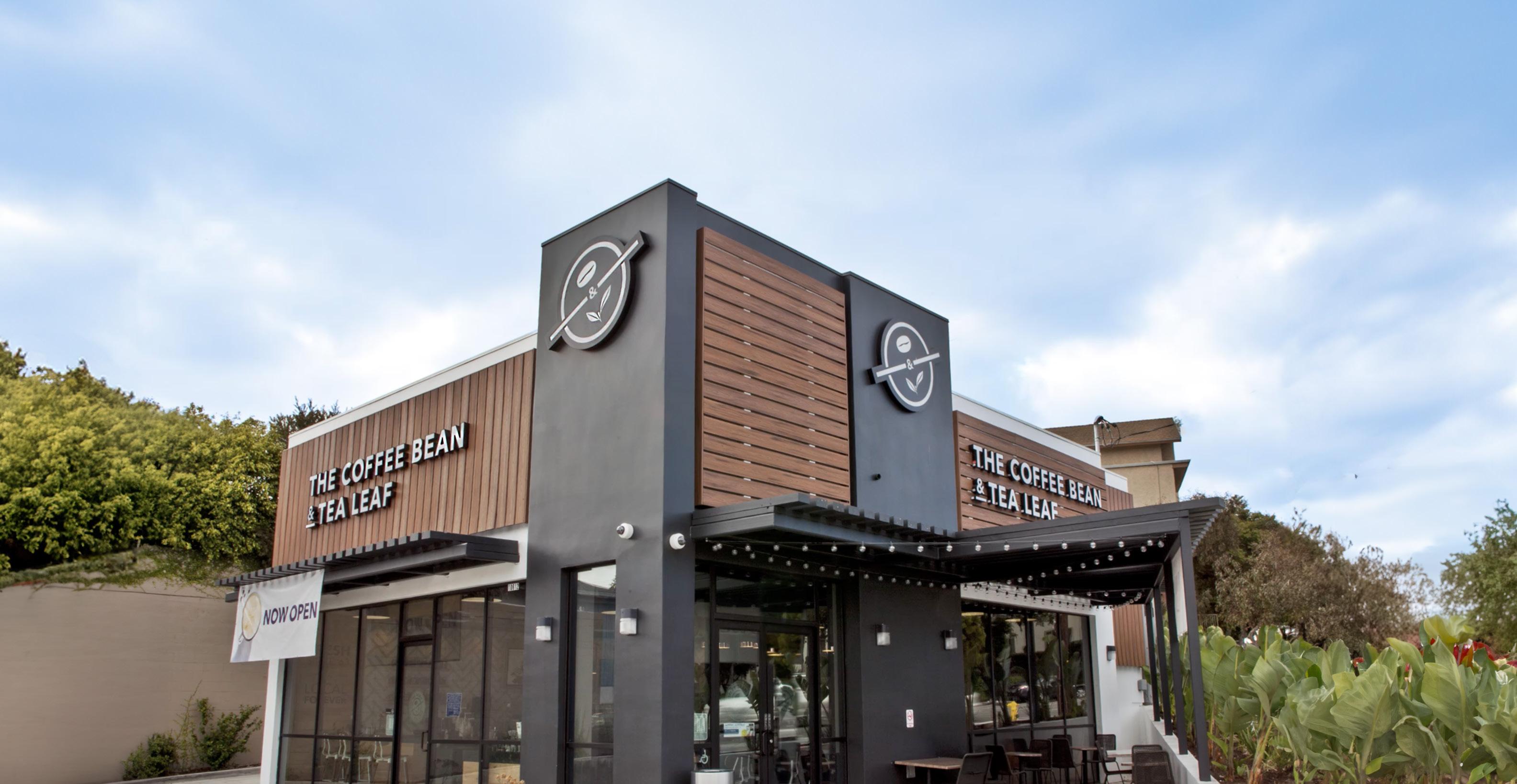
1,200+ cafes worldwide 60+ years of experience
• Established business model
• Scalable cafe format & size
• Professional onboarding & training
• Join a dynamic franchise community
• Continuous innovation
• Ongoing support

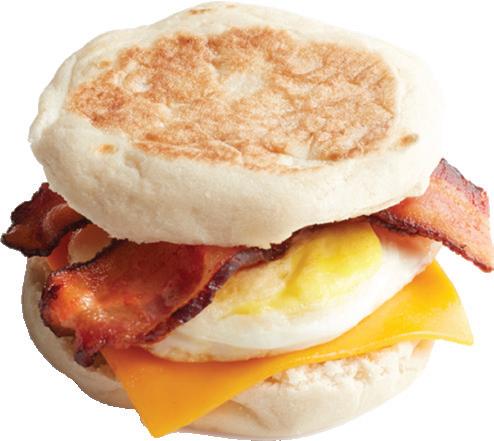




Howard Brodsky
“When you own a franchise, you are handed a playbook for success. That’s what I like about the franchise system.”
The Numbers Guy
After years away, CEO returns to the franchising world
Written by KEVIN BEHAN
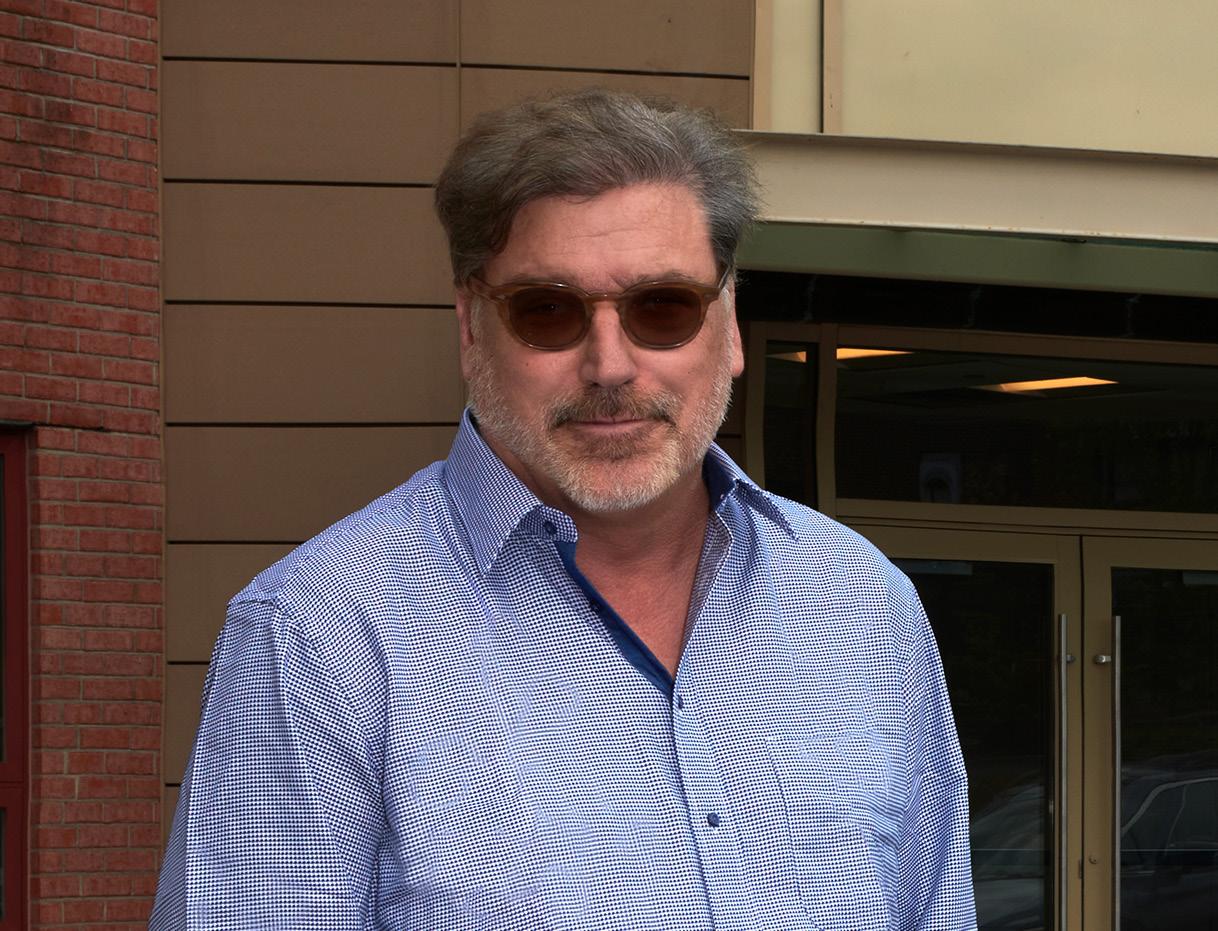
HManaging Partner & CEO
Company: Fraser Road Acquisitions
No. of units: 18 Pure Barre, 5 CycleBar Age: 59
Family: 2 children
Years in franchising: 5
Years in current position: 2
oward Brodsky recalls working as a sales and marketing executive at Crunch Fitness early in his career. He remembers the sweat equity he invested every day for four straight months to help launch the company before finally getting a weekend off. When he returned to the office, company owner Doug Levine asked about the performance of several Crunch locations over the weekend. Brodsky didn’t know the answer.
“Doug rather directly told me to never come in without knowing the numbers, and that always stood out to me,” Brodsky says. “Since that time, I’ve made it a point to constantly know the key metrics for success and how to grow. I’m a numbers guy. I love to dive into the numbers. There are people who feel comfortable keeping a business where it is while others want to see it grow. I am always focused on growth.”
As executive vice president of sales and marketing with Crunch Fitness, Brodsky helped increase revenue from $2 million to $98 million in his seven years with the company. He then moved on to become CEO of the New York Health & Racquet Club, where he doubled the revenue for its 11 clubs over his 11 years there.
Today, Brodsky is again making the numbers work as managing partner and CEO of Fraser Road Acquisitions. Two years ago, he got back into franchising with the purchase of more than 20 Xponential Fitness locations in the New York City metro area and one in Philadelphia. Through the first quarter this year, all 23 of his Pure Barre and CycleBar studios have increased their revenues by double digits since Q1 2024. Brodsky is quick to credit the leadership team and talent in the field for revenue increases.
Not surprisingly, Brodsky has ambitious goals of growing the business in the coming years despite the real estate challenges he faces in adding locations in the New York City area. He hopes to operate 100 Pure Barre and CycleBar units over the next decade. He considers studios in the city—at “the right space at the right price”—while also expanding into the suburbs for new locations.
While Brodsky’s primary interest lies in recognizing important KPIs to increase revenue and grow the business, he is also passionate about the fitness industry, where he has spent the majority of his career.
“In fitness, we have the opportunity to make people healthy and improve their lives both mentally and physically,” he says. “I’ve seen so many personal transitions that are so motivating. It is not just the before and after photos or if someone lost a certain amount of pounds. Fitness and exercise have had a positive impact on weddings, anniversaries, and major events in their lives.”
Brodsky uses the lessons learned throughout his career, as well as the opportunities in franchising, to scale his company. His time with Crunch Fitness molded his drive and work ethic while tapping into his interest in business growth. He learned about branding, communicating, and leading a team in his tenure with New York Health & Racquet Club. He is now applying those traits to his current role while taking advantage of the support offered by franchising.
“When you own a franchise, you are handed a playbook for success,” Brodsky says. “That’s what I like about the franchise system. Sometimes, the playbook needs to change market to market because running a business in Iowa City is different than
Management method or style: Transactional and transformational. Transactional by digging into the numbers and making informed decisions through those. Transformational comes through empowering people to come up with new ideas. That is reflected through the growth and rebranding of a business. It is constantly trying to grow and get better and being openminded. I will test almost anything if it makes sense.
Manhattan. But in general, you get delivered the playbook, and it feels comforting that you have a group behind you that wants you to succeed. You don’t have to reinvent the wheel.”
PERSONAL
First job: I was a caddy when I was 14. That lasted only two weeks because I was too skinny and small to carry two golf bags no matter how hard I tried.
Formative influences/events: Doug Levine was owner of Crunch Fitness, and we worked side by side to launch the company. He was the owner of the Nutrisystem franchises that I worked for.
Key accomplishments: Turning around New York Health & Racquet Club by doubling its revenue from $19 million per year to $40 million. In helping launch Crunch Fitness, we took it from $2 million to $98 million before selling the company.
Biggest current challenge: Real estate opportunities for new Pure Barre studios. In Manhattan, it is about finding the right space at the right price. Our studios need to be column free, so that is a consideration. Although we have two studios in New York City under development, we have been doing better in suburbs like Westchester.
Next big goal: Opening another 25 Pure Barre studios and finding other brands to bring into the Fraser Road Acquisitions fold.
First turning point in your career: Joining Crunch as SVP and working with the founder to start growing the small company. It gave me the passion and love for growing businesses. That is what I love to do. My experience with Crunch was like my working MBA.
Best business decision: Surrounding myself with people who are better than I am in general. At Crunch, we decided on a direction that we were going to grow the business, which was to become a sales organization that is the very best in the industry. Hardest lesson learned: Letting my personal feelings about an individual I was fond of get in the way of a termination that should have taken place. I did not terminate them, and there were consequences.
Work week: I am always on, seven days a week, from when I wake until I go to sleep. I don’t sleep enough!
Exercise/workout: I try to get to the gym four times per week for weights, and I have started to ride the exercise bike.
Best advice you ever got: From Doug Levine when I worked at Crunch, “Always know the numbers.” I have never forgotten that and have operated that way for 30 years. It keeps me on my toes, and since my employees know that I know their numbers, they stay on their toes as well.
What’s your passion in business? I love to see growth in profitability first and foremost but also so many KPIs. Some of those KPIs are year-overyear growth, yearly net income growth, sales closing percentage, cost per lead, and cost per sale.
How do you balance life and work? It has taken me 59 years and a serious life event to teach me to stop and smell the roses in my personal life. I have always been a workaholic, but as much as I worked and traveled, I never missed any of my kids’ games, recitals, or other important events.
Guilty pleasure: Classic cars and motorcycles.
Favorite book: It still remains The Adventures of Tom Sawyer by Mark Twain from my childhood.
Favorite movie: “The Godfather.”
What do most people not know about you? That I had a horse rescue, and I am a Penn State sports fanatic.
Pet peeve: Dishonesty.
What did you want to be when you grew up? An actor.
Last vacation: To Barcelona three years ago. Person you’d most like to have lunch with: Unfortunately, he has passed, but it would be former Penn State football coach Joe Paterno.
MANAGEMENT
Business philosophy: Employees first! Build trust, loyalty, and customer satisfaction. Empower smart, goal-driven people.
Management method or style: Transactional and transformational. Transactional by digging into the numbers and making informed decisions through those. Transformational comes through empowering people to come up with new ideas. That is reflected through the growth and rebranding of a business. It is constantly trying to grow and
get better and being open-minded. I will test almost anything if it makes sense.
Greatest challenge: Hiring and retaining great people. Keeping people loyal and having them want to stay with you. I think it has always been that way, but it is maybe more the case today with people jumping from job to job more often.
How do others describe you? Hopefully loyal and kind but tough at times.
Have you ever been in a mentor-mentee relationship? What did you learn? Doug Levine at Crunch. He taught me all about branding from the logo to the mission statement. I learned a lot from him in my seven years there.
One thing you’re looking to do better: Continuing to drive growth and profitability.
How you give your team room to innovate and experiment: With open communication and the freedom to experiment. I am all for trying new approaches with the understanding that it’s okay to fall short sometimes. But you have to try.
How close are you to operations? Very involved. I try to attend as many meetings as possible, starting with weekly brand GM meetings and leadership meetings.
What are the two most important things you rely on from your franchisor? Innovation and reporting. Much like restaurant franchisees rely on occasional new menu items or promotions, it is important for our franchisor to create new classes to keep our members excited and coming back. That’s why we pay royalties. Reporting is also important, which goes back to the basic KPIs. It helps to have the correct POS systems and see rankings on where everyone stands and comparisons versus sister studios. What you need from vendors: Quality, pricing, timely responses, and delivery.
Have you changed your marketing strategy in response to the economy? How? No. It hasn’t affected us yet. I was prepared to change our marketing with price points and discounting, but we haven’t hit that point yet.
How is social media affecting your business? We are very sensitive to social media and do our best to be on top of all comments and react to them in a positive way.
How is the economy in your region(s) affecting you, your employees, your customers?
People were jittery during the market crash earlier this year. We kept moving forward and were sensitive to their feelings. We wanted to make sure the employees felt comfortable and safe. We didn’t want our employees feeling like they were just a number. That will trickle down to our customers.
In what ways are you using technology (like AI) to manage your business? In the past year, we launched AI in all studios after testing it in a single CycleBar studio. Now, we’re using it across both brands and all studios. Every lead is now responded to by our AI sales rep immediately, and no lead goes unanswered, which is crucial in our New York City market.
How do you hire and fire? More carefully in today’s environment than ever before. I like to hire goal-driven people who care about the work we’re doing.
How do you train and retain? We constantly train using our secret shopper reports that we implemented a year ago as well as weekly sales trainings.
How do you deal with problem employees? Carefully. We have a terrific HR director who is involved with every employee at all levels. If we have a problem employee and they don’t fix the problem, we have to move on. It is often best for both parties. Fastest way into your doghouse: Dishonesty and not knowing your business data (KPIs, revenue, etc.).
BOTTOM LINE
Annual revenue: $19 million.
Goals over the next year: Open three or more new locations and have several more in development. Growth meter: How do you measure your growth? The best KPI is year-over-year comps from revenue, net income, etc.
Vision meter: Where do you want to be in five years? 10 years? In five years, the goal is to have 50 operating Pure Barre and CycleBar locations and to be one of the best operators in the system. In 10 years, I hope to be deciding on a place to retire but running 100 units at the same time.
Do you have brands in different segments? Why/why not? Just the two brands at the moment but always looking for other opportunities.
How is the economy in your region(s) affecting you, your employees, your customers? People were jittery during the market crash earlier this year. We kept moving forward and were sensitive to their feelings. We wanted to make sure the employees felt comfortable and safe. We didn’t want our employees feeling like they were just a number. That will trickle down to our customers.
Are you experiencing economic growth in your market? Yes. Our year-over-year comps are very strong for both brands. That is through our general revenue numbers. We are doing less discounting this year than a year ago.
How do changes in the economy affect the way you do business? We had a contingency forecast for a 6% decrease in revenue for the year if the economy takes a turn for the worse. My strategy is to move forward aggressively and stick with our goal of expanding even with a potential downturn.
We will be extremely cautious and look at each dollar spent.
How do you forecast for your business? At the beginning of the year, we forecasted a 4% growth for our existing locations. We are coming off a very strong 2024, where we had double-digit growth, and we forecasted a bit conservatively. Currently, we’re pacing at 7%.
What are the best sources for capital expansion? Banks and internal sources for Fraser Road Acquisitions.
Experience with private equity, local banks, national banks, other institutions? Why/ why not? It is currently through self-funding. We are also looking into banking relationships. If we continue at our current pace, the plan is to grow the business with cash flow.
What are you doing to take care of your employees? We have several incentives and bonuses to take care of the employees financially, but we try to ensure that we are always there for them for any life challenges, etc.
How are you handling rising employee costs (payroll, minimum wage, healthcare, etc.)? We have to slowly raise our pricing while still staying competitive in the marketplace, and that’s why we have to offer exemplary customer service and an amazing customer experience.
What laws and regulations are affecting your business, and how are you dealing with them? We are just now getting our New York State regulations for our contracts. It is really dealing with consumer agencies and making sure we are compliant every step of the way.
How do you reward/recognize top-performing employees? Company-wide communications, bonuses, financial rewards, etc.
What kind of exit strategy do you have in place? We do not have an exit strategy at this point. Because we are a friends-and-family ownership group, we may hold on to the business while we continue to grow.
EUROPE’S NO.1 FAST FOOD IS TAKING OVER THE USA
Doner Shack, the award-winning and innovative QSR franchise, is expanding rapidly with over 60 units awarded across the U.S. since January 2025, including deals in Texas, Florida, Nevada, and the Northeast.

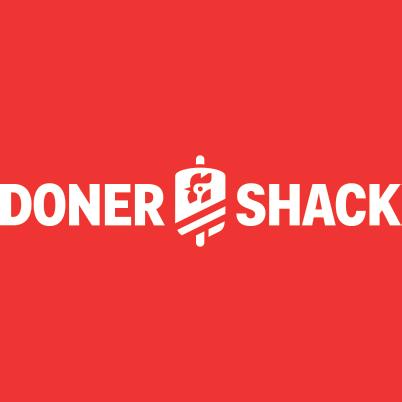

Doner Shack specializes in Kebabs, Chicken, and Fries - delivering high-quality, consistent, and fast service. With rapid global expansion, this is your opportunity to lead in a booming market. Single and multi-unit opportunities are available. Inquire now!
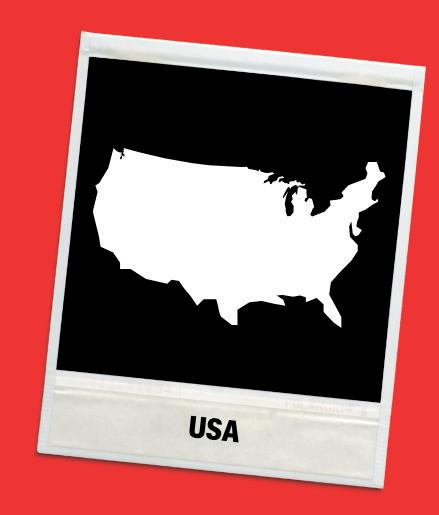

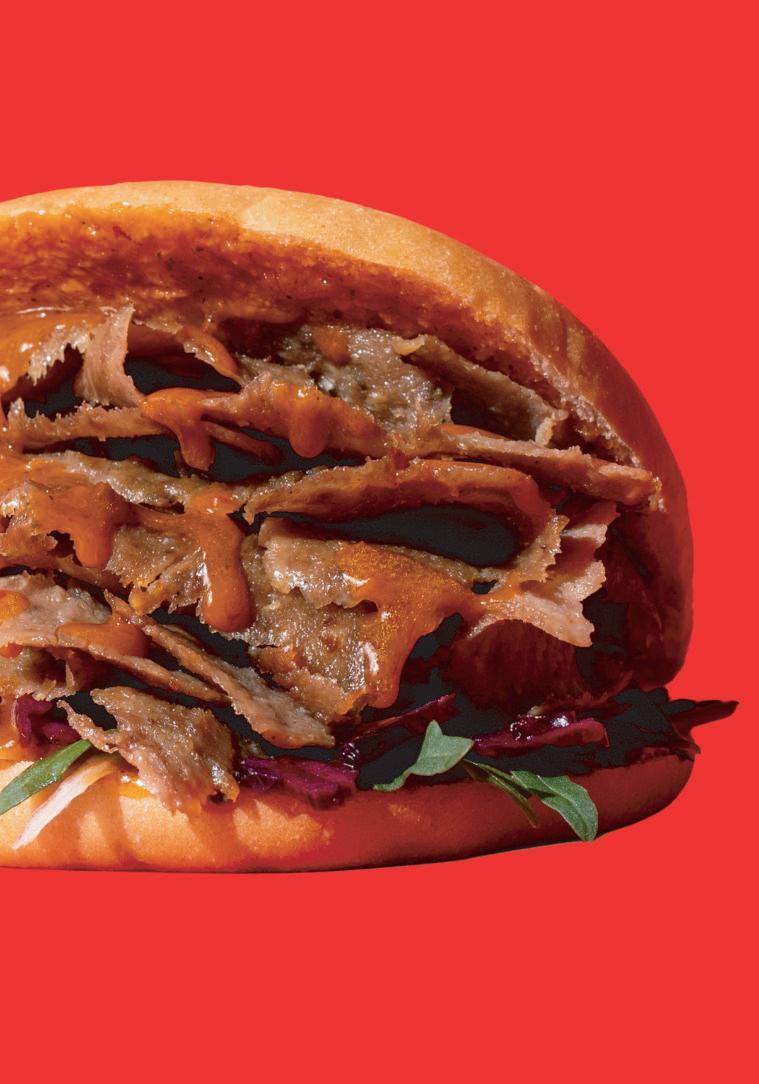

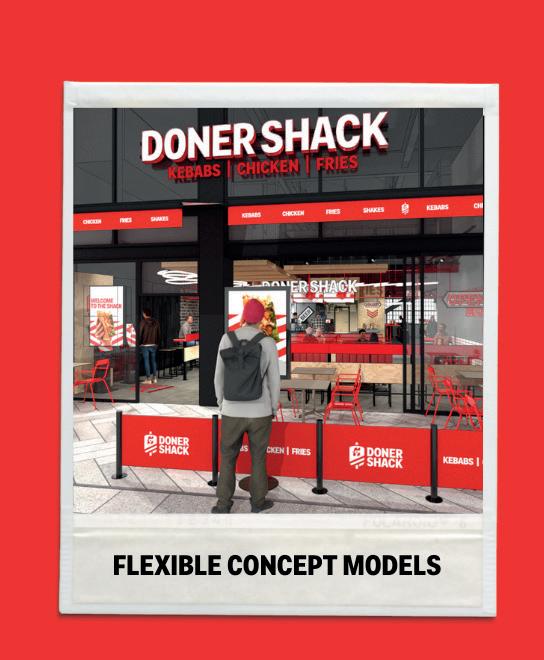

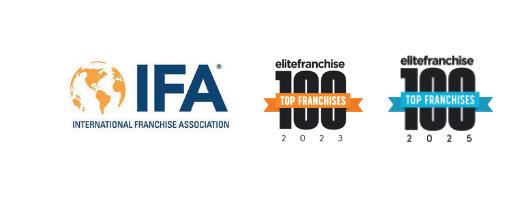




“It’s easy to start strong, but sustaining performance every day matters most, and it takes real discipline.”
A Consistent Approach
Neighborly operator follows the system to success
Written by KEVIN BEHAN
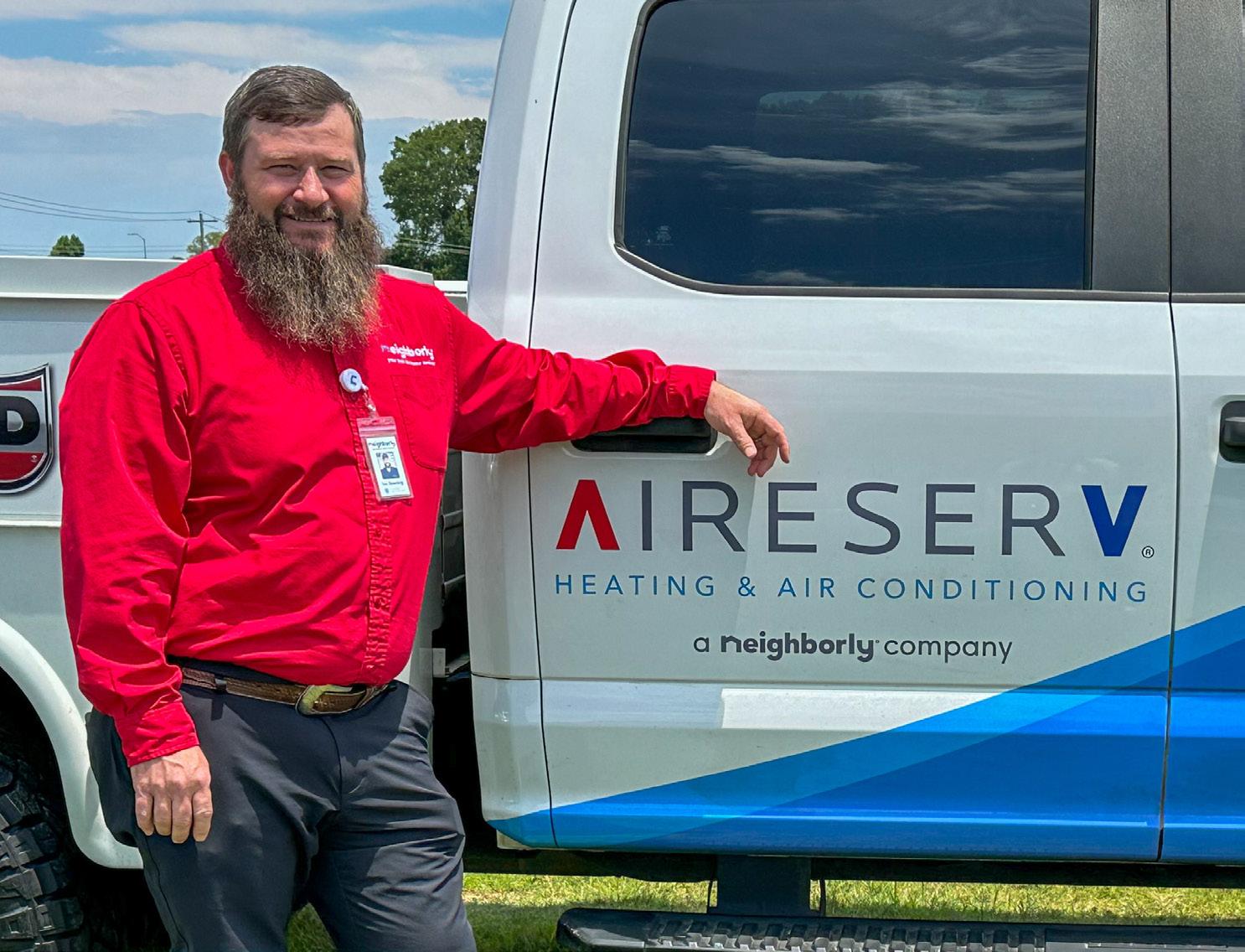
LEE DOWNING CEO
Company: Complete Home Services
No. of units: 8 Aire Serv, 5 Mr. Electric, 2 Molly Maid, 1 Glass Doctor, 1 Five Star Painting
Age: 38
Family: Wife Nikki and 3 children, Riley, Bryson, and Kaylee
Years in franchising: 12
Years in current position: 12
Lee Downing’s start in franchising nearly ended before it began. He was working as an HVAC technician for Baptist Memorial Hospital in Memphis in 2012 when he received a call from an official with the Dwyer Group (now Neighborly), offering to fly him to its headquarters in Waco. Texas, to discuss franchise ownership opportunities. Downing thought it was a prank call and hung up. The representative called back and arranged a visit to the corporate offices, where Downing met with CEO Dina DwyerOwens, whom he had recently seen on the show “Undercover Boss.”
Although he was experienced in the HVAC field, Downing admits to a rocky start as a franchise owner. Feeling that he had a better knowledge of his local market and customer base than those in the corporate office, he rebelled against nearly every bit
of advice the company passed along to him. Finally, there came a breaking point.
“After about two years, I realized what I was doing wasn’t working,” Downing says. “I finally said to them, ‘I will do everything you tell me, and I will show you that it won’t work. If that happens, will you let me out of my franchise agreement?’”
Downing’s failure to prove the franchisor’s processes didn’t work led to his greatest success. He points to one of their recommendations about presenting different service options to customers as an example that helped improve his business.
Downing’s typical service call previously involved assessing an issue at a home and repairing the problem. However, there may be other underlying issues that would later require another call for an additional repair, which would lead to an unhappy customer. Under the new approach, Downing explained to the customer everything that was found and provided all the variables to avoid potential future problems before letting the homeowner make the final decision.
“It is our job to explain to the homeowner all their options and allow them to make the choice,” Downing says. “Ultimately, it is their decision. People don’t want to be sold. They just want to buy things.”
He says that by taking the franchisor’s advice and closely following the systems in place, he quadrupled his revenue within a year. That allowed him to grow his business and acquire other home service franchises outside of HVAC repair. He currently owns 17 Neighborly franchise territories across five different brands.
Downing says it is possible to successfully run any business, regardless of industry, if the owner follows the process and takes care of their employees. He says that while the products or services may differ, the business remains the same. He also credits being part of a franchise network in helping him scale his business. Downing says having a franchisor to provide marketing support, CRM systems, and website management takes work off his plate and enables him to focus on operations. He says another advantage of being part of the Neighborly system is that he can offer complementary services and discounts to homeowners.
With a proven system in place and support from his franchisor, Downing focuses on the growth of his company and the development of his employees. He says he has the right team in place to reach his next goal of $100 million in revenue on his way to becoming the largest franchisee group in the Neighborly system.
Formative
most
influences/events:
Some of the
formative influences in my life have come from experiences that taught me the value of discipline, following a process, and listening to those who’ve gone before me. Whether he knew it or not at the time, my grandfather taught me so many lessons in life that had a major impact on me, like the power of consistency. That has resonated throughout my life, and consistency is one of the main things we teach to our team members today.
PERSONAL
First job: I first started working as an HVAC helper for Walker Heating and Air when I was 13. Formative influences/events: Some of the most formative influences in my life have come from experiences that taught me the value of discipline, following a process, and listening to those who’ve gone before me. Whether he knew it or not at the time, my grandfather taught me so many lessons in life that had a major impact on me, like the power of consistency. That has resonated throughout my life, and consistency is one of the main things we teach to our team members today.
Key accomplishments: I’m proud to have been named Neighborly Franchisee of the Year, Aire Serv Franchise of the Year, and Entrepreneur of the Year. Biggest current challenge: Right now, my biggest challenge is integrating two companies (Aire Serv and Mr. Electric) successfully. It involves aligning cultures, systems, and teams while making sure we maintain strong customer service and operational performance.
Next big goal: To grow the business to $100 million by the end of 2025.
First turning point in your career: A major turning point came in 2015, when I decided to start truly listening and following the process. Up to that point, I thought I had to figure everything out on my own, but once I embraced the proven systems and advice from others, everything started to change.
Best business decision: The best business decision I ever made was joining Neighborly. It gave me access to a network of support, proven systems, and like-minded entrepreneurs who pushed me to grow. Hardest lesson learned: One of the hardest lessons I’ve learned is that I should have hired a CFO much earlier in my journey. Waiting too long cost me valuable time and clarity when it came to financial strategy and decision-making.
Work week: I typically work Monday through Friday, around 40 hours a week.
Exercise/workout: I walk or run a minimum of two miles daily at 5 a.m.
Best advice you ever got: M.B. Walker told me, “Not everyone wants a Cadillac. Eighty percent is good enough.” This advice is a reminder that perfection isn’t always the goal. Sometimes, striving for 100% slows people down, burns out your team, or causes you to miss opportunities. Not every customer wants a top-of-the-line solution. They want something dependable that meets their needs. It’s about getting it right while delivering value and then moving forward.
What’s your passion in business? At the heart of everything I do is a desire to serve, whether it’s my team, our customers, or the community. I believe that business is about people, and when you focus on helping people succeed, your success naturally follows. I also have a deep passion for growth, not just financial growth, but personal and professional growth.
How do you balance life and work? I believe you must make time for anything you truly want. You must set priorities and be intentional with your schedule so that your business and personal life both get the attention they deserve.
Guilty pleasure: I love adventures and anything outdoors. I like wearing camo and sneaking away for a quiet afternoon of fishing. It clears my head and is a great way to relax. Cooking different types of foods in very large quantities for my family, friends, and team is also something I love to do.
Favorite book: The Power of Consistency by Weldon Long. It taught me that success comes from small, disciplined actions done consistently over time. The book reinforced the importance of aligning my daily habits with long-term goals, something that’s been key in both my personal growth and business success.
Favorite movie: My favorite movie is “The Help” because it’s a powerful story about courage,
dignity, and standing up for what’s right even when it’s hard to do.
What do most people not know about you? How much time I spend on the phone. It’s a big part of how I stay connected with my team, solve problems quickly, and keep my business moving forward.
Pet peeve: Dishes left in the sink. It feels like such an easy thing to take care of, and when it’s not done, it signals a lack of consideration for others.
What did you want to be when you grew up? A firefighter. I admired the bravery and purpose behind that job, and I always liked the idea of helping people during critical moments.
Last vacation: A fishing trip to Marco Beach in April. It was a great chance to unwind, enjoy the water, and recharge. Nothing beats a peaceful day of fishing and time away from the daily grind.
Person you’d most like to have lunch with: Country music artist John Conlee. I’ve always appreciated his music and the down-to-earth stories he tells. I think he’s someone who’d have a lot of wisdom and good conversation to share.
MANAGEMENT
Business philosophy: My business philosophy is to lead by example. I believe people will follow what you do more than what you say.
Management method or style: Hardcore. I hold high standards, but it’s rooted in my wanting people to succeed.
Greatest challenge: Consistency. It’s easy to start strong, but sustaining performance every day matters most, and it takes real discipline.
How do others describe you? Crazy but caring. I am an intense person, but people know my heart is in the right place.
Have you ever been in a mentor-mentee relationship? What did you learn? Yes. I have been on both ends. I always use it as an opportunity to learn. I like it when people are brutally honest. Honesty truly helps me grow faster and avoid blind spots.
One thing you’re looking to do better: I want to be healthier. It’s easy to prioritize business, but I know my energy depends on staying strong and well.
How you give your team room to innovate and experiment: I encourage smart risks and support my team when they try new things even if it doesn’t work out the first time.
How close are you to operations? I don’t have to be, but I like to be. Staying involved keeps me grounded and aware of the real challenges my team sees out in the field.
What are the two most important things you rely on from your franchisor? To be a sounding board for me and to take the walls down. I need transparency and a partner who will challenge me, not just agree with me.
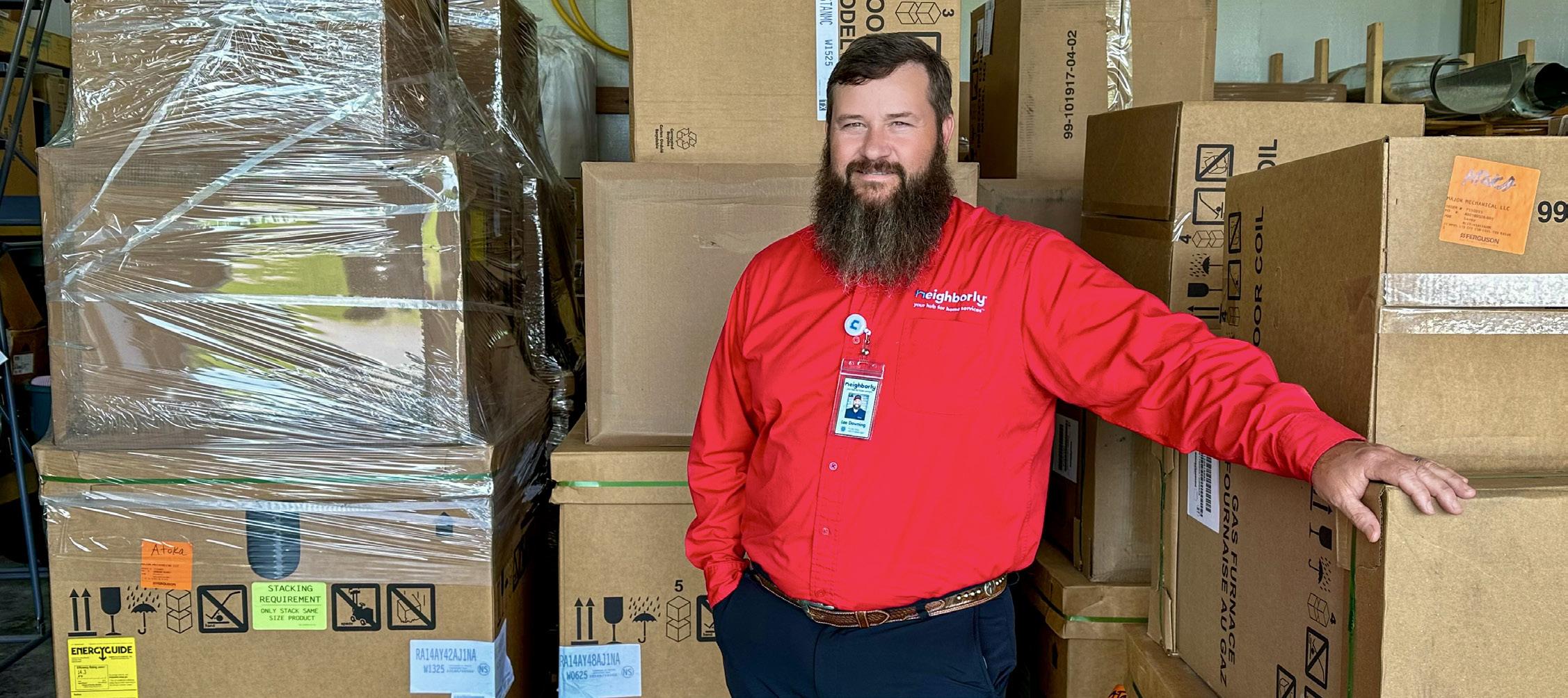
What you need from vendors: Streamlined support and no friction. I value working with partners who make things easier, not more complicated. Have you changed your marketing strategy in response to the economy? How? Yes. I’ve spent more and optimized more. I like to double down on what works and to make adjustments fast to stay ahead.
How is social media affecting your business? It is great. It helps us connect with customers fast and showcase our team’s personality.
In what ways are you using technology (like AI) to manage your business? In all avenues, such as call center, marketing, in-home recording, and tech coaching. AI helps me work smarter and personalize the customer experience better.
How do you hire and fire? We use a platform called Paradox for hiring, recruiting, and training. An AI assistant responds to an application and sets up a phone interview. We then perform a DISC assessment to assess a candidate’s personality and whether they would be a fit with us. We aim to hire for fit, and I hold people accountable with clear metrics.
How do you train and retain? We hold daily sessions for individuals and twice-weekly sessions for teams. We host PowerBoost events on Saturdays once a quarter, which provide company-wide training opportunities. In addition to the training, it includes role-playing sessions and fun team-building events in the evening. My team’s culture of constant learning keeps my team growing and engaged.
How do you deal with problem employees? Coaching and one-on-one meetings. I believe in giving people a real chance to improve before making tough calls.
Fastest way into your doghouse: I try not to have one. I lead with grace, but a lack of ownership is something I won’t ignore.
BOTTOM LINE
Annual revenue: $70 million. We’ve worked hard to build a strong foundation, and it’s paying off. Goals over the next year: Grow to $100 million. We’ve got a clear road map and the right people in place to get there.
Growth meter: How do you measure your growth? We monitor KPIs in real time to help us make quick, informed decisions. Our CRM tracks daily revenue and daily sales, and we constantly watch it to see if we are meeting our goals. We have a saying that the circle of life for our company is from the call center to the janitor. Having all this data helps us make good decisions.
Vision meter: Where do you want to be in five years? 10 years? I want to be the largest Neighborly franchise owner. I want to set the standard that others aim to follow.
Do you have brands in different segments? Why/why not? Yes. I like spreading the risk and leveraging leads across multiple verticals. It also allows us to create cross-promotional opportunities and serve more customer needs.
How is the economy in your region(s) affecting you, your employees, your customers? It’s different than before but still growing at 24%. We’re adapting and finding ways to scale profitably. Are you experiencing economic growth in your market? Yes. We see consistent demand and increased service volume month over month.
How do changes in the economy affect the way you do business? Being flexible is important. We adjust our pricing, marketing, and staffing as needed to stay resilient.
How do you forecast for your business? Yearover-year projections. We also evaluate by quarter to ensure we’re staying on track or need to pivot as needed.
What are the best sources for capital expansion? We look for partners who believe in our longterm vision, not just the numbers.
Experience with private equity, local banks, national banks, other institutions? Why/ why not? We do leverage local banks, and we are very familiar with private equity. The best time to get a line of credit is when you don’t need it, so we stay prepared.
What are you doing to take care of your employees? I like to celebrate birthdays and anniversaries, take them to lunch, do company outings, take reward trips, etc. When employees feel seen and valued, they bring their best every day.
How are you handling rising employee costs (payroll, minimum wage, healthcare, etc.)? We price to be able to take care of our employees. If you take care of your people, then the rest is history, and your customers feel the difference too.
What laws and regulations are affecting your business, and how are you dealing with them? They are improving the industry and allowing the industry to require better-trained teams. We’re proactive with compliance so that we can lead, not chase, industry standards.
How do you reward/recognize top-performing employees? Trips, annual awards ceremony, SPIFFs, vacations, etc. Recognition fuels motivation and loyalty.
What kind of exit strategy do you have in place? I plan to grow a leadership team and add partners. I will eventually serve in an advisory role followed by retiring one day. Succession planning is already part of how I lead today.
THE POWER MOVE IN YOUR FRANCHISE PLAYBOOK
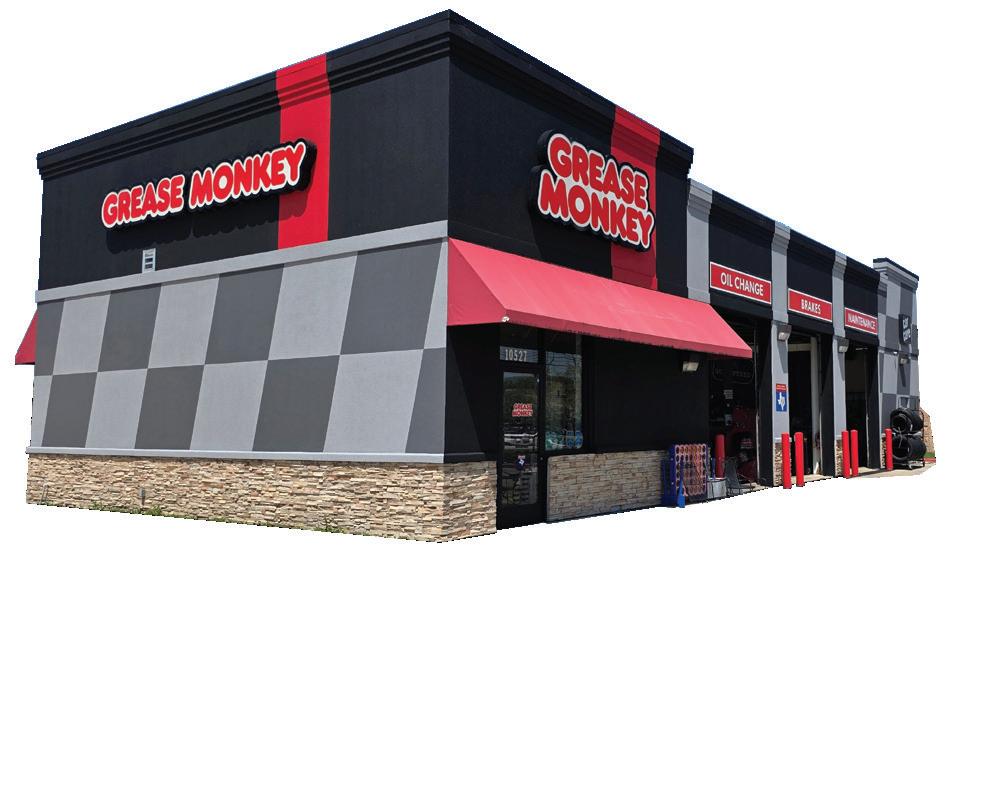
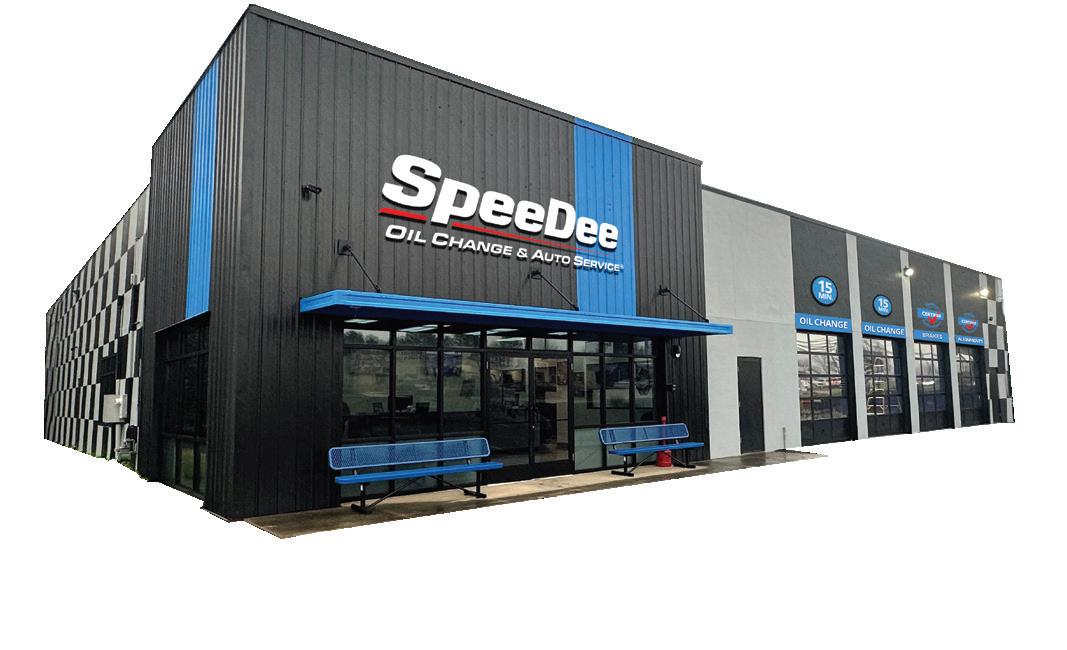




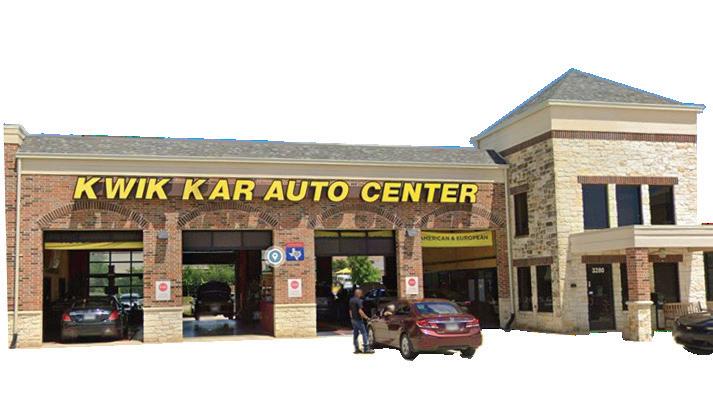
David Harrison
“Our organization is founded on the belief that happy team members are more productive and present. They fully embrace the company culture.”
Changing Tires and Lives
Franchisee serves customers and elevates employees
Written by KEVIN BEHAN
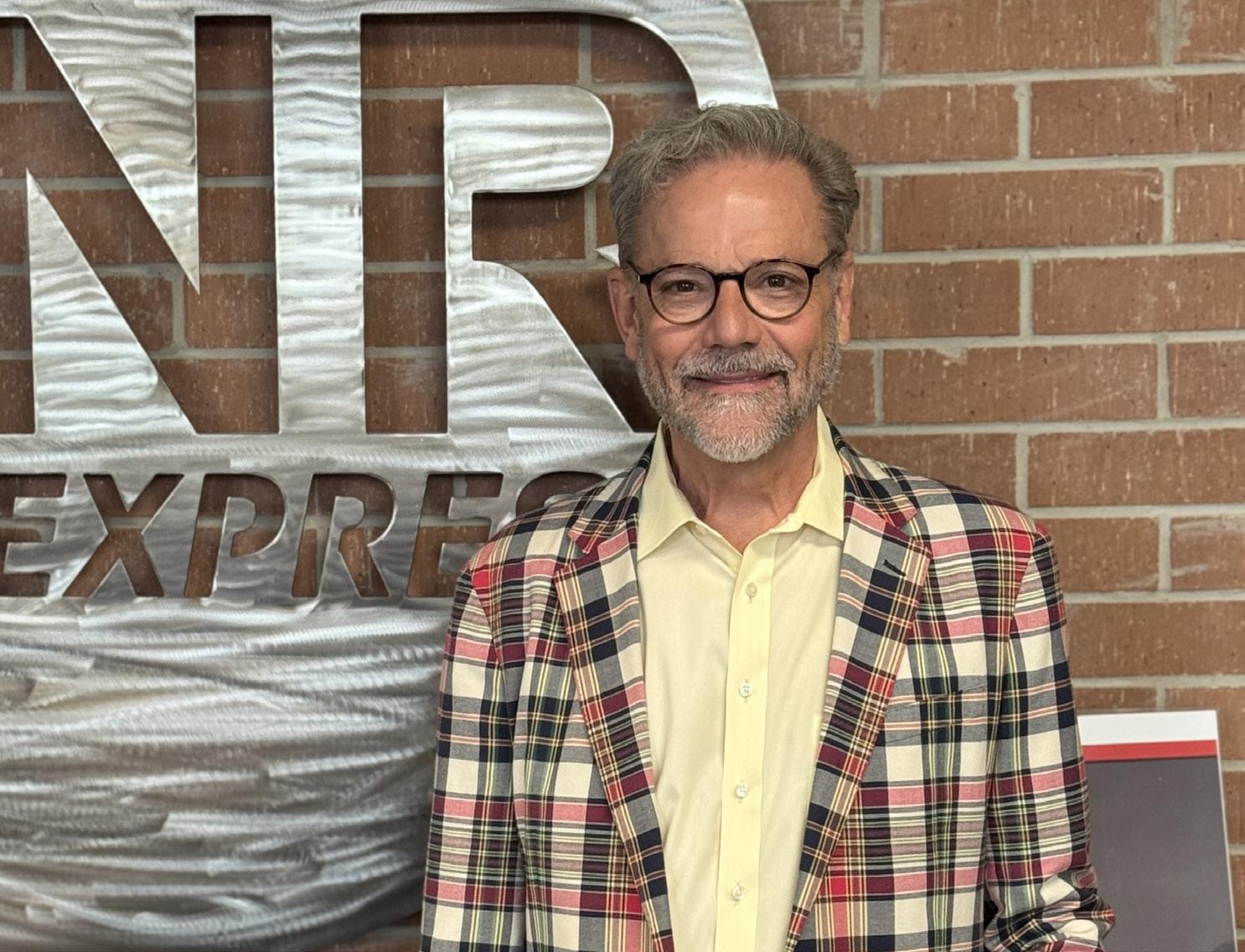
DAVID HARRISON
President and CEO
Company: Rental Concepts
No. of units: 44 RNR Tire Express
Age: 61
Family: Wife Sheila and 2 daughters
Years in franchising: 20
Years in current position: 20
When the Great Recession struck in 2008, David Harrison knew he needed to make a change. He had been a successful RNR Tire Express multi-unit operator for several years, but he saw small businesses everywhere beginning to struggle, and customers at his wheel and tire stores were cutting back on expenses.
Harrison researched several other businesses that used RNR’s rent-to-own model and discovered a demographic that skewed female and toward people without much available cash. He produced a commercial for his stores showing women in conversation about how they could afford to purchase tires. The message resonated with local viewers.
Along with changing the marketing approach, Harrison led a shift of his RNR stores from large markets to locations in the suburbs. It began with the store in Fort Smith, Arkansas, which became an
instant success and has been a top-performing store over the past 15 years.
He and his business partner, Don Parker, have grown their company to 34 RNR Tire Express locations with three more stores in development, and Harrison operates another 10 locations on his own.
RNR Tire Express uses a lease-purchase model that is unique to the wheel and tire sales industry. Instead of requiring customers to have cash in hand or significant lines of credit, the franchise allows customers to lease tires and wheels with the option to eventually own them.
“It is our unique sales proposition,” Harrison says. “We give people the opportunity to pay for products in a way that works best for them. If you walk through the door, we will find a way for you to finance your purchase. It is the core of who we are.”
Being able to help customers who may not qualify for traditional payment options or have limited cash on hand is important to Harrison. He was raised in a single-parent household with modest resources and can relate to the struggles people face.
Harrison also has a passion for developing a supportive culture and creating life-changing opportunities for the more than 350 people he employs. It’s more than providing someone with a stable income; it’s dramatically altering their life.
With a successful business strategy, proven business model, and dedicated approach to developing his employees, Harrison has found his calling.
“I was a poor kid from a poor community, but other people invested and took a chance on me,” Harrison says. “They encouraged me to become self-educated about business and to motivate others. It is not just about making that person’s life better, but changing the trajectory of an entire bloodline.”
PERSONAL
First job: I had an early start at 10 years old, when I spent my weekends working at a produce stand. Formative influences/events: The roughest and most formative year for our company came in 2008. It served as a catalyst to the great heights we have reached and will continue to reach. During this time, my partner, Don Parker, and I transformed our group into a new model for running a business in the rent-to-own space. We took those hardships and used them to focus on streamlining and maximizing our operations. It was also during this time that we were the first to expand into suburban markets. With the industry heavily focused on metropolitan areas, we worked hard to show the value and potential of these developments. While
it was a challenging time, we came out with an efficient model that has continually delivered success. Key accomplishments: Opening our location in Fort Smith, Arkansas. We look back now and see it was a large turning point for our portfolio. Not only was it profitable within the first 90 days, but it also set various milestones for the entire franchise system from 2011–2022. Even today, this location is still a top performer.
Biggest current challenge: The two biggest challenges our organization has faced recently are hiring and the rising cost of real estate. While hiring has ebbed and flowed since the pandemic, commercial real estate has continued to rise, almost doubling within the past three years.
Next big goal: Reaching $100 million in revenue by 2030.
First turning point in your career: In 2010, after five years as president and CEO of the company, I finally felt like I wasn’t just holding the position; I was leading with purpose and shaping the organization’s future. It was the moment when I truly stepped into the role, confident in my ability to drive meaningful impact and chart a clear path forward.
Best business decision: My best business decision was going into business with my partner, Don Parker. It’s rare to find someone in life with whom you can build a legacy, and I feel incredibly fortunate to have found him. Our shared belief in our success gave us the confidence to set out and create everything we have today.
Hardest lesson learned: I’ve learned that people are capable of incredible things when given the opportunity, but they’re also capable of making mistakes. The key is knowing when to take a big bet on someone. It’s about recognizing potential and focusing on the good even when things don’t go perfectly.
Work week: Work for me feels like an endless game of chess. This means our organization is constantly strategizing and thinking about our business from the moment we wake up to the second we close our eyes.
Exercise/workout: I participate in strength training and cardio.
Best advice you ever got: “Work smarter, not harder," and “In the absence of a leader, one will emerge.”
What’s your passion in business? My passion is using the talents God gave me to create opportunities for others.
How do you balance life and work? As entrepreneurs, we pour so much of ourselves into our work because it’s more than just a job; it’s our identity. While I prioritize time with family and loved ones, the business remains equally as important.
Guilty pleasure: Red wine.
Favorite book: The Four Agreements by Don Miguel Ruiz.
Favorite movie: “Arthur.”
What do most people not know about you? That I suffer from imposter syndrome some days.
Pet peeve: Bad grammar.
What did you want to be when you grew up? A dentist.
Last vacation: The last vacation I took was with my family to Alaska in 2023.
Person you’d most like to have lunch with: I would like to have one last lunch with my departed mother.
MANAGEMENT
Business philosophy: Our organization is founded on the belief that happy team members are more productive and present. They fully embrace the company culture. This creates an environment where anyone can rise through the ranks from entrylevel positions to top management.
Management method or style: Driving culture through a boots-on-the-ground management style. Team members need a clear sense of who our organization leaders are and what we stand for within the organization. This is hard to do if you don’t make the effort to regularly visit locations. We are the first to offer growth opportunities and new experiences to those who demonstrate a strong desire to develop their skills and advance.
Greatest challenge: One of our biggest challenges has been navigating economic fluctuations while maintaining high operational standards. Ensuring consistency across multiple regions requires constant adaptability.
How do others describe you? As strategic and results driven and also approachable and team oriented. Leaders at our organization are known for fostering strong relationships and leading by example.
Have you ever been in a mentor-mentee relationship? What did you learn? Yes. Mentorship has been invaluable. I have been fortunate in my position to pass down lessons and best practices that I have learned firsthand in my experience. Mentorship is the key to keeping our legacy alive, and building up future leaders is a part of that process.
One thing you’re looking to do better: I have a strong commitment to our team members and continuously seek new ways to offer growth opportunities, mentorship, comprehensive training, and additional support to help them thrive and advance in their careers.
How you give your team room to innovate and experiment: Our organization encourages our teams to be vocal about new ideas and processes. You never know what may come from it. From my perspective, we started our business with an idea and a dream that it would be half as successful as it currently is. It goes to show that encouraging that process in your team members might spark something great.
How close are you to operations? I keep a heavy tab on day-to-day operations as CEO. With multiple locations across the U.S., it’s important to tune in to the challenges, operational efficiencies, and team members. This level of awareness will better prepare you for certain changes in the economy, demand shifts, and peaks and valleys in business.
What are the two most important things you rely on from your franchisor? Support with marketing initiatives and access to robust training programs are critical for our success.
What you need from vendors: Reliability and responsiveness. Vendors must be consistent in delivering quality products on time to support our day-to-day operations.
Have you changed your marketing strategy in response to the economy? How? In the current economy, everyone is making tweaks to keep things moving, and we’re no different. But the rent-to-own model naturally shines when times get tough. It’s designed to help our customers get what they need without overextending their finances. That said, we’re not just coasting on the model’s strengths. We’re staying proactive, and marketing is a big part of how we keep our name front and center in the communities we serve. It’s about staying relevant and showing up where it matters most.
How is social media affecting your business? Social media is a growing tool that a business must invest in to stay relevant. Our team has switched about 40% of our advertising budget to social. We actively want our quality service to be reflected through our reviews, encouraging customers who recently were in-store to leave their feedback through Google reviews.
In what ways are you using technology (like AI) to manage your business? We leverage technology throughout our business, including purchasing auto stock, tracking moving merchandise by market, growing our internal marketing program, and ensuring just-in-time delivery. AI is used on our website for live interaction with customers, serving as an important resource for customer service.
How do you hire and fire? We prioritize hiring for cultural fit and potential. It is the lifeline of our business, especially for managers at locations we may only visit a few times a year. Unfortunately, firing is an essential part of any business as one bad team member can create a hostile culture.
How do you train and retain? Training is ongoing with a mix of hands-on and digital learning tools. We work hard to make every team member feel seen and known. Our retention comes from recognizing achievements and offering clear paths for advancement and ongoing opportunities.
How do you deal with problem employees? We address issues promptly by holding one-on-one discussions, setting clear expectations, and providing support to help them improve.
Fastest way into your doghouse: Failing to take ownership of mistakes.

BOTTOM LINE
Annual revenue: $70 million. 2025 goals: In 2025, we hope to open three more stores and grow to $75 million in revenue.
Growth meter: How do you measure your growth? Our growth is tracked through revenue benchmarks, customer satisfaction scores, and new store openings.
Vision meter: Where do you want to be in five years? 10 years? In five years, we hope to have increased our presence by around 12 stores and hit a goal of $100 million in revenue. In 10 years, we hope to be watching the brand continue to soar with an increased national footprint and continuing to raise revenue rates.
Do you have brands in different segments? Why/why not? We do not. We have found a business that has given us success, passion, and the means to fulfill our lifelong goals. We remain loyal to our industry.
How is the economy in your region(s) affecting you, your employees, your customers? Economic shifts have impacted discretionary spending, which means we need to adjust pricing and promotions accordingly. But this economy does prove to be a great time for our business in the rent-to-own space. Many who would be unable to purchase a new set of tires in full are now able to do so with affordable payments.
Are you experiencing economic growth in your market? We continue to see economic growth in our market. If you have a car, tires are essential goods. They take you to work and get your kids safely to school. What we do is important because while people might be suffering from the economic impacts of inflation, they don’t have to worry about going into overwhelming debt to have a safe car.
How do changes in the economy affect the way you do business? If you are prepared and have a good pulse on your operations, any shift is navigable with the right plans in place. The end goal is to be agile in your decision-making.
How do you forecast for your business? We use a combination of historical data, market trends, and customer analytics to create accurate forecasts.
What are the best sources for capital expansion? We have great relationships with several local banks, and we tend to get the best terms and rates from them.
Experience with private equity, local banks, national banks, other institutions? Why/ why not? I’ve spoken to private equity groups in the past, and whether it’s the right choice depends on your goals. If you can’t fund growth, private equity can be a good option. However, in my experience, the interest on a loan is much cheaper than taking on an equity partner. I had a transformative relationship with a regional bank years ago, specifi-
cally with the bank’s market president. The gentleman had a reputation for deeply understanding his bank’s large customers in his market. He wanted to know everything, like our leadership structure, succession plans, market outlook, and even what kept me up at night. His level of scrutiny was unparalleled, and it prepared me to confidently present loan proposals to bank presidents and boards. Thanks to him, I’ve never felt intimidated by a banker. One of the most valuable lessons I learned from him was to always be transparent. Never let your banker be surprised and deliver both good and bad news yourself.
What are you doing to take care of your employees? Our team members are essential to our operations. We offer competitive benefits and continuous training, and we prioritize taking care of them so that they can take care of our customers.
How are you handling rising employee costs (payroll, minimum wage, healthcare, etc.)? We’re optimizing operations and finding efficiencies to absorb increased costs without compromising on team member benefits.
What laws and regulations are affecting your business, and how are you dealing with them? Labor laws and healthcare regulations have required us to stay proactive in compliance through legal counsel and regular training.
How do you reward/recognize top-performing employees? We offer public recognition and opportunities for advancement.
What kind of exit strategy do you have in place? We have plenty of years left before we plan on exiting.
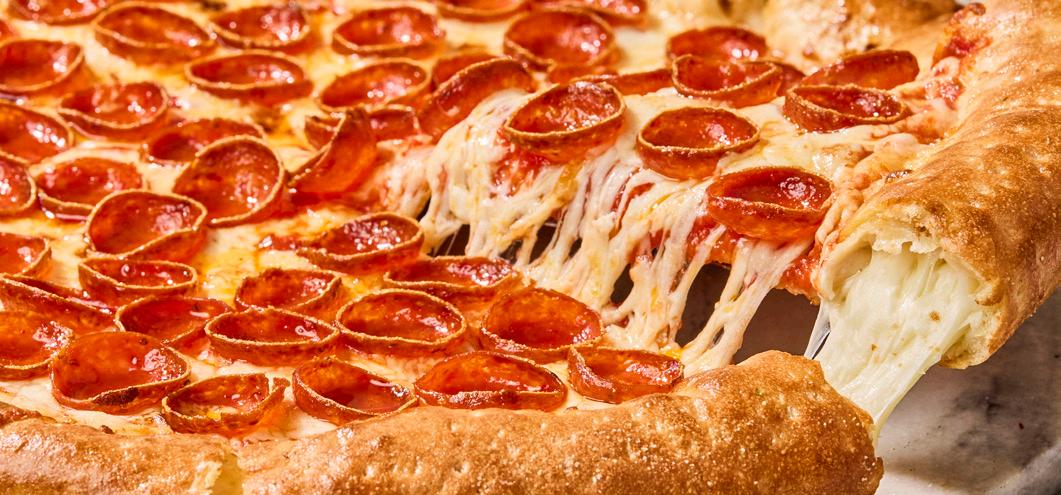
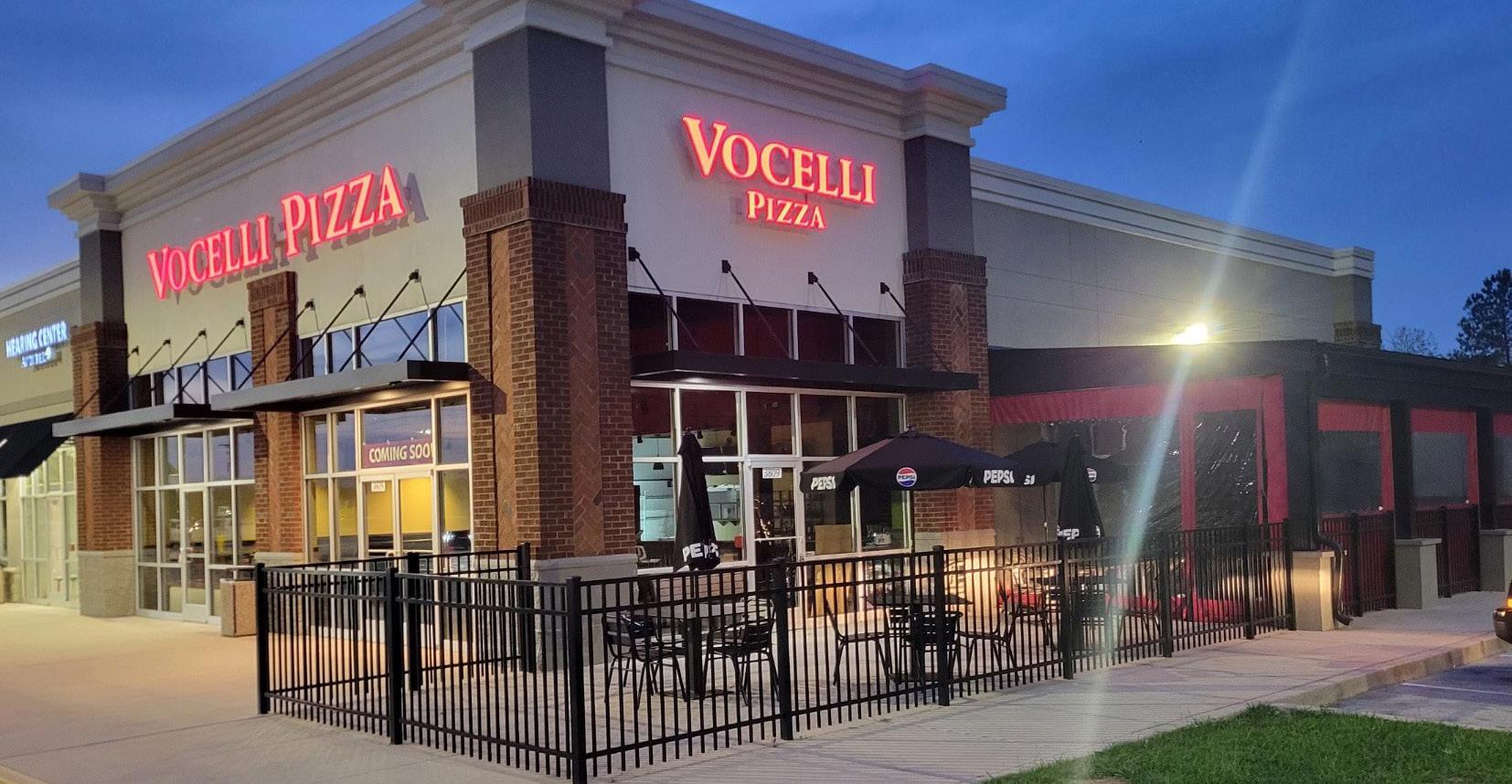

Alex Karcher
“The best days are when we promote team members and open new restaurants.”
Generational Change
Legendary founder’s grandson grows with new brands
Written by KEVIN BEHAN
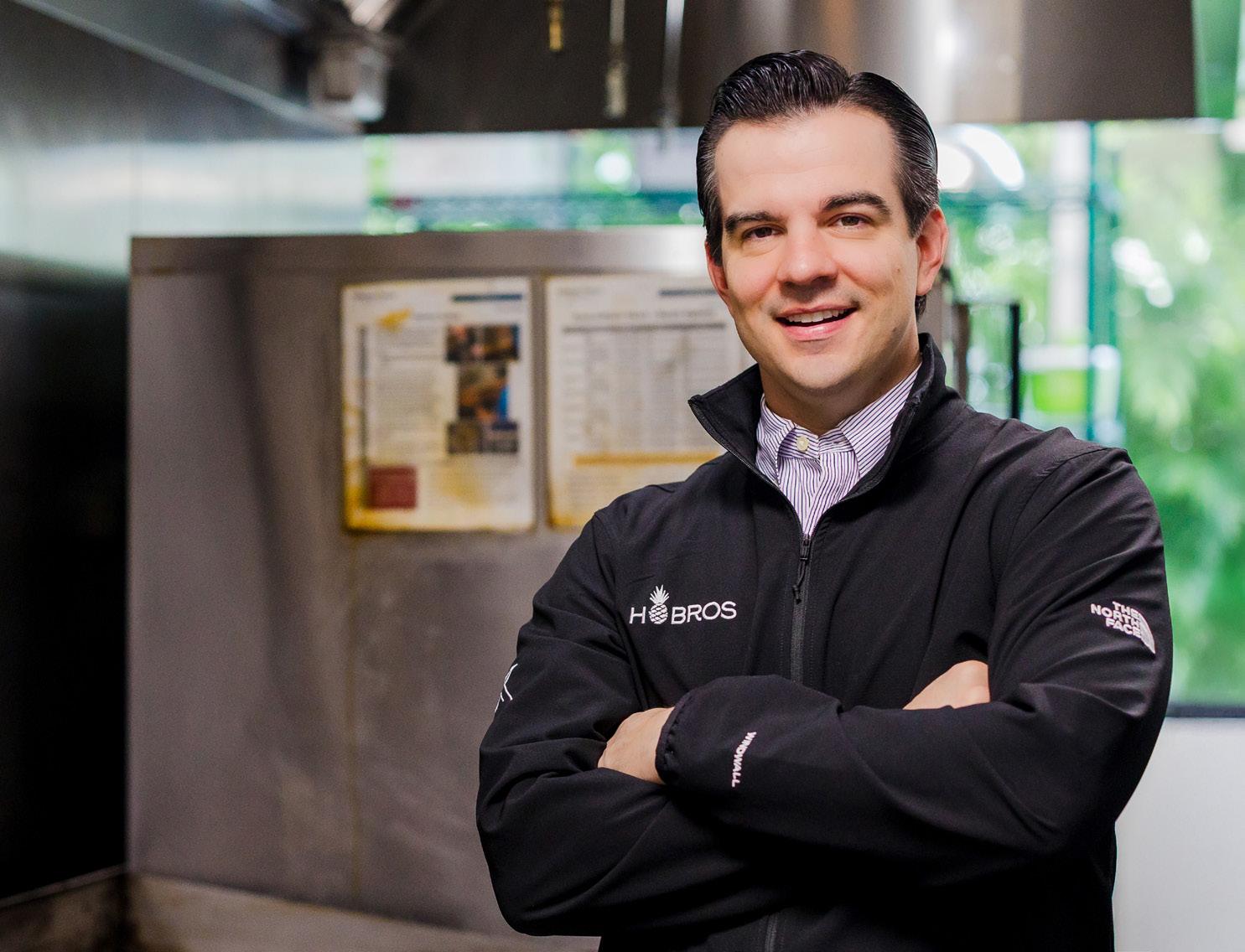
ALEX KARCHER
Operating Principal
Company: JCK Restaurants
No. of units: 61 Carl’s Jr., 11 Jersey Mike’s Subs, 8 The Human Bean, 8 Dave’s Hot Chicken, 1 Hawaiian Bros Island Grill
Age: 33
Family: Parents, Joe and Cathleen Karcher, 2 sisters, Lauren and Emily Karcher, girlfriend, Callie, and dog, Oslo, Years in franchising: 14
Years in current position: 5
How could Alex Karcher not end up in restaurant franchising? His grandfather, Carl Karcher, was the founder of Carl’s Jr., and his parents were multi-unit operators with the burger chain. He recalls people asking him while he was in elementary school if he would someday take over the family business. There were also times when his family would stop by one of their restaurants after a youth soccer game.
“My dad struggles to stop working,” Karcher says. “If we would go to one of our restaurants and he noticed something wasn’t operating properly, he would step behind the counter or conduct a check on the drive-thru line. Seeing his work ethic and dedication to providing the best service was a very big influence on me.”
Although it may have seemed like a natural move to work for his family at Carl’s Jr., Karcher decided
to forge his own path by going away to college in San Diego and beginning a career in corporate finance. After nearly a decade away from home, he missed the connections to his family and returned to Oregon to join his parents and two sisters in working for their JCK Restaurant group.
Karcher’s parents first met at one of his grandfather’s restaurants in 1984 and became franchise owners with Carl’s Jr. five years later. They steadily grew the number of locations over the next few decades and currently own 61 Carl’s Jr. units while adding Jersey Mike’s Subs, The Human Bean, Dave’s Hot Chicken, and Hawaiian Bros Island Grill to their portfolio. The family prefers to operate restaurants that are within driving distance of their corporate headquarters in Eugene. All 89 of their franchise locations are in the Oregon and Southwest Washington markets.
After initially starting with special projects and financial planning for JCK Restaurants, Karcher was tasked with the strategic growth planning of one of the company’s newer brands, Dave’s Hot Chicken. He oversaw the early stages of each new restaurant, including the grand opening, initial operations, hiring, training, and staff development. In addition to opening nine new Dave’s Hot Chicken locations and continuing to oversee the brand's growth, Karcher is applying the same strategic development to the company’s Hawaiian Bros Island Grill brand.
Karcher says that although his parents will always play a role in the business, there is a plan for them to step back from the day-to-day operations in the coming years. His sister Lauren serves as VP of operations, and another sister, Emily, works in accounting and project management.
“We prioritize family over business,” Karcher says. “We are fortunate that we have been successful enough that we have not had to make many really tough decisions. Our personal relationships allow us to be more honest with each other. We have a strong enough family dynamic to weather any tough storms that come our way.”
At 33, Karcher looks forward to taking on more responsibilities with the company and helping it to grow to 100 total restaurants in the coming years. He knows all future growth is based on the foundation built by preceding generations.
PERSONAL
First job: A cashier at Carl’s Jr. My first day on the job was my 18th birthday.
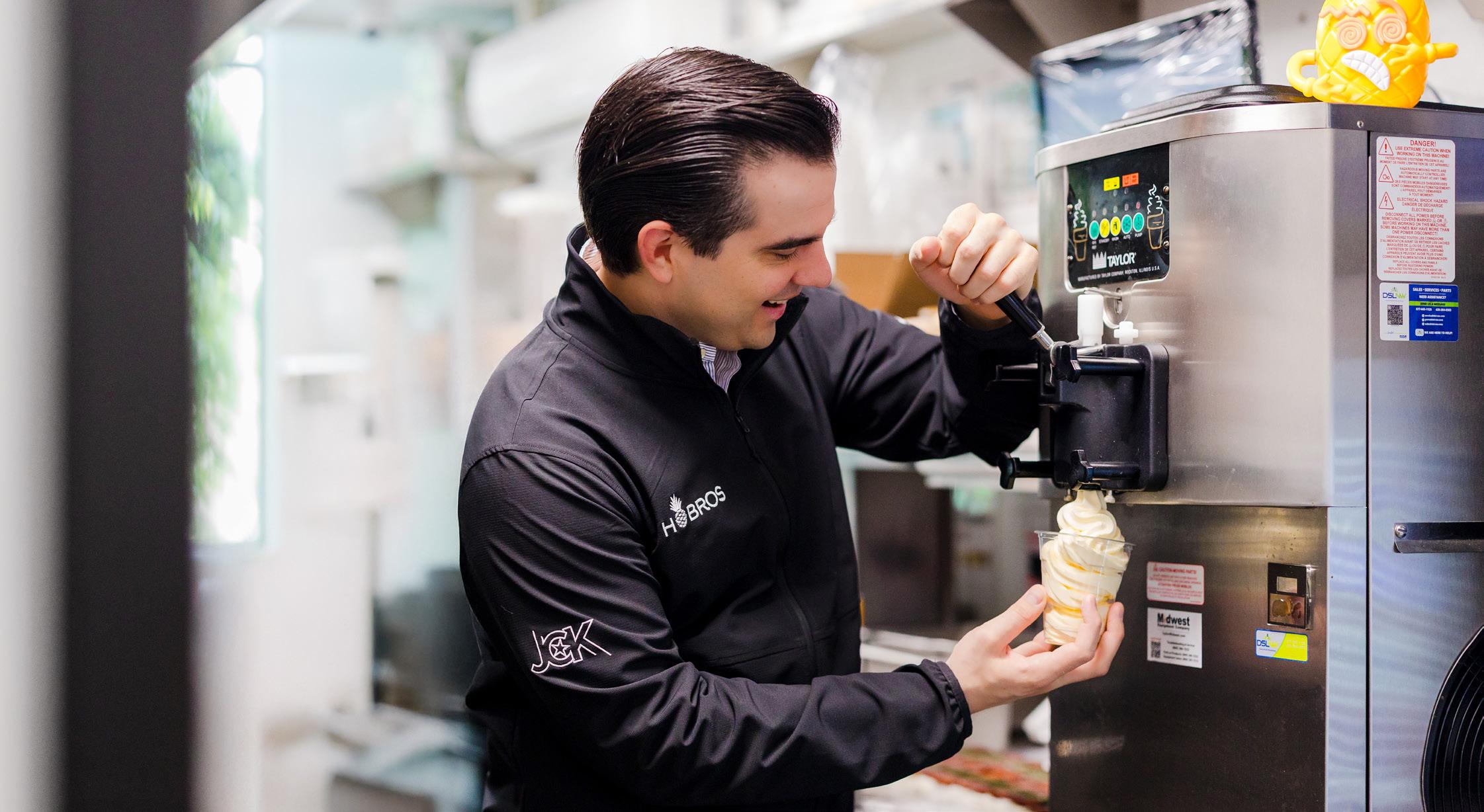
Formative influences/events: My parents have been everything to me. They’re the epitome of strong, kind leadership. They have an amazing marriage, have always led together, and their love for each other is a great example for my sisters and me. Their example taught me kindness, service, and what it looks like to lead with integrity. They never pressured me into the business while always keeping that door open.
Key accomplishments: I’m most proud of being named the inaugural Dave’s Hot Chicken Franchise Partner of the Year in 2022. Coming from a family of restaurateurs, I was always expected to follow in their footsteps. Dave’s Hot Chicken was the first brand I was entrusted to grow, so winning this award was a meaningful milestone in carving my own path in the industry. In 2024, we won the Spirit of the Founders Award, also with Dave’s. Recently, I’ve been tasked with growing our newest growth brand, Hawaiian Bros Island Grill.
Biggest current challenge: We are seeing some of the growing pains of building from a single-brand company to a larger-scale, five-brand enterprise. We are working hard each day to develop the internal processes, systems, and reporting to make life easier for our teams and support future growth.
Next big goal: We are close to hitting 100 units in our restaurant group, which will be a huge milestone for us.
First turning point in your career: When I was given the keys to lead our growth brand in Dave’s Hot Chicken. It was a heavy pivot into an operations role, and building this brand in our market has been one of the greatest joys of my life.
Best business decision: Stepping into operations and working with my family. I had focused my career on financial planning and analysis before, and shifting to operations allowed me to apply my strategic mindset in a more hands-on way. It’s been a rewarding and successful journey.
Hardest lesson learned: You can’t fix everything in one day. I’m someone who moves fast, so it was challenging to accept that lasting growth comes from incremental, compounded changes. Additionally, no matter how sharp your strategy is, strategy can’t fix a bad culture. You can feel a negative culture the moment you walk into a restaurant. It’s thick, soupy, almost humid, and uncomfortable to stand in. A strong, positive culture is what truly drives sustainable success.
Work week: If we’ve had a recent opening, it’s all hands on deck, and I’m typically at the location most days through the opening weeks. When things are settled in, I try to stick to weekdays and end each day at 6 p.m. to relax with my family.
Exercise/workout: I’m a morning person and do my best to get to the gym each morning before starting the workday. I like getting ahead of the day.
Best advice you ever got: Honestly, I don’t have a single piece of advice that stands out above the rest. Over the years, I’ve picked up countless bits of wisdom from friends, mentors, and experiences. The real takeaway is to keep learning and adapting and to find humor and perspective along the way. What’s your passion in business? I’m passionate about crafting winning strategies and seeing our teams grow into leaders. The best days are when we promote team members and open new restaurants.
How do you balance life and work? Balancing life and work can be challenging since I love what I do, which often leads to long hours. To maintain balance, I have to remind myself to step away, whether it’s shutting off my phone for the night, taking a mental health day, or sneaking away for a weekend. Being proactive about downtime helps me stay balanced and energized.
Guilty pleasure: Besides the brands we operate, you can find me in a Taco Bell drive-thru more often than I’d care to admit.
Favorite book: For fiction, it is The Stormlight Archive by Brandon Sanderson. Nonfiction is Atomic Habits by James Clear.
Favorite movie: “The Shawshank Redemption.” It’s one of those films that, whenever it comes on TV, I find myself watching it all the way through. What do most people not know about you? I am naturally pretty introverted. I need a bit of alone time after a big day or big week to recharge. I’m also a bit of a fantasy nerd with favorite authors like Brandon Sanderson and Pierce Brown.
Pet peeve: If you ever watch cooking videos on YouTube or TikTok, you know there’s always a moment when the host or influencer takes a bite out of the food they just made and lets out the most prolonged, embellished “mmmmm yummmm” of all time. I understand the need for showmanship, but it’s too much.
What did you want to be when you grew up? A professional soccer-playing priest. Other than that, however, I wanted to be like my dad and work for Carl’s Jr.
How do you reward/recognize top-performing employees? I’ve realized that not every employee wants to be recognized in the same way. I try to recognize top performers in a way that’s meaningful for them. Whether that’s wellstructured compensation, quiet praise, public recognition, title advancements, or celebrations, the key is to celebrate each employee in a way that resonates with them.
Last vacation: I was able to sneak out to Cannon Beach for a few nights in April 2025 with my girlfriend and our puppy.
Person you’d most like to have lunch with: Anthony Bourdain. I would love to hear about his combined life experiences, traveling the world and working in exceptional restaurants.
MANAGEMENT
Business philosophy: We aren’t in the burger business; we’re in the people business. It is something I learned from my grandfather when he was building Carl’s Jr. restaurants. We are not solving cheeseburger problems, but people problems. Hiring the right people is worth it in the long run. We take care of our team, and the team takes care of the guests.
Management method or style: I challenge my team each day to be better than they were the day before. I celebrate their strengths and wins but try to spend the bulk of my time working with them on their growth opportunities.
Greatest challenge: Like many others in this industry, I have a fast-paced management style and high expectations. The biggest thing I hit my head against is the fact that we can’t fix everything in one day. Growth takes time, and I have learned to celebrate the small improvements and wins that compound into lasting success.
How do others describe you? I think they’d say I’m driven, competitive, and loyal: someone who’s always looking for the edge but deeply loyal to the people in the fight with me. A little impatient. I push hard because I believe we can win. I also try to find humor in everything.
Have you ever been in a mentor-mentee relationship? What did you learn? Yes. My dad has always been my biggest mentor. Everything I’ve learned about prioritizing the value of guest experience and the fundamentals of the restaurant business, I learned from him. I also have a mentor-like relationship with our director of operations, Jeremy Johnson. He’s taught me a ton about developing people and prioritizing culture.
One thing you’re looking to do better: Lead through motivation and inspiration. The larger our organization grows, the less effective I can be working hands-on in the operation. I need to be able to work through our team.
How you give your team room to innovate and experiment: I’ve learned to hire the right people and get out of their way. Once we’ve identified the right person for the right seat, we set clear targets for their success and let them find the optimal path to our shared goals.
How close are you to operations? Never as close as I’d like to be. My favorite days are when I’m in the restaurant. When our franchise concepts are in their infancy, it’s easy to be in the house every day. As we grow, I’m required to spend more time on administration and planning.
What are the two most important things you
rely on from your franchisor? For the most part, the flavor profile and quality of a brand are set before we sign on. I’d say the biggest things are creating a great vision for the future of the company and helping franchisees out with great marketing. To say it another way, “Where are we going, and how can we convey that message to our guests?”
What you need from vendors: Flexibility and to put their best bid forward first. We have vendor partners that we use exclusively because we have learned they are not going to overcharge us, and they will work with us to come up with the most mutually beneficial solution to any challenge.
Have you changed your marketing strategy in response to the economy? How? As things get thinner, it’s hard to justify splurging or experimental marketing. We are more conscious of where we are investing our marketing dollars and rely on our strongest partnerships to drive growth.
How is social media affecting your business? Social media can be jet fuel for your business. Organic marketing with guests posting their self-generated content is as good as word-of-mouth endorsements. Mastering social media has been key for our growth brands.
In what ways are you using technology (like AI) to manage your business? I’ve seen a couple of good use cases for AI. One example is AI agents that sit in virtual meetings and transcribe and summarize them. You can then retroactively look up, “Oh, what did so-and-so say in that meeting?” It’ll have the information ready for you. Additionally, I’ve started using ChatGPT’s voice conversations more. You can use it for sales role-playing. For a restaurant example, have Chat pretend to be a guest so that your team can nail their scripting. I also use it to brainstorm while I’m on the road. I recently used it while on a two-hour drive to refine our bonus model and to reflect on potential pitfalls the rollout might have.
How do you hire and fire? We try to promote internally as much as possible. We’ve been burned once or twice by external hires that promise the world, and they end up not being culture fits. We find that people who already know our systems are a much better fit. With firing, we do it with as much documentation as possible and with as many second chances as we can stomach. We don’t like giving up on people.
How do you train and retain? For some of our brands, we have dedicated training specialists who uphold standards and manage new product rollouts. At our growth brands, a certified training coordinator or training manager ensures brand standards. We’ve also introduced a certified trainer role between team members and the shift lead. This is effectively a team member who has been certified in a variety of positions and can teach procedures to new employees. This not only improves quality and consistency, but also significantly increases the average length of service for those in the certified trainer role compared to a standard team member.


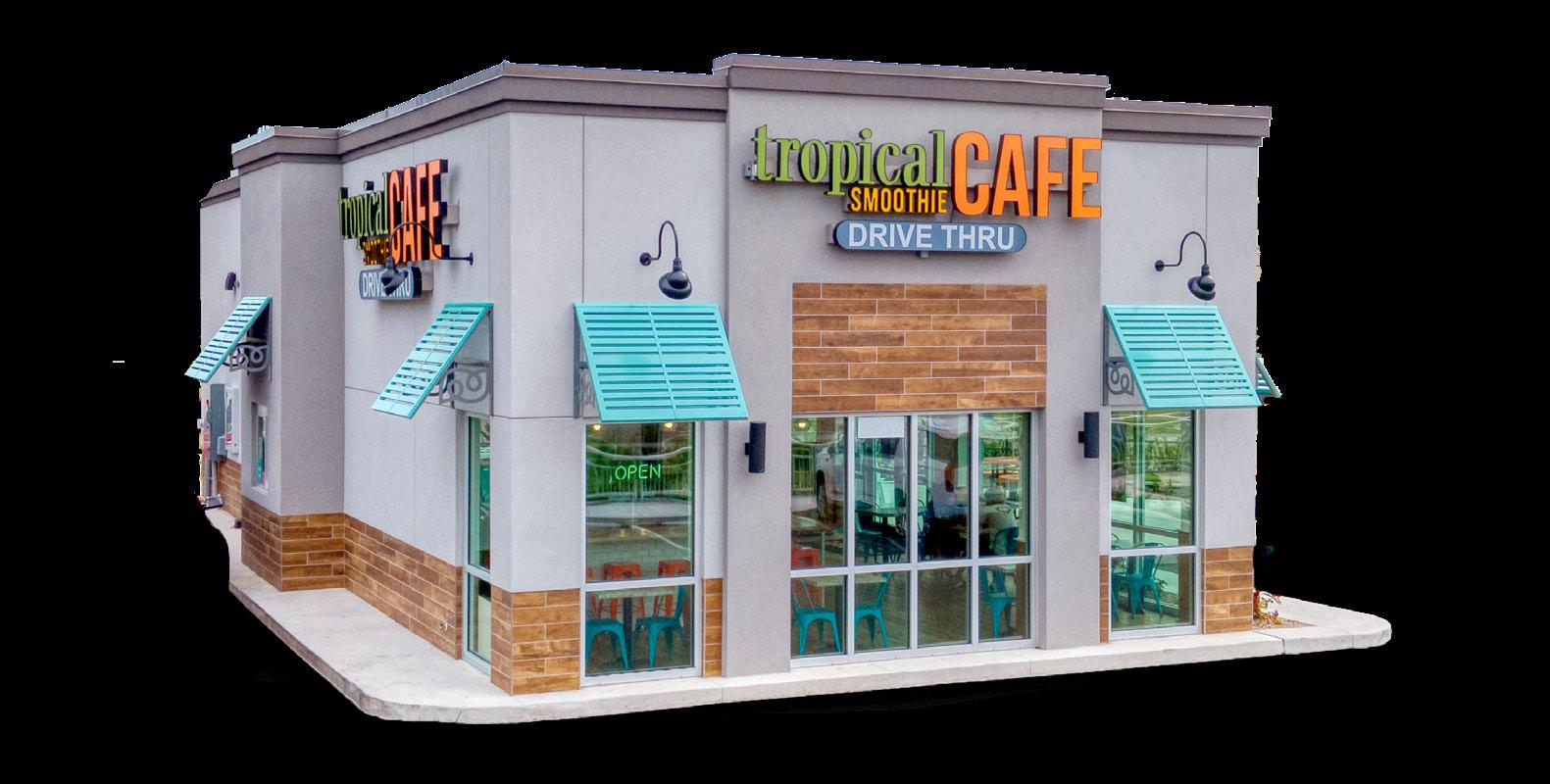






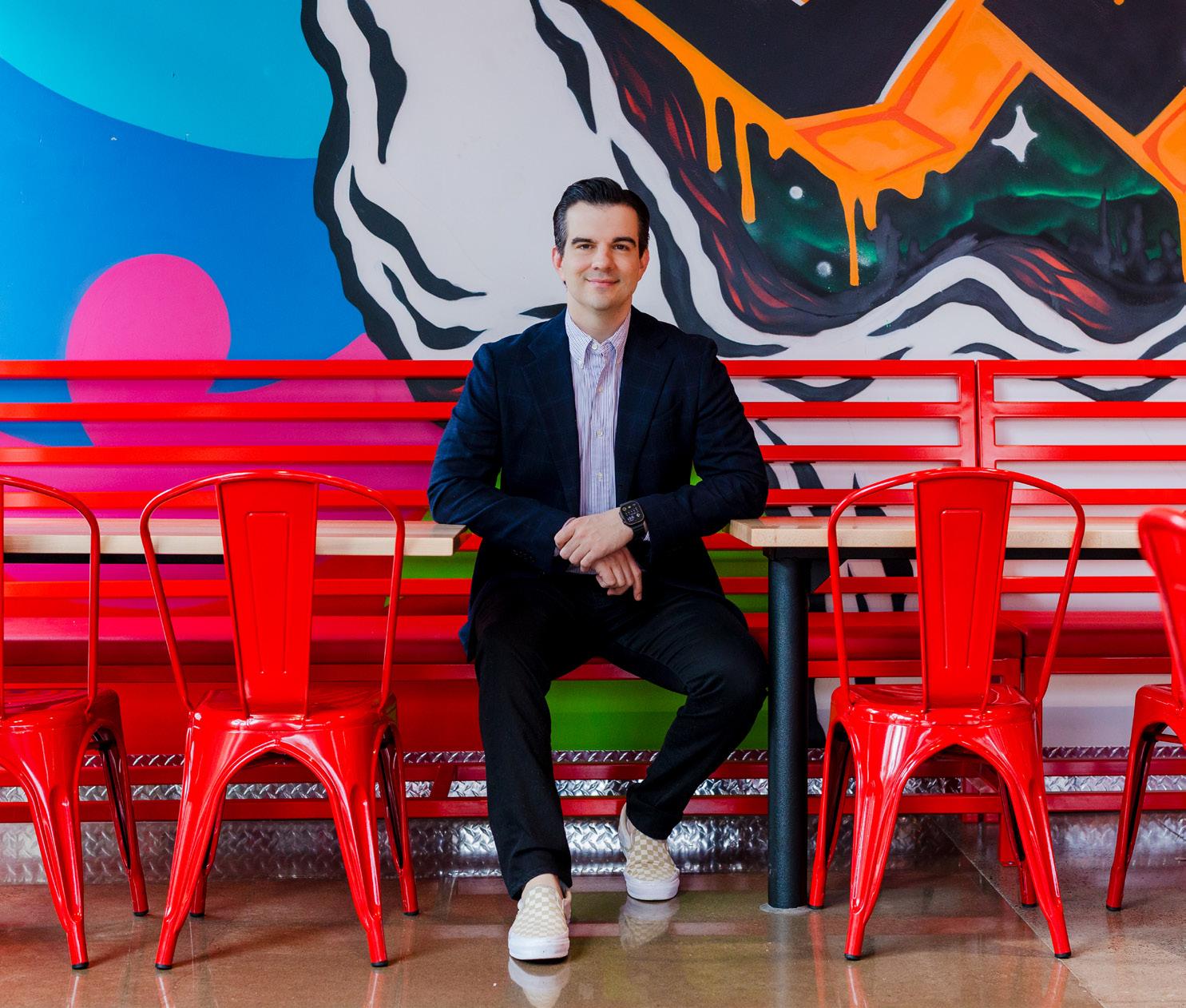
How do you deal with problem employees? Verbal coaching session, then written coaching session, and finally termination. Even the most skilled employees are not worth it if they are a drag on your culture and team morale. We elevate the employees who see the big picture, put “we” before “me,” and can train their replacement.
Fastest way into your doghouse: I don’t like being kept in the dark, and I don’t like surprises.
BOTTOM LINE
Goals over the next year: We are currently launching our new growth brand, Hawaiian Bros Island Grill. We are thrilled to break ground on the first few and get them operational.
Growth meter: How do you measure your growth? We measure our growth in people. If we have enough great managers (or hopefully more) to run our locations, we are on the right track. We always want to be advancing our people and creating more opportunities for them. If there is a bottleneck of talent, maybe it’s time for us to look at a new territory or a new brand.
Vision meter: Where do you want to be in five years? 10 years? My biggest goal for our company is to update our mom-and-pop processes to make things easier for our support teams. In five years, I’d like for us to feel confident in our systems and tech stack for our support departments. Our 10-year goal is to be an industry-leading MUMBO, recognized for our operations and support departments. Do you have brands in different segments? Why/why not? Our brands are all in restaurants because that’s what we know. Within the restaurant
category, we’ve diversified across five concepts, which we believe will buoy us as we grow into the future.
How is the economy in your region(s) affecting you, your employees, your customers? Every day, it gets more expensive to build, staff, and train for a new restaurant. We have to be considerate of this and nimble in our growth strategy. It’s not our job to make the rules; we just have to be the best at navigating them.
Are you experiencing economic growth in your market? Some brands are down; others are up. The water is too murky to tell if there is a general market lift, but there’s movement between brands.
How do changes in the economy affect the way you do business? What stays the same is our process and prioritizing people development. What changes could be the speed of growth, the ability to access financing, or how we are scouting future locations.
How do you forecast for your business? The biggest thing we look at is year-over-year trends. We want to have more transactions and more sales than the year before. We start there and then look at any future locations we may add in the coming year. It’s not super robust, and that’s one thing we plan to improve moving forward.
What are the best sources for capital expansion? Debt. We have good relationships with our lenders. We don’t pursue sale-leasebacks, but I know they can be a powerful growth tool as well.
Experience with private equity, local banks, national banks, other institutions? Why/why not? We have great, long-standing
relationships with local banks that handle our financing needs. Private equity has its place, but we’ve worked so closely with our operations team for many years and want to create roles for them. Selling pieces out to private equity could mean losing control of our group and our ability to create more opportunities for our teams.
What are you doing to take care of your employees? We prioritize staying competitive with our compensation, health benefits, and 401(k) plans. We also offer mental health services and counseling. Additionally, we rolled out the JCK Cares initiative, which provides a pool of funds for team members facing unexpected expenses or emergencies, like bridge rent payments or surprise medical bills.
How are you handling rising employee costs (payroll, minimum wage, healthcare, etc.)? With any economic change, we have to take a top-down look at our business model. For some brands, it can be price changes or updating the value proposition to the guest with new menu items and offerings. For other brands, it might become less feasible to build new locations. We rely on our franchisor partners to work with us to create a viable business plan, so we can continue to take care of our employees. It doesn’t make sense to invest in a new restaurant that needs to be staffed below the optimal level to be profitable.
What laws and regulations are affecting your business, and how are you dealing with them? Right now, the big, ugly thing on everyone’s mind is the impact of tariffs. Nobody’s certain what the full impact will be, so we just have to do what we can to stay nimble. We won’t bite off more than we can chew.
How do you reward/recognize top-performing employees? I’ve realized that not every employee wants to be recognized in the same way. I try to recognize top performers in a way that’s meaningful for them. Whether that’s well-structured compensation, quiet praise, public recognition, title advancements, or celebrations, the key is to celebrate each employee in a way that resonates with them. What kind of exit strategy do you have in place? Honestly, there isn’t one. I feel so fortunate to be where I am, and I’m at the beginning of my career. We want to make this thing as great as it can be.
RELAX INTO REVENUE
Rapid Growth. Real Momentum.
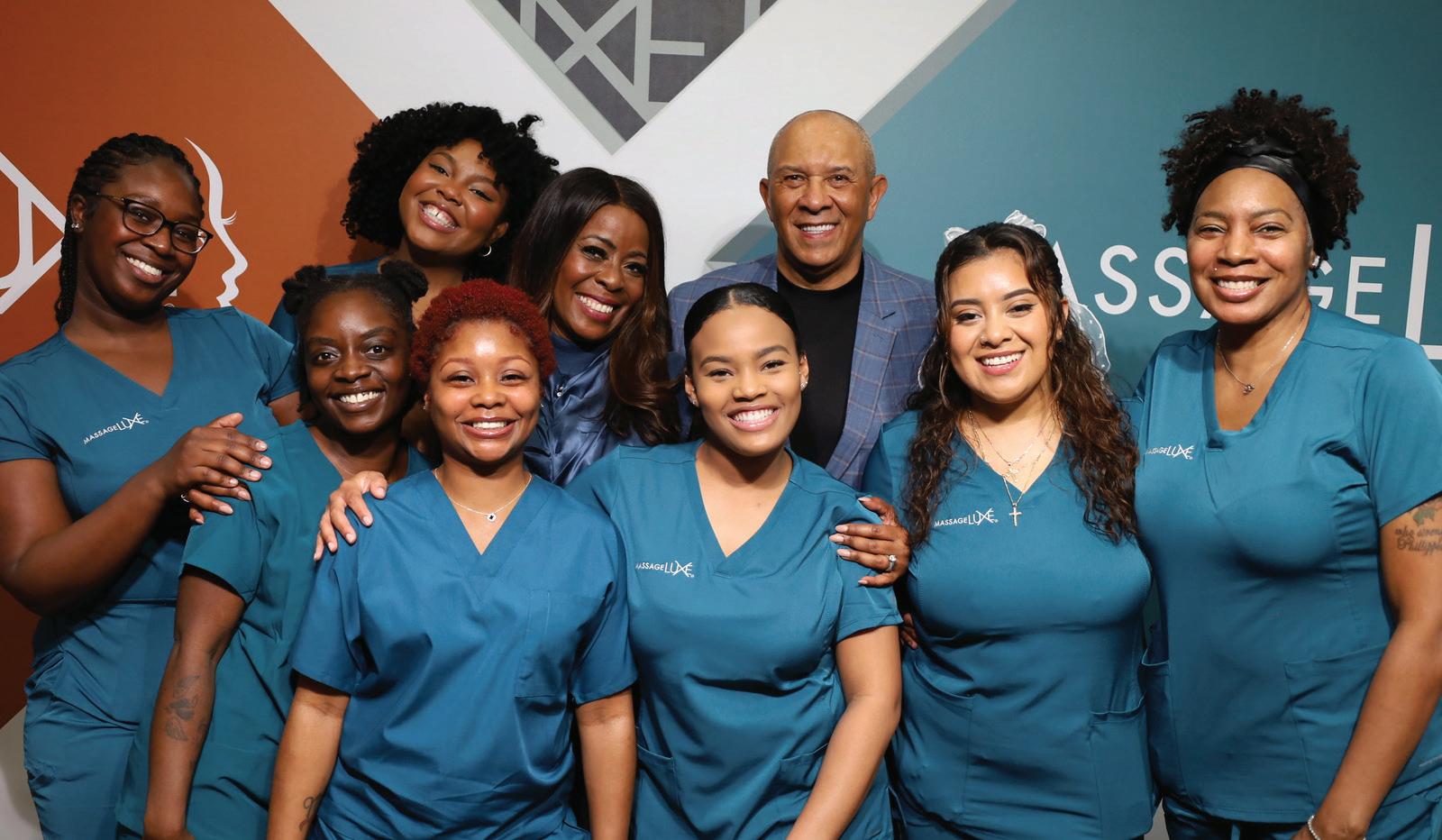
Our newest locations are seeing strong client demand from day one which is a testament to the MassageLuXe brand, membership model, and the $1.3 trillion wellness industry we call home.
This is more than just a massage business. It’s a modern franchise designed for long-term growth, operational support, and happy clients who keep coming back.
The MassageLuXe Di erence
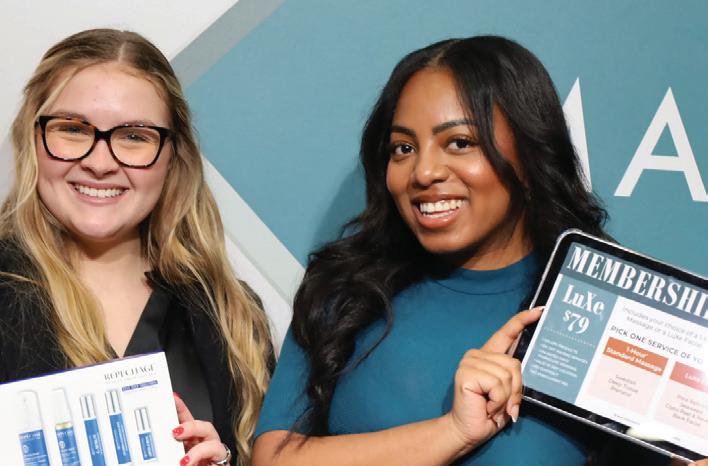
Proven recurring revenue business model powered by memberships

Centered in a 1.3 Trillion Booming Wellness Industry

Hands-on support from team with average tenure of 12 years
This could be your story. Learn more!
“We took our shot, which was a calculated risk, and the rest is history.”
Bold Moves, Big Rewards
First Dave’s Hot Chicken franchisee savors success
Written by KEVIN BEHAN
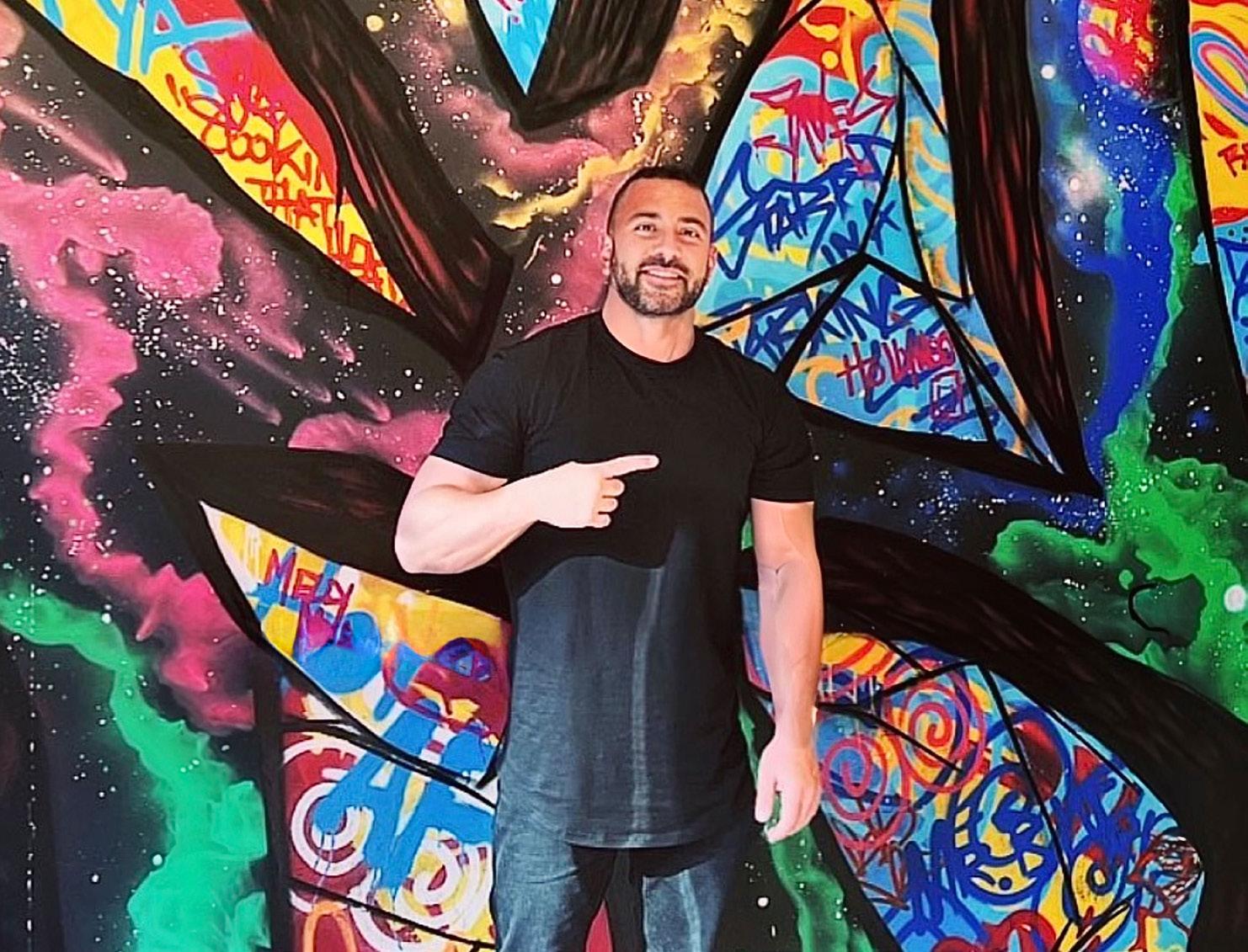
LAWRENCE KOURIE
Multi-Unit
Owner-Operator
Company: Dave’s Hot Chicken
No. of units: 22 Dave’s Hot Chicken
Age: 37
Family: Single
Years in franchising: 12
Years in current position: 5
Lawrence Kourie’s journey with Dave’s Hot Chicken began at Dodger Stadium in the summer of 2019. Kourie was a franchisee with Wetzel’s Pretzels at the time. He was invited to a game by Dave’s Hot Chicken CEO Bill Phelps, who’d led Wetzel’s Pretzels before moving to the emerging chicken brand. The company was looking to franchise the concept, and Phelps told Kourie and his partner, Andrew Feghali, that they would be the perfect first franchisees.
The group left the game that evening and sampled Dave’s Hot Chicken at one of the company’s two corporate-owned restaurants in the area. Kourie and Feghali thought it was the best hot chicken sandwich they had ever tasted and immediately became believers in the brand.
The duo seized the opportunity and signed a 12-unit development agreement across San Diego
County while planning on opening their first restaurant in the Pacific Beach area a year later. What they couldn’t have anticipated, however, was opening a new restaurant during the Covid-19 pandemic.
“Challenge accepted,” Kourie says, looking back at the experience. “It was something we are very proud of. Everyone was telling us not to open during that time. Our gut told us to believe in the brand, our founder’s story, and our team and to embrace the unknown. We took our shot, which was a calculated risk, and the rest is history.”
Despite the challenging circumstances, the first restaurant was profitable. Fewer on-site customers meant less repair and maintenance. It reduced their capital expenses and enabled the pair to quickly pay the rent. They also learned about the popularity of the Dave’s Hot Chicken brand, which played a major role in the success of the first location and additional units in the following years.
Many of Dave’s loyal fans from Los Angeles traveled to San Diego for the opening. Kourie was able to parlay that passionate, grassroots following to grow its customer base in San Diego. That enthusiasm also helped as they expanded the Nashvillestyle hot chicken concept to new markets throughout the country.
Dave’s Hot Chicken creates television ads from user-generated social media posts of customers raving about the sandwiches, sliders, tenders, and sides. The videos are shot by customers shortly after they pick up their food, often in their car or when arriving home. Kourie says the messages resonate with younger customers who are active on TikTok and Instagram and provide an enthusiastic endorsement of the brand.
The franchise has used this popularity and consumer demand to bring the restaurant to new markets as it grew to 300 locations nationwide in fewer than 10 years. Kourie has grown his ownership group to 22 locations in eight states. The fast-casual chicken franchise caught the attention of singer and songwriter Usher, who partnered with Kourie to open a restaurant in Conyers, Georgia, last fall. They opened a second location in Buford, Georgia, in the spring with the plan of operating nine units together in the Atlanta area. Kourie is focused on growing the Dave’s brand and hopes to own more than 80 locations over the next seven to eight years.
“I’m really happy because we are changing a lot of lives with a purpose, and it fits into what I want to do,” Kourie says. “Dave’s has changed my life. Right now, my No. 1 focus is growing the business, and I hope to continue that for many years to come.”
PERSONAL
First job: My first job was as a cashier at a gas station when I was 14 years old. It was an experience that introduced me to the importance of hospitality and what it means to lead with a servant’s heart. Even at that young age, I understood the value of treating people with respect and how small moments can create lasting impressions.
Formative influences/events: One of the most rewarding experiences has been watching team members grow within our organization and eventually become franchisees themselves. Helping someone realize their full potential and achieve their dreams is incredibly powerful, and it’s something I’m immensely proud of.
Key accomplishments: I was fortunate to become the very first franchisee of Dave’s Hot Chicken. That milestone set the tone for what’s become an exciting and fulfilling journey of growth alongside this amazing brand.
Biggest current challenge: Our mission is to change lives with a purpose, and everything we do is aligned with that. The challenge now is to scale that mission by providing even more opportunities and platforms for others to thrive within our ecosystem while staying true to our values.
Next big goal: Continuing to grow with Dave’s Hot Chicken is a top priority. We’re expanding the brand’s reach while supporting the team in their professional development. We’re building something bigger than ourselves, and the next chapter is about shared success.
First turning point in your career: Opening our first Dave’s location in Pacific Beach, San Diego, during the height of Covid-19 was a major inflection point. With no dine-in option available, we had to rely solely on the strength of our product and brand reputation. It was a real test and proof of the power of our brand’s passionate following. That experience taught me that when you offer something truly special, people will go out of their way for it.
Best business decision: Committing to Dave’s Hot Chicken and opening during such an uncertain time was a leap of faith, but it paid off. The Pacific Beach launch during Covid reaffirmed that bold moves, backed by belief in your brand, often lead to the biggest rewards.
Hardest lesson learned: “You miss 100% of the shots you don’t take.” That lesson rings true in business and in life. When an opportunity presents itself, hesitation can be costly. Once you see your shot, go for it.
Work week: Every day brings something new. I may start the week with a well-planned schedule, but things often shift. As a business owner, adaptability is essential. You need to be able to pivot at any moment.
Exercise/workout: Boxing is my go-to exercise, and I do that twice a week. It helps me stay grounded, focused, and energized.
First
turning point in your career: Opening our first Dave’s location in Pacific Beach, San Diego, during the height of Covid-19 was a major inflection point. With no dinein option available, we had to rely solely on the strength of our product and brand reputation. It was a real test and proof of the power of our brand’s passionate following. That experience taught me that when you offer something truly special, people will go out of their way for it.
Best advice you ever got: Treat people the way you want to be treated. It’s timeless advice that guides how I lead, manage, and build relationships.
What’s your passion in business? What drives me is the ability to change lives. That is creating opportunities for others to grow, succeed, and build something they can be proud of. Watching team members chase their goals and reach them is incredibly fulfilling.
How do you balance life and work? For me, there’s not a traditional sense of balance, and that’s okay. I love what I do, and I choose to be fully present and accessible. Being an entrepreneur means you’re always on, but it also means you get to lead from the front and inspire others every step of the way.
Guilty pleasure: None.
Favorite book: Crushing It by Gary Vaynerchuk. Favorite movie: “The Passion of the Christ.”
What do most people not know about you? I was born in South Africa, and I’m left-handed.
Pet peeve: When people don’t value your time. Time is the most valuable resource we have, and respecting it is key.
What did you want to be when you grew up? I always knew I wanted to be an entrepreneur. I wasn’t sure what industry it would be in, but I was always drawn to building something of my own.
Last vacation: I took a trip back to South Africa to visit family in March. It was great to reconnect with my roots.
Person you’d most like to have lunch with: Jesus Christ.
MANAGEMENT
Business philosophy: Everything begins with the team. If you take care of your people first, everything else, like operations, guest experience, and long-term success, falls into place.
Management method or style: I believe in giving our team a solid foundation and the support they need to succeed. That means being accessible, providing tools, and empowering them to take ownership.
How do others describe you? I think my team would say I’m someone they can always count on both personally and professionally. I aim to be a strong leader and a true friend.
Have you ever been in a mentor-mentee relationship? What did you learn? I’ve been involved in several structured groups, and those experiences taught me a lot about navigating adversity, managing conflict, and leading with clarity when the unexpected happens.
One thing you’re looking to do better: Making time for myself, specifically prioritizing workouts with my trainer. Investing in my health ultimately makes me a better leader. If you are not right for yourself, how can you be right and present for others?
How you give your team room to innovate and experiment: Many of our team members operate in different states and are responsible for large territories. That level of autonomy requires trust. I give them the space to make decisions and own their outcomes.
How close are you to operations? Very handson. As the CEO of my company, I oversee all operations and make sure we’re running efficiently and staying aligned with our core values.
What are the two most important things you rely on from your franchisor? Clear systems and processes along with a strategic and effective marketing plan. These two pillars help drive consistency and growth across our locations.
Have you changed your marketing strategy in response to the economy? How? Dave’s Hot Chicken is deeply committed to listening to our guests. We’re always looking at ways to reach a
2025 goals: We’re planning aggressive expansion across the U.S. My partners and I are developing locations in Arkansas, Missouri, Alabama, California, Florida, Georgia, Nevada, Arizona, New Mexico, Tennessee, Louisiana, and Virginia. We’re excited about what’s ahead.
larger audience base and optimize for a strong return, especially during challenging economic times. How is social media affecting your business? Social media has been a game changer for our brand. Dave’s was built on digital buzz, and we continue to embrace all platforms to engage our audience. We have been able to build a passionate fan base with our huge followings on TikTok and Instagram.
In what ways are you using technology (like AI) to manage your business? We use a platform called Tech Deck that integrates seamlessly with our operations. The POS is the heartbeat of our stores. Everything flows through it. We also use LoopAI to improve profitability across third-party delivery platforms, helping us stay efficient and data driven.
How do you hire and fire? Our HR and payroll departments handle the hiring and offboarding process, ensuring compliance and alignment with our values. We’re always looking for people who reflect our mission and culture.
How do you train and retain? We invest heavily in our internal team and have a director of operational excellence who oversees training and development. We’re always stacking our roster with all-stars.
How do you deal with problem employees? We go straight into solution mode. The more viewpoints at the table, the more creative and effective the resolution.
BOTTOM LINE
2025 goals: We’re planning aggressive expansion across the U.S. My partners and I are developing locations in Arkansas, Missouri, Alabama, California, Florida, Georgia, Nevada, Arizona, New Mexico, Tennessee, Louisiana, and Virginia. We’re excited about what’s ahead.
Growth meter: How do you measure your growth? We measure success by our store profitability, guest satisfaction, and most importantly, team happiness. We have area development agreements we are committed to, and we collaborate as a team to stay on track.
Vision meter: Where do you want to be in five years? 10 years? My personal vision is to be happy and healthy. Professionally, I want to continue creating impact and opportunity through the Dave’s Hot Chicken brand. We currently have 60 store agreements in place with the goal to grow to more than 80 locations over the next seven to eight years.
Do you have brands in different segments? Why/why not? Right now, all my focus is on Dave’s. The opportunity here is massive, and I want to see it through to its fullest potential.
How is the economy in your region(s) affecting you, your employees, and your
customers? Despite the economic fluctuations, our business model has remained strong. We’ve built a team-first culture, and when our people win, the whole business wins. Flexibility and adaptation are key as inflation and tariffs evolve.
Are you experiencing economic growth in your market? We are really happy with the sales numbers, and we are excited for 2025.
How do changes in the economy affect the way you do business? We look at any potential cost overruns and make sure we have great communication with our vendors. Regardless of market conditions, we lead with operational excellence and world-class service. That consistency is what sets us apart.
How do you forecast for your business? EBITDA, guest sentiment, and in-store traffic count.
What are the best sources for capital expansion? We primarily use internal capital along with traditional financing. Both allow us to scale responsibly while staying true to our mission.
Experience with private equity, local banks, national banks, other institutions? Why/ why not? We’ve worked with both national and local banks. Building relationships with financial institutions is critical, and we make a point to maintain strong networks.
What are you doing to take care of your employees? We’ve implemented a profit-sharing plan to give our employees a real stake in the business. It’s one way we show appreciation and foster longterm loyalty.
How are you handling rising employee costs (payroll, minimum wage, healthcare, etc.)? We pay our employees above minimum wage and focus on retention. It has not been a problem for us. When you take care of your team, you have great talent. Attracting and retaining best-in-class talent requires investment, and we’re proud of the team we’ve built.
What laws and regulations are affecting your business, and how are you dealing with them? We stay current with all relevant laws and regulations across our markets. Every municipality is different, and we make sure to fully understand and adjust to local requirements, especially around minimum wage, HR, and payroll.
How do you reward/recognize top-performing employees? Several of our top-performing employees have gone on to become franchise partners. That kind of internal growth is the ultimate recognition.
What kind of exit strategy do you have in place? I’m not looking for an exit. I believe Dave’s Hot Chicken is the best and highest use of my time and energy. I’m fully committed to the brand and the journey we’re on.

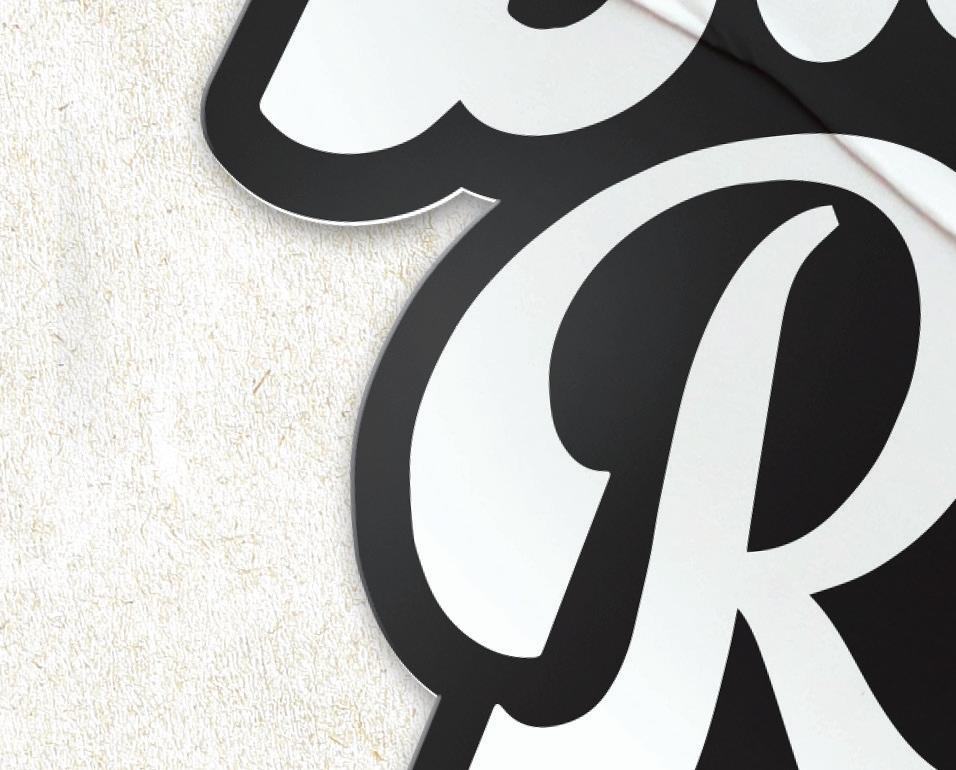

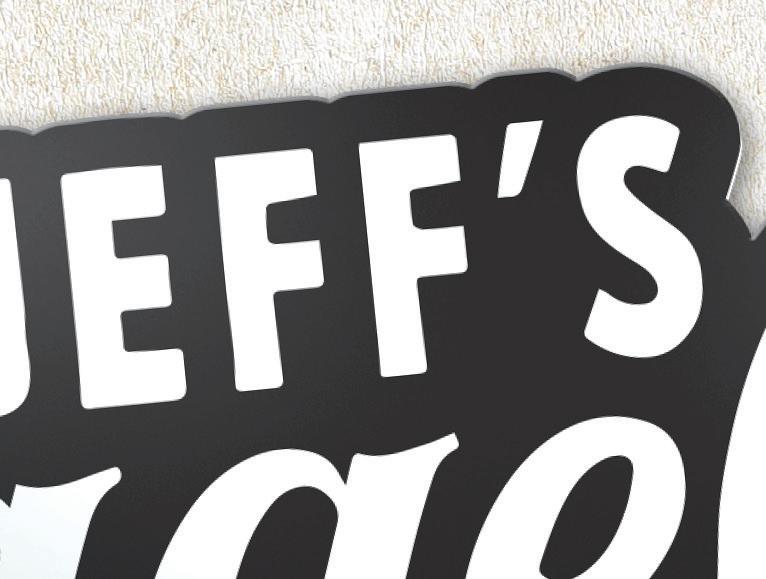







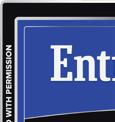

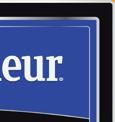














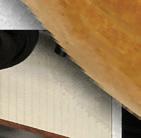






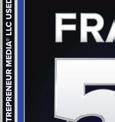






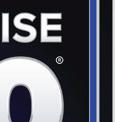





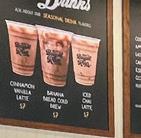











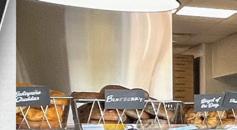


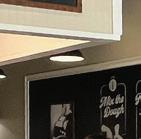
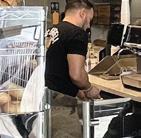
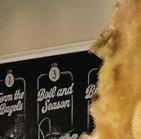




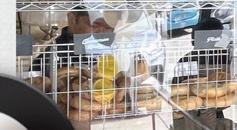

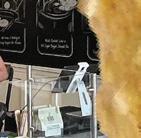










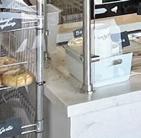

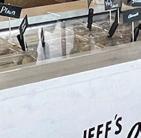
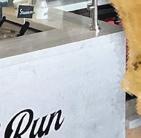



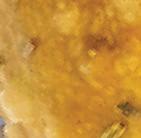
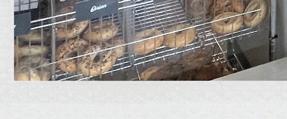
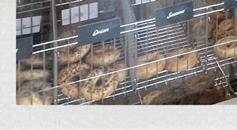


















$245,051


























$1,252,496
















*Based on the top Jeff's Bagel Run affiliate-operated store open and operating for a full fiscal year as of 12/31/24. There were two Jeff's Bagel Run affiliate-operated stores open and operating for a full fiscal year as of 12/31/24. The store with the lowest Sales was $841,884 and the lowest Net Profit was $49,991. “Sales” include all revenues, except tips and taxes. “Net Profit” is Sales minus the cost of goods sold, payroll, rent, store-level office and general operating expenses, utilities, merchant fees, local advertising and imputed 2% marketing fund contribution, and imputed 6% royalty, but with no deduction for amortization or depreciation. Additional information can be obtained from JBR Franchise Co's Franchise Disclosure Document. This advertisement is not an offering. An offering can only be made by prospectus filed first with the Department of Law of the State of New York. Such filing does not constitute approval by the Department of Law. MN – 11233. JBR Franchise Co, 4190 Millenia Blvd., Orlando, FL 32839
Experienced Franchisor. Aggressively Expanding. Inquire Today.









“We’re here to help people. What you put into people comes back around. KBP’s culture is competitive and compassionate.”
The $1 Billion Man
KBP Brands tops 1,000-plus locations
Written by KEVIN BEHAN
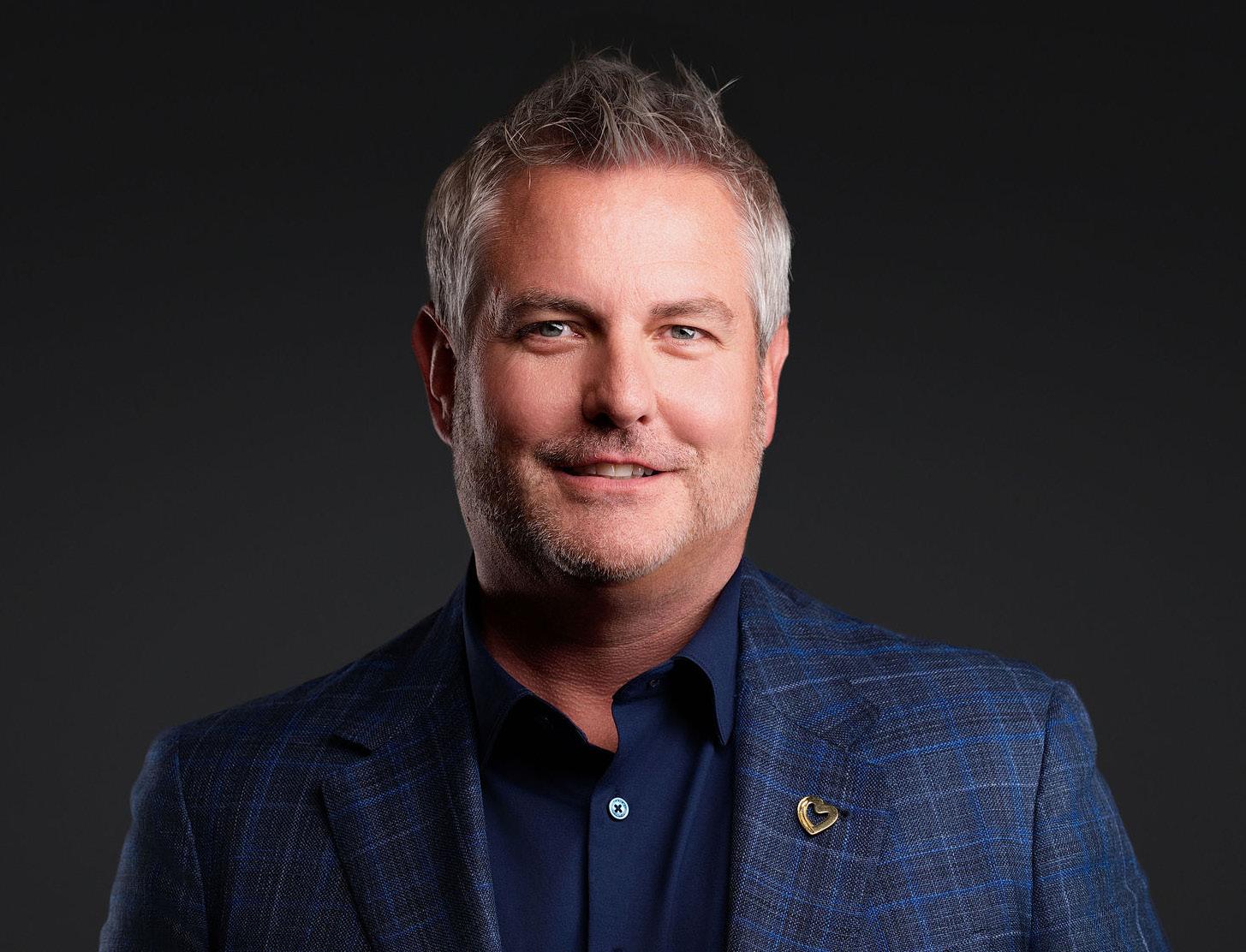
MIKE KULP CEO
Company: KBP Brands
No. of units: 828 KFC, 119 Arby’s, 85 Sonic, 56 Taco Bell
Family: Wife Stephanie and 3 children, Eric, 24, Mikey, 17, and Gracie, 13,
Years in franchising: 26
Years in current position: 14
When Multi-Unit Franchisee magazine first profiled Mike Kulp in February 2019, he was riding high, leading one of the nation’s fastest-growing restaurant companies with more than 700 KFC and Taco Bell locations under his belt. Business was booming, and the future looked bright.
Just a year later, the Covid-19 pandemic swept across the country, bringing everyday life and the restaurant industry to a halt. As dining rooms closed and uncertainty loomed, the challenges piled on. Even as the pandemic’s grip loosened and restaurants reopened, operators were hit with a new wave of hurdles: labor shortages, rising wages, and surging inflation that sent product costs soaring. Through it all, Kulp remained steady. He says the storm tested his team and made them stronger, more focused, and better equipped for whatever comes next.
“We learned to be nimble and how much the team can handle,” Kulp says. “It was a period of tremendous stress. It went from being a very negative situation to one with a lot of positive outcomes. It taught us we can handle a lot, and it made us better in areas outside of dealing with the pandemic.”
KBP Brands is coming off its second-largest growth year by revenue and the largest EBIDTA acquisition year in its 14-year history. The company has also grown to more than 1,000 locations and extended its portfolio beyond the Yum! Brands family to include Inspire Brands by purchasing 119 Arby’s and 85 Sonic restaurants. Diversifying KBP’s portfolio was a strategic move to reduce risk, increase the customer base, and add value to the company.
“Financial markets value diversification,” Kulp says. “It is less risky. There are price fluctuations in products like chicken or beef. Those businesses are very different from each other. This has given us the ability to work with two world-class franchisors with a great history and a bright future.”
Despite owning one of the country’s largest restaurant companies with locations in 32 states, Kulp keeps the focus of his business on the people who operate it each day. He says hiring the right employees to be his best investment. While Kulp oversees the financial performance of his restaurants with a keen eye, he says it is important to bring in talented managers and team members and give them the space to run daily operations.
Kulp puts those thoughts into action with the company’s equity partner program. Top employees can buy into the business and have a stake in the company. What began with two team members 15 years ago has expanded to approximately 50 employees with ownership stakes. He says that the program helps recruit top talent and keeps turnover for key positions low.
Even though KBP has surpassed 1,000 units with an annual revenue of $1.4 billion, Kulp plans to continue scaling the business. Rather than reaching a certain number of units or brands, he considers his primary goal to create opportunities for KBP Brands employees to grow personally, professionally, and financially each year.
PERSONAL
First job: As a cook at the local drive-in restaurant. I started on the day I turned 14.
Formative influences/events: There have been many. I’ve found people to be incredibly generous with their time and patience and am forever grateful to the many people who have said “yes” to teaching and helping me over the years. Dave Goebel, for-
mer CEO of Applebee’s and several other brands, has been a wonderful resource and very helpful to me and my team. Jim Schwartz was another large, multi-unit franchisee on a similar career path years ago, and I was able to communicate and exchange ideas with him.
Key accomplishments: Creating our internal equity program years ago, building our employeefocused charity, KBP Cares, in 2015, and recapitalizing the business several times.
Biggest current challenge: It’s been a tough few years in the restaurant industry following the pandemic. Costs have increased, and consumer headwinds have been real. Keeping teams highly motivated, focused, and striving for greatness in these types of environments is always a challenge.
Next big goal: Through continued diversification to position the organization for another decade of profitable growth. We want to provide a path to see tangible growth opportunities on a consistent basis.
First turning point in your career: Raising enough capital to buy out my existing partners in 2011 to create KBP as we know it today.
Best business decision: Making key employees equity partners. Providing ownership in the company has helped us attract and retain top talent. It’s motivating to have a vested interest in the company’s success and has been incredibly rewarding over the years for our partners.
Hardest lesson learned: We had a perfect storm following the Covid pandemic, when labor, inflation, and the cost of products increased by more than 40% over a two-year period. The scale and pace of that inflation was so rapid that we couldn’t have planned for it, but the experience reinforced the importance of diversification and maintaining flexibility with our capital partners, our teams, and our brands. Hard lessons are part of taking risks. What we’ve learned from them has been invaluable.
Work week: I have significant diversity in my day with my team, our investors, our franchisors, and other franchisees. The diversity is what keeps it interesting. There are periods within the year that I spend a significant amount of time on the road and others where my days are more consistent in our corporate office in Kansas City. This industry keeps you on your toes, and you never know what tomorrow may bring.
Exercise/workout: It varies greatly depending on my location and what I have going on at that given time.
Best advice you ever got: To find the smartest, best mentors who you’d never think would take time out of their day to talk with you. In fact, I’ve yet to have someone tell me “no,” and I have asked some pretty accomplished leaders for their time. What’s your passion in business? Our purpose is to create life-changing opportunities. It’s rewarding to see the number of people who have accomplished amazing things personally, professionally, and financially through KBP.
Hardest lesson learned: We had a perfect storm following the Covid pandemic, when labor, inflation, and the cost of products increased by more than 40% over a two-year period. The scale and pace of that inflation was so rapid that we couldn’t have planned for it, but the experience reinforced the importance of diversification and maintaining flexibility with our capital partners, our teams, and our brands. Hard lessons are part of taking risks. What we’ve learned from them has been invaluable.
How do you balance life and work? This comes down to prioritization in both life and work. A valuable lesson I learned early on: “If someone else can be doing it, they should be.” This helps prioritize your time and avoid spending it on things you simply don’t need to do.
Guilty pleasure: A great bourbon and new golf equipment.
Favorite book: I only read nonfiction and business books. I couldn’t pick just one. There are so many great takeaways from people’s real experiences.
Favorite movie: Too hard to choose; it depends on my mood.
What do most people not know about you? I still want to learn to speak Spanish fluently and learn to play the piano.
Pet peeves: Clutter, disorganization, and arrogance.
What did you want to be when you grew up? A lawyer. Thank goodness that didn’t work out!
Last vacation: Grand Cayman in May.
Person you’d most like to have lunch with: My late father, who passed away at a young age.
MANAGEMENT
Business philosophy: We’re here to help people. What you put into people comes back around. KBP’s culture is competitive and compassionate. We’ve got to push each other and take care of each other.
Management method or style: Hire smart people who challenge you, whom you enjoy being around, and whom you want to wake up every day to deliver for.
Greatest challenge: Constantly enhancing talent and increasing our capabilities to scale the business without losing sight of the nimbleness and connectedness we had when we were much smaller.
How do others describe you? Strategic, optimistic, cares about people and culture, loyal, and genuine. People know I don’t care about personal success as much as the success of the people around me and this thing we’re building together.
Have you ever been in a mentor-mentee relationship? What did you learn? I am always in both and have learned far more than I could begin to list here. I am a huge believer in continuously learning from those who have been where you are and where you want to go.
One thing you’re looking to do better: I’m always looking to do everything better. One of our core values at KBP is “Fight for Great,” which is about how we constantly learn and evolve to push the business forward, drive growth personally and professionally, and never settle for mediocrity.
How you give your team room to innovate and experiment: I think it’s important to give people room to make mistakes and learn from them. It’s how we get the best creative thinking and build resilience. Storytelling about mistakes we’ve made and public displays of imperfection are critical in creating this environment.
How close are you to operations? I got my start in operations but learned early on the importance of hiring great people and letting them run. We have phenomenal operations experience leading each of our brands, including leaders in each of our markets who work closely with restaurants every day to push for consistency and improvement. I stay close through the numbers but allow the team their space.
What are the two most important things you rely on from your franchisor? Creating and upholding a strong brand and thought leadership. We also expect our franchisors to hire top-level talent and attract top-level franchisees.
What you need from vendors: Consistency. We also want them to view our relationship as a partnership.
Have you changed your marketing strategy in response to the economy? How? Yes. I think every brand has. Lower consumer demand and inflation always lead to higher competition for share. We’ve made strategic shifts on spending, placement, messaging, and more. We have also had to make significant shifts in marketing due to the rapidly changing role nontraditional media plays today.
How is social media affecting your business? Social media helps us reach audiences, such as customers and potential employees, who would otherwise be difficult to reach. But it is also a platform that thrives on negativity, and one bad customer experience that goes viral can damage a brand and its employees. It’s a blessing and a curse, and handling both of those is a delicate balance.
In what ways are you using technology (like AI) to manage your business? We are using it for hiring, and we are testing it with drive-thru ordering at some of our locations. There are opportunities to start integration into our HR tools.
How do you hire and fire? It is a balance between hiring people who have all the capabilities that you need and working with people you enjoy being with.
How do you train and retain? To me, all things start with relationships, and nothing builds morale faster than servant leadership.
How do you deal with problem employees? How we lead our teams has more impact on our success than anything else. We coach and deal with issues quickly and never underestimate the impact that a poorly performing or highly negative employee can have on the team. Helping someone find a better fit is often the best thing you can do for everyone.
Fastest way into your doghouse: Any breach of trust or integrity.
BOTTOM LINE
Annual revenue: $1.4 billion in 2024.
Goals over the next year: Continued growth and diversification. We want to scale the brands that are newer to our portfolio.
Growth meter: How do you measure your growth? We’re an acquisition-driven business, but for us, it’s not about reaching a specific number of brands or locations. We’re always looking for opportunities because growing the business also means helping our employees grow personally, professionally, and financially.
Vision meter: Where do you want to be in five years? 10 years? We’ll continue doing the things that are working and evolving where we’re headed, but everything we do is measured against how it helps us fulfill our purpose of creating lifechanging opportunities and whether it’s aligned with our values.
Do you have brands in different segments? Why/why not? QSR is the common link between our current brands. We’re highly regimented with
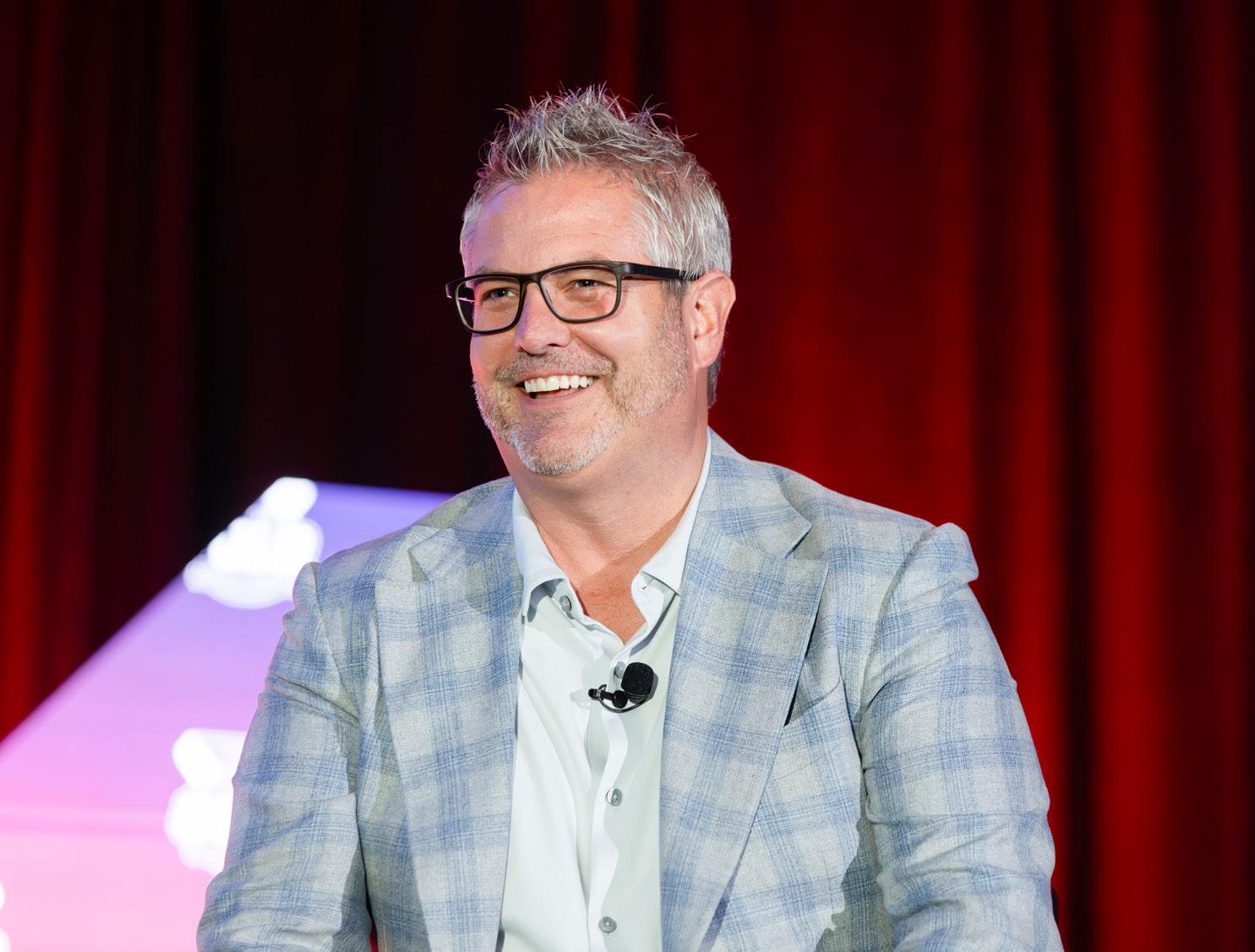
processes and operational efficiencies that make sense no matter the segment. We’re invested in several segments (chicken, tacos, sandwiches, burgers, and shakes) to diversify our portfolio of restaurants and widen our customer base.
How is the economy in your region(s) affecting you, your employees, your customers? We’ve experienced unprecedented inflation over the past three years, which has impacted pricing industry wide and limited discretionary income for our customers.
Are you experiencing economic growth in your market? We’re in 32 states and have seen rising costs impact people’s discretionary spending for eating out. We are being smart about operations and spending, and we continue to find opportunities. And 2024 was our second-largest growth year by revenue and the largest EBIDTA acquisition year in KBP history.
How do changes in the economy affect the way you do business? When people eat out less, every visit matters more, and service becomes more important than ever. The last few years have been volatile, but I believe we’re not defined by the challenges we encounter but by how we respond to them. Over KBP’s history, we’ve seen many highs and lows, but this company is resilient and continues to enjoy the ride.
How do you forecast for your business? By staying close to our projections for cash flow and not just revenue. We want to ensure we are thoughtful around the free cash-flow dynamics of the business. What are the best sources for capital expansion? Currently, we have a great partnership with a family office as well as long-standing partnerships with traditional lenders.
Experience with private equity, local banks, national banks, other institutions? Why/ why not? We have used private equity in the past but not currently. We mostly use national banks because of the scale of our business.
What are you doing to take care of your employees? Our employees are our best investment. What we put into our people comes back around. Our company logo has always included a circle because this full-circle concept is so important to how we operate.
How are you handling rising employee costs (payroll, minimum wage, healthcare, etc.)? We’ve actually seen a cooling of that in 2025 after increases over previous years.
What laws and regulations are affecting your business, and how are you dealing with them? With our scale, laws often vary by state, so we’re constantly tracking requirements by location to ensure regulatory compliance.
How do you reward/recognize top-performing employees? Our annual Top 10 competition rewards the top 10% of performers each year. We’ve done trips, pick-your-own prize, and more. Any restaurant manager who makes the Top 10 three times gets into our Hall of Fame and gets to rename their restaurant location.
What kind of exit strategy do you have in place? Exit? We’re just getting started!
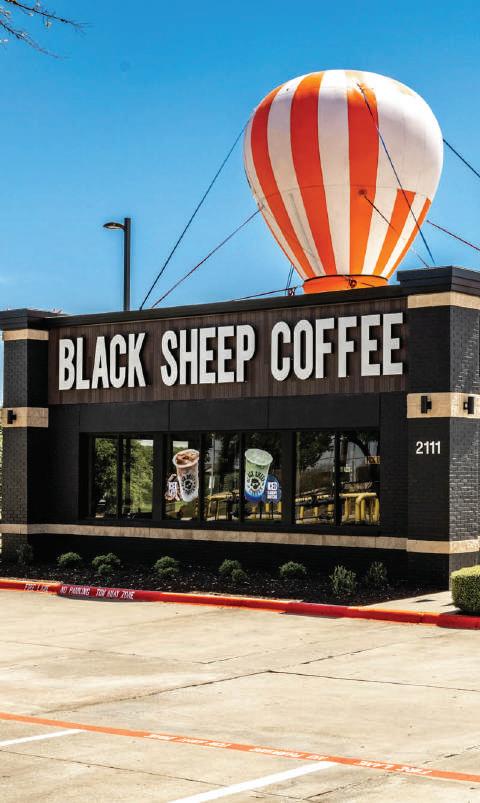


BLACK SHEEP COFFEE ISN’T YOUR AVERAGE COFFEE CHAIN, IT'S YOUR OPPORTUNITY TO OWN A BOLD BRAND REWRITING THE COFFEE PLAYBOOK.
DRIVE-THRUS, IN-LINE FORMATS & ALL-DAY MENUS
TECH-ENABLED: SELF-ORDER KIOSKS, MOBILE PRE-ORDER, LOYALTY APP INTEGRATION
FRANCHISE FEE: $40,000
CONSTRUCTION COSTS: $400,000 - $800,000
FURNISHINGS: $50,000 - $100,000
*See FDD for details
BECOME A BLACK SHEEP COFFEE FRANCHISEE AND LEAVE THE HERD BEHIND
“Protecting your focus is just as important as pursuing opportunity.”
Expanding the Fleet
Operator goes from food truck grind to lobster roll gold
Written by KEVIN BEHAN

YUNUS SHAHUL
Franchise Owner
Company: Smartfoods Group No. of units: 24 Cousins Maine Lobster, 1 German Doner Kebab Age: 40
Family: Married and 2 children
Years in franchising: 7 years
Years in current position: 7 years
Yunus Shahul remembers working long hours in the cramped quarters of an Indian food truck and wondering how his sales would be each day. He says those 10 years were “the worst experience of my life.” But a chance encounter with Cousins Maine Lobster changed his trajectory.
Shahul was working a food truck event when he noticed a long line of customers around a Cousins Maine Lobster truck. The popularity of the concept caught his attention, so he researched the brand. He discovered a proven business model with low overhead and ease of operation. He realized a cooking background wasn’t necessary to prepare the lobster grilled cheese, New England clam chowder, or the brand's featured item, the lobster roll. After taking a hard look at the opportunity, Shahul said, “Wow, is that it?”
The first person he called after discovering Cousins Maine Lobster was his brother, Thameem.
Shahul says his brother always believed in him and encouraged him. The two leaped together and purchased their first Cousins Maine Lobster franchise in Connecticut in 2018.
“I didn’t want to get too comfortable with what I was doing at that point in my career,” Shahul says. “I would rather take a risk and use the skills I acquired in the restaurant industry. I learned many practical things in life. Why can’t I put that into one truck on my own? I didn’t have the money to invest in a brick-and-mortar business. That risk scared me. It was much safer to invest in a mobile business, especially with the high chance of being profitable from the start.”
Today, the brothers own 24 Cousins Maine Lobster franchise territories across six states. Thameem handles the purchasing and inventory while Yunus coordinates event scheduling and oversees a sales team of 23 people. Each truck operates with two to four team members with the ability to add others during large events or busy times. Managing so many employees and territories requires constant organization and communication.
Shahul says their success has been fueled by the leadership structure and brand visibility of Cousins Maine Lobster along with a strategic approach to scheduling the routes and events for the food trucks. He says that offering quality seafood products in high demand has contributed to consistently high sales.
After seven years in the system, the Shahul brothers are the largest franchisees in the Cousins’ system with 24 trucks. They are looking to continue to grow in new and existing markets in the Midwest in hopes of reaching $30 million in annual revenue.
“It feels like we just started this yesterday,” he says. “We are not done. There is a lot left for us. Just because we did great yesterday doesn’t guarantee success for the future. I want to repeat and build on my success and hold everything to a high standard.”
PERSONAL
First job: As a dishwasher in India when I was 16. Formative influences/events: The greatest impact in my life has been my dad. He is a person who never attended school or college yet possesses wisdom, self-discipline, and business sense. As soon as I was old enough, I watched the way he lived his life with honesty, resilience, and keen intuition. Seeing the way he created and ran a life through his own effort showed me that achievement doesn’t necessarily reside in textbooks. It is constructed through effort, creativity, and perseverance. His example
influenced my values, directed my aspirations, and helped me appreciate all types of intelligence.
Key accomplishments: From one food truck to 24 units and growing. In other words, going from $350 in daily sales to an average of $100,000 in daily sales.
Biggest current challenge: I believe not just me, but many of us who are involved in business face the same challenges when it comes to balancing time with family and time at work because, at a certain point, work becomes our family too.
Next big goal: I’m focused on growing our footprint by expanding our fleet and adding new territories with the goal of bringing Cousins Maine Lobster to more communities across our region. We are specifically looking at new and existing markets in the Midwest.
First turning point in your career: The Almighty has selected me to pass through the journey of Cousins Maine Lobster in life. It was a turning moment in my life, and such good things come to selected individuals, and I am grateful to God for selecting me.
Best business decision: Choosing Cousins Maine Lobster. I have been able to be very profitable since day one as a franchise owner, especially for someone who previously did not have an ownership background. There are few overhead costs, and I have been able to scale up the business.
Hardest lesson learned: I’ve come to understand, sometimes in a hard way, that not everyone and everything is worth my time, energy, investment, or generosity. One of the most valuable skills is learning to say “no” to people and situations that don’t contribute to our growth or align with our purpose. Protecting your focus is just as important as pursuing opportunity.
Work week: Many people believe that how we end the day is what matters most, but I believe it’s how we start our day that truly sets the tone for everything else. My day begins at 4 a.m. with the dawn prayer. Devoting the first 30 minutes after waking to connect and reflect with the Creator is the most valuable part of my day as it naturally flows to the cherished family time that comes after that. Once I reach the office, the workday begins with emails, calls, and team meetings. Of course, there are short breaks in between. After work, I play tennis and then head home to spend the rest of the evening with my family. Every day includes a brief time for reflection, review, and preparation for the next day. I close my day with prayer and gratitude. This daily rhythm essentially becomes my weekly routine as well.
Exercise/workout: I play tennis six hours a week.
Best advice you ever got: The best advice I ever received in life is from my dad, who said, “Even if you’re on a sidewalk begging, treat it as a profession and approach it with complete sincerity.” Throughout my working career, I’ve always applied this one simple rule.
Best advice you ever got: The best advice I ever received in life is from my dad, who said, “Even if you’re on a sidewalk begging, treat it as a profession and approach it with complete sincerity.” Throughout my working career, I’ve always applied this one simple rule.
What’s your passion in business? My passion is keeping our customers satisfied by delivering the quality and service that Cousins Maine Lobster represents. I’m committed to upholding our brand values while ensuring every customer has an exceptional experience.
How do you balance life and work? You’ll never truly find the balance between life and work without the right partner. I’m blessed to have an amazing, caring, and loving wife and a wonderful family.
Guilty pleasure: Nothing comes to mind. Favorite book: The Quran.
Favorite movie: Movies that carry a social meaning in life. One of my favorites is “The Pursuit of Happyness.”
What do most people not know about you? Before franchising, I had a background in the medical field.
Pet peeve: I don’t like to repeat things or keep following up. I expect my team to deliver it when it’s said once.
What did you want to be when you grew up? I had short-term and long-term goals at 17 years old. My short-term goal was to save enough to fill my belly, and my long-term goal was to work diligently until I was capable enough to afford buying other people a meal.
Last vacation: Miami in May.
Person you’d most like to have lunch with: My wife.
MANAGEMENT
Business philosophy: To maintain honesty and recognize that short-term success is never guaranteed to last forever.
Management method or style: My management style is to maintain the same high energy and engagement with my team as I had on their first day. I believe in staying actively involved and committed to supporting them throughout their entire journey and never becoming complacent once they’re settled in.
Greatest challenge: Balancing multiple trucks and territories while ensuring every team consistently upholds the brand’s high standards can be complex. However, it is also one of the most rewarding parts of the job.
How do others describe you? Driven, collaborative, and grounded in the details. I lead by example and care deeply about consistency and culture across every truck.
Have you ever been in a mentor-mentee relationship? What did you learn? While I haven’t had a formal mentor-mentee relationship, I’ve learned valuable lessons from various business owners and operators throughout my career. I’ve gained insight by observing what not to do and using their mistakes as guidance for better business practices.
One thing you’re looking to do better: I’m always working on becoming a more strategic delegator. I want to be able to empower my team more so that I can stay focused on growth and big-picture decisions.
How you give your team room to innovate and experiment: I create an environment where feedback is encouraged and team members feel ownership over their roles. We celebrate ideas that improve service and operations.
How close are you to operations? I’m deeply involved in daily operations and closely monitor every interaction and challenge between our truck teams and managers through our tracking system. This hands-on approach allows me to quickly identify and resolve issues while providing immediate support where needed.
What are the two most important things you rely on from your franchisor? These days, many marriages fall apart quickly due to a lack of love and communication. But with Cousins Maine Lobster as my franchisor, this has been the best partnership I’ve ever had because it’s built on both genuine care and open, consistent communication.
What you need from vendors: I expect prompt responsiveness from our vendors, and fortunately, all of them have consistently delivered quick
How do changes in the economy affect
the way you do business?
Our food truck business model remains strong regardless of economic conditions because of its low overhead and operational flexibility. Unlike brick-and-mortar establishments, we avoid burdens like property taxes and high urban rents. The food truck model isn’t just cost-effective; it’s strategic, which allows us to enter emerging markets and shift locations based on demand. It ensures we stay responsive, efficient, and impactful.
support whenever my team encounters issues or challenges. Their reliability has been essential to our smooth operations.
Have you changed your marketing strategy in response to the economy? How? Social media has been incredibly valuable to our business model, and we’ve maximized our leverage of social media to its full potential. We haven’t altered our marketing approach because our current strategy is working exceptionally well for us.
How is social media affecting your business? Facebook has been our primary promotional platform, and while it hasn’t hurt us yet, I’ve noticed declining user engagement as more companies enter the digital space. I’m looking forward to exploring other available platforms to maintain our momentum and stay ahead of emerging trends.
In what ways are you using technology (like AI) to manage your business? The AI space is currently very noisy, making it difficult to commit to a single tool and invest the time needed to master it effectively. I prefer to wait until the AI ecosystem in marketing settles and then implement a solution that’s specifically suited to our food truck business model.
How do you hire and fire? I hire based on attitude and cultural fit and then train for skills. When it comes to firing, I address performance issues quickly and directly to maintain team standards.
How do you train and retain? We train and retain by promoting from within. Every regional manager started as a crew member, gaining firsthand experience under the guidance of our director of operations. This ensures deep operational knowledge and consistent standards across teams. We also support retention with competitive benefits, including free housing for full-time staff.
How do you deal with problem employees? As a multi-unit operator, challenges are expected, but our general managers are well trained and empowered with clear policies to handle employee issues independently and effectively.
Fastest way into your doghouse: Cutting corners on quality or guest experience. Those are nonnegotiables for me. We’re known for excellence, and I expect every truck to reflect that.
BOTTOM LINE
Annual revenue: $24 million.
Goals over the next year: The goal is to continue to increase revenue with the next target being to hit $30 million.
Growth meter: How do you measure your growth? We measure growth by tracking the number of active units in each market and their performance. Markets performing above the system average are prime locations for expansion if there are available vending opportunities.
Vision meter: Where do you want to be in five years? 10 years? In five years, I aim to have built something meaningful, whether that’s refin-
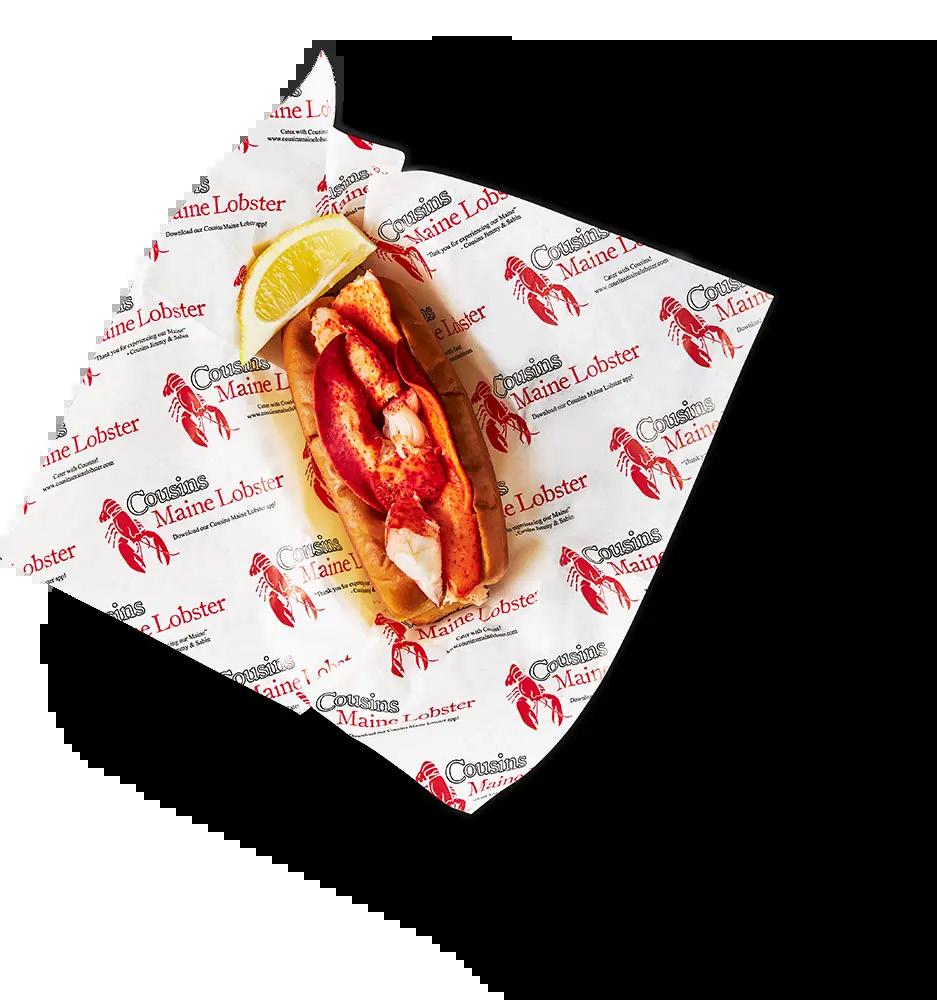
ing a business model to run independently or applying lessons from failure to a smart second venture. Within ten years, I want to look back knowing I didn’t chase titles or trends but created systems, brands, or cultures that thrive without my constant presence. My goal is to be highly relevant, not just successful.
Do you have brands in different segments? Why/why not? In addition to being a franchisee with Cousins Maine Lobster, I also operate a German Doner Kebab franchise, a European-based concept. I chose it to diversify my portfolio and tap into different market segments.
How is the economy in your region(s) affecting you, your employees, your customers? The economy hasn’t significantly impacted us thanks to our mobile model, which keeps overhead low and operations agile. This flexibility helps us retain staff and adapt to market changes, allowing us to continue serving our customers affordably even in high-cost or economically uncertain regions.
Are you experiencing economic growth in your market? Yes. We’re experiencing steady economic growth driven by strong unit performance, low overhead, and high demand across diverse markets. Our mobile model enables us to enter new communities and seize opportunities with minimal risk.
How do changes in the economy affect the way you do business? Our food truck business model remains strong regardless of economic conditions because of its low overhead and operational flexibility. Unlike brick-and-mortar establishments, we avoid burdens like property taxes and high urban rents. The food truck model isn’t just costeffective; it’s strategic, which allows us to enter emerging markets and shift locations based on demand. It ensures we stay responsive, efficient, and impactful.
How do you forecast for your business? One of our core success elements is strategically booking our trucks based on historical performance and ongoing market insights. While we follow proven patterns, we tailor our approach to the unique dynamics of each territory and prioritize booking

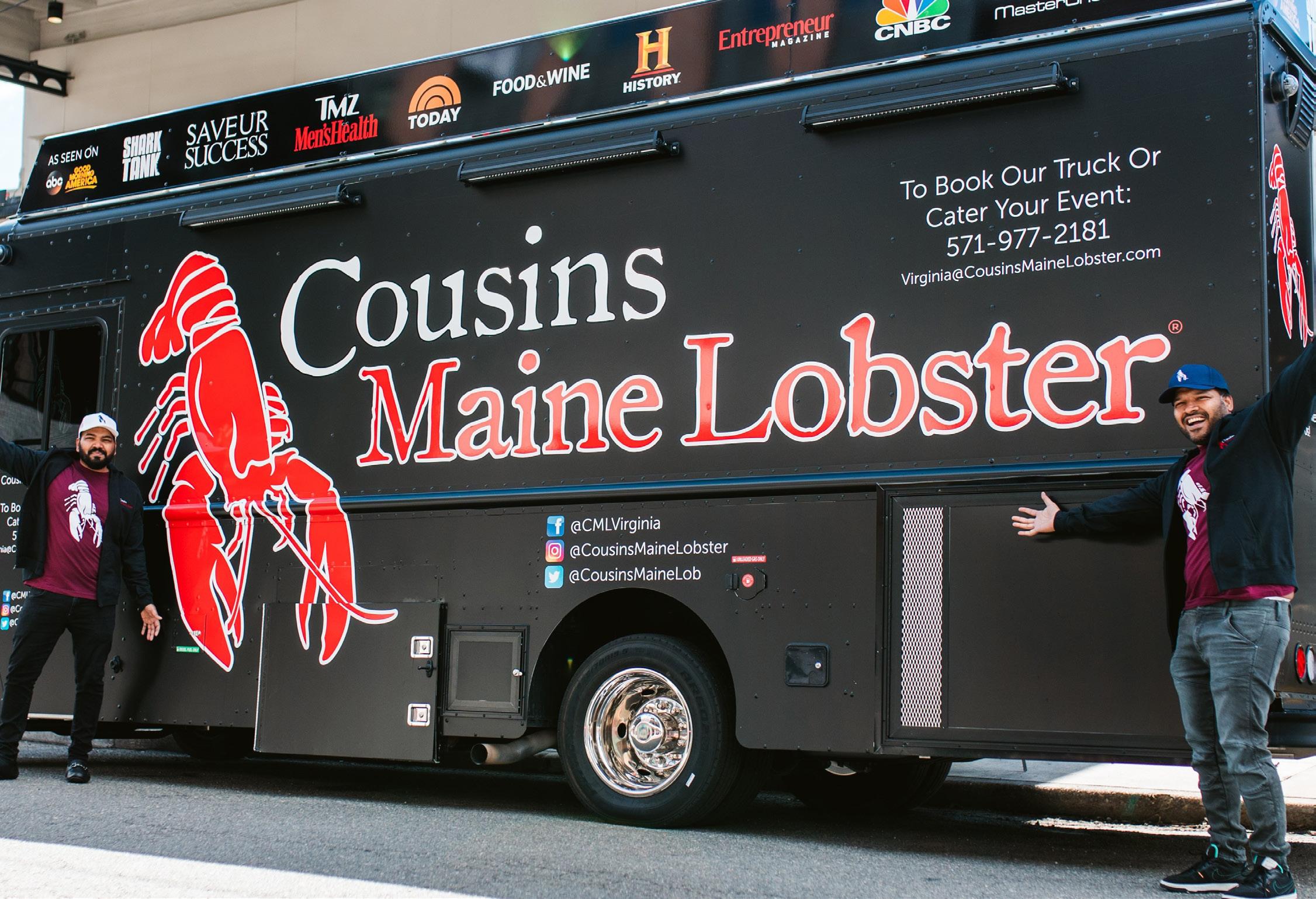
our trucks far in advance. Weekly projections are developed in advance, evaluating the potential of upcoming vending locations. I also meet with our booking team two weeks ahead to align our strategy and ensure optimal execution.
What are the best sources for capital expansion? The best sources have been local lenders who support community-based businesses along with traditional commercial auto loans tailored to our mobile food truck model.
Experience with private equity, local banks, national banks, other institutions? Why/ why not? I have never had any adverse dealings with banks or lenders. To the contrary, I’ve actually gotten truck financing with same-day approval due to the high revenue, low operating expense, and high EBITDA our mobile operations earn compared to the typical brick-and-mortar locations. What are you doing to take care of your employees? We invest in our employees with competitive salaries, free accommodations for our full-time employees, flexible scheduling, and open career advancement opportunities. The majority of our management team completed their career journey from the ground up, demonstrating our emphasis on cultivating internal talent and creating long-term careers.
How are you handling rising employee costs (payroll, minimum wage, healthcare, etc.)? We’re managing increasing employee expenses with strategic scheduling, operational effectiveness, and performance-based incentives. Due to our mobile model, our overhead costs are lower than those of our brick-and-mortar competitors, enabling us to pay competitive wages and still achieve healthy profit margins. We also train our employees in crossover skills to make our team more flexible and productive and fill each shift to capacity. We are also using data to predict high-demand locations so that we can optimize labor hours based on selling opportunities. This strategy manages expenses while engaging our staff and motivating them.
What laws and regulations are affecting your business, and how are you dealing with them? For our mobile food truck operations, the primary regulatory considerations are county or township-specific restrictions. Beyond that, we haven’t encountered any significant legal or regulatory challenges affecting our business.
How do you reward/recognize top-performing employees? We think recognition is a strong motivator for employee retention and team spirit, particularly in a fast-moving, consumerfacing business like ours. High-performing staff are incentivized through a mix of financial re -
wards, performance bonuses, and paid leave. We also recognize our employees with an employee of the month award, handwritten thank-you notes, and shout-outs at team meetings. In addition, we include free accommodation and preferential planning as benefits for our permanent team members. Above all, we make career paths evident as our regional managers began their careers as crew members. This sends a strong message that performance creates genuine opportunity.
What kind of exit strategy do you have in place? I never even thought about it.
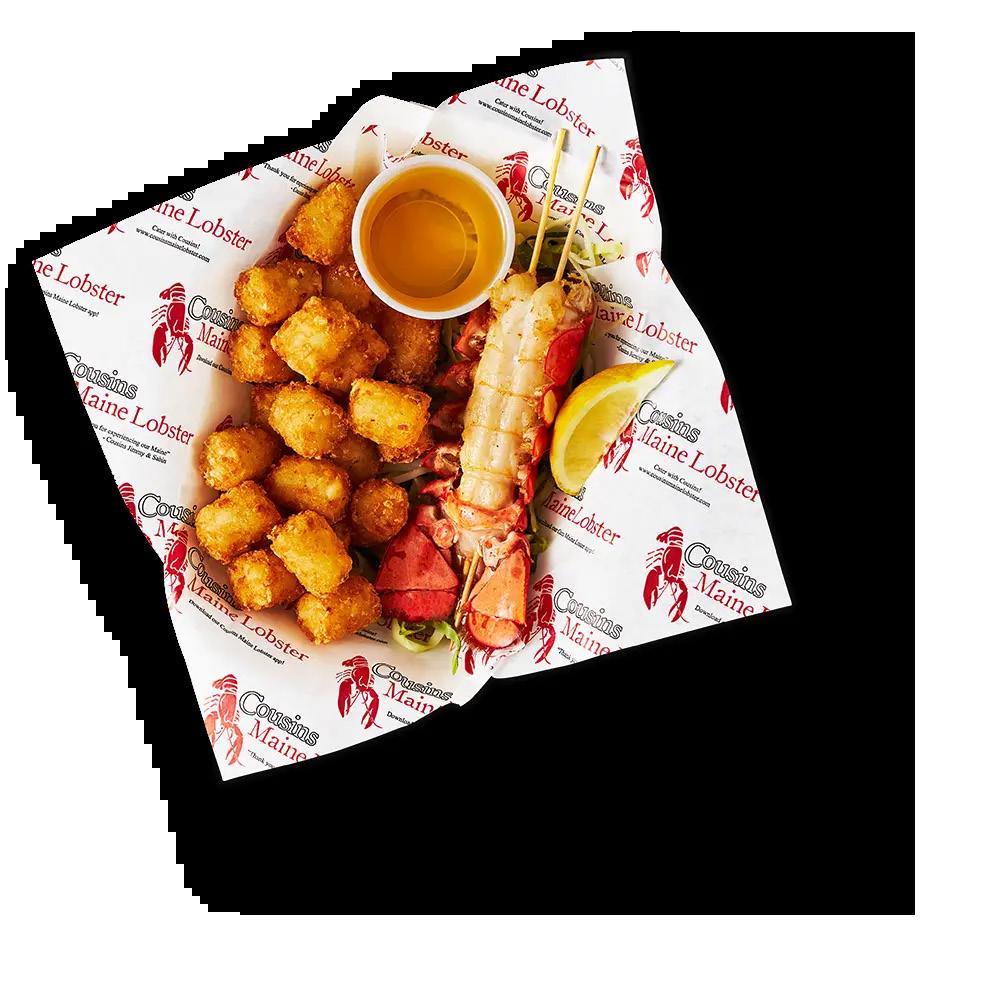









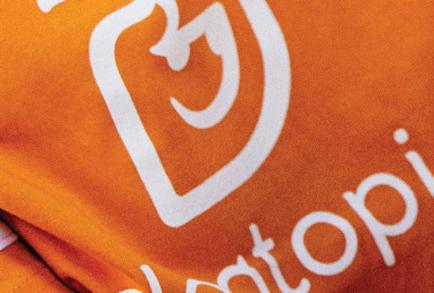




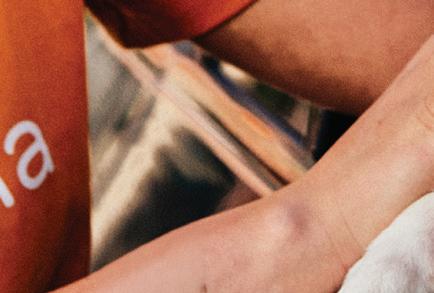









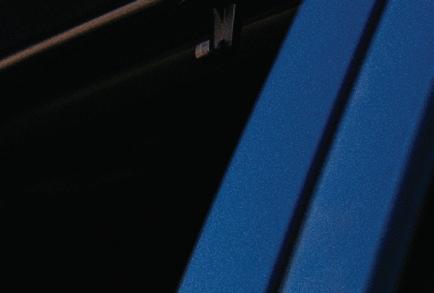

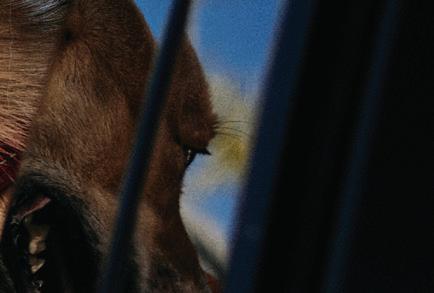



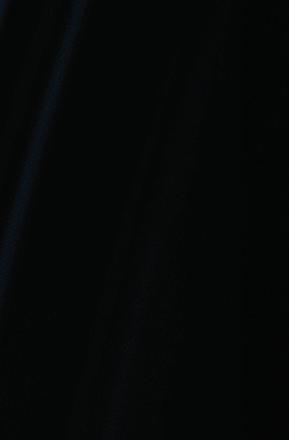






2025 Multi-Unit 50 Lists Include New Brands
Written by AMBIKA OBEROI

The annual Multi-Unit 50 lists include the Top 50 Brands by Number of Multi-Unit Franchisees and the Top 50 Brands by Percentage of MultiUnit Franchisees, highlighting the franchise systems with the highest number and proportion of multi-unit operators (MUOs), a critical indicator of system maturity and growth potential.
Subway maintained its position at the top followed by McDonald’s and The UPS Store. This year’s list also saw new entrants with impressive momentum, including 7 Brew, which leads in MUO percentage at 92.85%. Since launching its franchise program in 2021, this drive-thru beverage chain has aggressively expanded through multi-unit development agreements, reporting 297 franchised units by the end of 2024.
Other notable additions include Slim Chickens and Crumbl in food and Keller Williams and Hand & Stone Massage and Facial Spa in non-food sectors. In total, 42,571 MUOs now operate 243,278 franchised units in the U.S., accounting for 56.5% of all franchised locations—a clear sign of the growing influence of multi-unit operators across the franchise landscape.
This analysis is made possible through FRANdata’s franchise database. Our dedicated information specialists work continuously to validate, update, and enrich the data, ensuring our insights reflect the most accurate picture of the franchise market. Due to ongoing changes within this system and FRANdata’s continuous data verification process, the total number of multi-unit franchisee owners may be subject to updates.
Ambika
Oberoi is director of information management at FRANdata.
2025 MULTI-UNIT 50 RANKINGS
Disclaimer:
TOP 50 BRANDS BY % OF MULTI-UNIT FRANCHISEES
Source: FRANdata
Disclaimer:

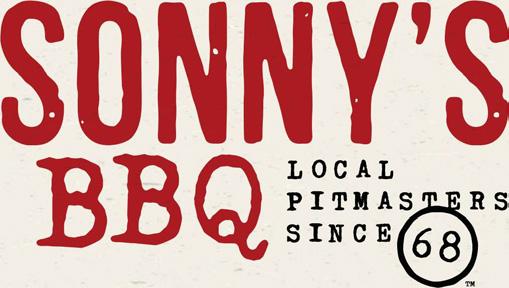
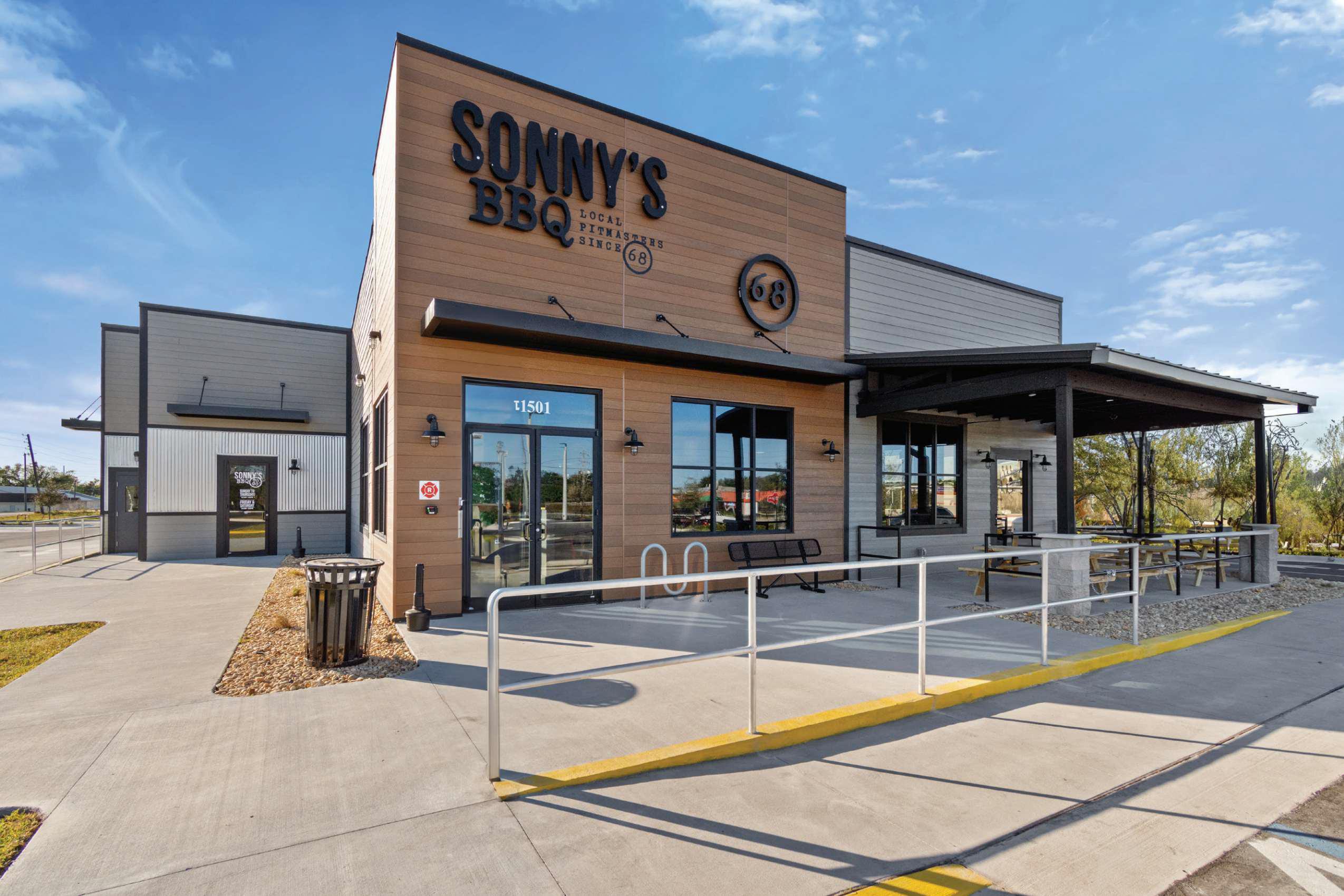



Health-related franchise brands offer opportunities to serve
Written by COLLEEN MCMILLAR
When Rasheen Hartwell started taking his son to a Stretch Zone studio in Nashville, he was amazed by what he discovered.
A former running back at Eastern Michigan University, Hartwell had long believed in the power of stretching to increase an athlete’s durability and enhance performance. He was sure his son, a high school football player, would benefit from assisted stretching. He was right.
But that wasn’t the discovery that piqued Hartwell’s interest in becoming a Stretch Zone franchisee. It was something he saw and learned while at the facility: People were flocking there. The company was expanding into new markets. And this was in 2021, when the country was in the throes of Covid-19.
“I just was fascinated that they were growing as a company,” he says, “and I wondered: How are they growing at a time when you couldn’t even touch people for a year or two?”
Stretch Zone, founded in 2004, had a record-breaking year in 2021, taking in more revenue than ever and celebrating more than 150 studios in operation. In 2022, it eclipsed 200 studios. By 2023, two or three locations a week were opening. In May 2025, the company was approaching 400 U.S. locations. Hartwell owns five of them.
Stretch Zone is one of the many health-related brands benefiting from America’s insatiable appetite for wellness services and products. Many Americans came out of the pandemic with a renewed focus on holistic care and aging well, fueling robust growth for the diverse health and wellness industry.
According to FRANdata, the industry, which includes fitness studios, gyms, spas, home healthcare, beauty salons, and tanning salons, is growing at a rate of 5 to 10% annually in the U.S. and was valued at $480 billion in 2024. By some estimates, the value last year was closer to $2 trillion.
Americans still want treadmills and kettlebells, and they want to relax with therapeutic massages and hydrating facials. They are also taking advantage of newer offerings to maintain health, manage pain, and de-stress. They’re trying lymphatic drainage, vitamin infusion therapy, infrared saunas, cryotherapy, and balance improvement therapy. The list goes on and on.
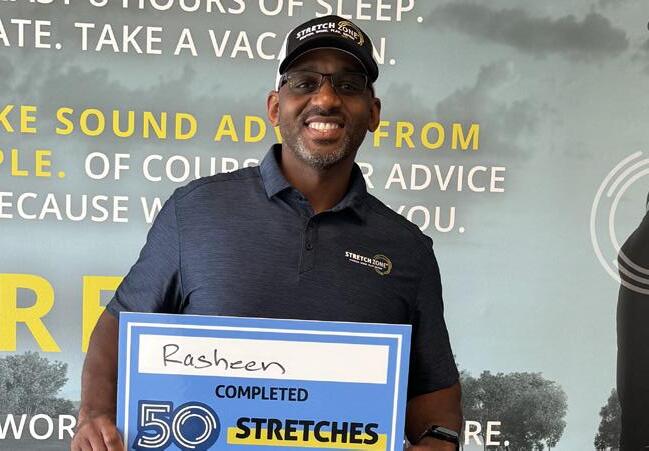
Many franchisees are drawn to health and wellness brands because they were influenced by personal experiences. It’s about more than dollars and cents, and success requires more than just business acumen.
“You’ve got to want to help people,” Hartwell says. “I’m not saying that restaurant franchise owners don’t help people, but feeding them is one thing, and helping them have a better quality of life is another. I don’t think you can own a fitness and wellness franchise, and do it well, without wanting to help people feel better and without really being engaged with helping people reach their goals.”
Taking control
Hartwell has been athletic for all of his life, playing football, basketball, tennis, and golf. He also enjoys developing and training young athletes.
Early on, he recognized the benefits of maintaining a flexible body and not just for those who play sports. His grandmother always stretched, and it helped her remain healthy and active throughout her life.
For Hartwell, it was always a matter of time before he ended up working in the sports and fitness field. After 25 years in the corporate world, he spotted his opportunity when he began taking his son to the Stretch Zone.
“I became fascinated with the whole process,” he says. “It created a bigger love for stretching, seeing him and how he felt afterward.”
Hartwell found out the company wasn’t merely weathering the Covid storm. It was thriving. According to Stretch Zone, not one of its studios closed during the health crisis. Hartwell realized it was the right fit. He opened his first studio in Bettendorf, Iowa, in 2022. Four others, mostly in the Chicago area, quickly followed.
Clients go to Stretch Zone to increase their range of motion and to improve mobility. Some people who have never been to a studio have a misperception that Stretch Zone caters to serious athletes, he says. That’s a small percentage of his business.
His studios pull from every demographic as people try to take control of their health journeys. Most devotees are between the ages of 30 and 60. Their goals range from “running longer in a marathon or just getting out of bed without pain or just being able to raise their arm past their shoulder or being able to hit the ball as a golfer a little longer,” Hartwell says. “I don’t think there’s a more satisfied customer than someone who has a goal, and their body is telling them they can’t do it, and then they do something that allows them to do it.”
It’s important to draw a line between Stretch Zone practitioners and healthcare professionals, he says.
“For us, one of the challenges is making sure that we differentiate ourselves from being a chiropractor or being a medical doctor,” he says. “We’re neither one of those. We’re a wellness brand. We have to
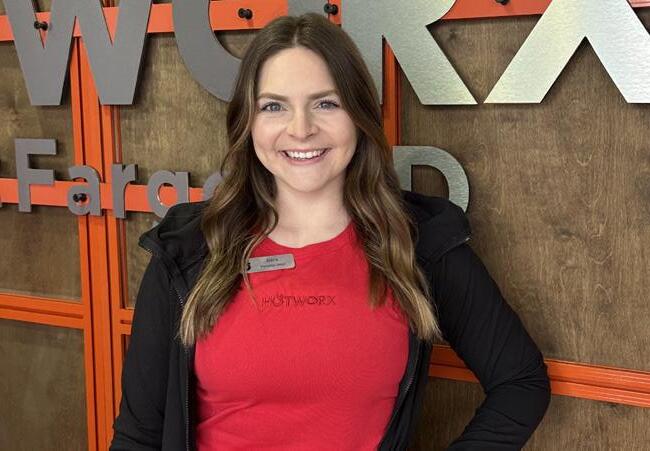
keep the boundaries because some people who come in here are very ill, and some people we honestly have to turn away. We can’t stretch someone who’s pregnant or someone who has a certain illness. They probably need more of a healthcare professional. We’re wellness professionals.”
For franchisees operating in the health and wellness sphere, it’s also important to find employees with the right attitude. They need to be attentive to details and client needs.
“No one wants to come in and get stretched for 30 minutes by someone who doesn’t have a decent personality, isn’t energetic, and doesn’t have passion for what they’re doing. You lose clients pretty quickly if you don’t have those three elements,” Hartwell says. “The No. 1 thing I look for in any employee I bring on is that they want to help people. If they don’t want to help people, I generally don’t move forward with them because I think that’s the root of it.”
Stories of transformation
Sierra Rohr was a recent college graduate headed toward a career in early childhood education when an injury changed her trajectory.
Involved in sports for her whole life, she played volleyball at Bismarck State College in North Dakota and was a fitness enthusiast. In a freak accident, she ended up with an exposed Achilles tendon.
“That was a big life change for me, going from being so active to pretty much lying in bed to recovering,” Rohr says. “Then after, it was just so painful to even walk. I ended up having surgery on it to alleviate some pain.”
Following months of physical therapy, she was medically cleared for hot yoga. She ultimately discovered Hotworx, which uses saunas that not only heat the air, but also emit infrared wavelengths of light, warming the body from within and inducing sweat. Touted benefits include pain relief, improved circulation, and reduced stress.
“Within three workouts, I could just feel that infrared aiding in my recovery,” Rohr says.
In 2021, Rohr, her mother, Tori, and her aunt, Nicole Privratsky, got licenses to open three Hotworx studios in North Dakota. If it helped Sierra, they decided, it could help others.
“One of the rewards of being a Hotworx franchisee is hearing from members about
Sierra Rohr
We
are changing people’s lives in some cases from someone with a sore neck, a sore back, a crick in their side, or whatever.
We deliver a great, tangible experience, and it’s really rewarding."
transformations,” Rohr says. “It’s getting to hear those stories through being at the studio: people sharing on their social media and not just at our home location. It’s hearing from other people in the world who have their lives transformed as well, maybe in similar or different ways than I have. That’s been the biggest blessing of being a franchisee.”
Two of her family’s studios are open in Bismarck and West Fargo, and the third is in the works.
Rohr’s career switch was well timed. According to McKinsey & Company, a global management consulting firm that conducts surveys on consumer behavior, 82% of U.S. consumers in 2024 considered personal health and well-being a top priority in their everyday lives.
A big draw for Hotworx is that the studios offer 24/7 access. People with busy lives can go to the virtually instructed studios for the hot yoga that Rohr found so beneficial. Studios also offer hot Pilates, a hot core regimen, hot cycle, and other workouts.
There are options “for wherever a person is in their fitness journey and whatever they’re wanting to get out of that,” Rohr says. “No two stories are the same. You never know if it’s going to be somebody looking for the mental benefits of Hotworx or the physical benefits of Hotworx. We’ve heard stories all over the board as far as what the infrared aided in: maybe somebody’s recovery, maybe they’re just looking for an escape to have their ‘me time.’ We get to be that space for people no matter who they are and what their journey is.”
Numbers speak loudly
Aaron Katzoff didn’t find his way to Spavia Day Spa through a personal experience with the franchise; he was driven by data. Katzoff was looking for a career change after spending 25 years in employee benefits marketing and sales. He analyzed the numbers of various franchisors and was struck by what he found.
“Financially, wellness is one of the fastest growing industries in the country if not the world,” Katzoff says. “It’s all about taking care of yourself, which ties directly into overall health from spa services to skin care and hand care. And for younger generations, it’s an even bigger priority.”
Katzoff and his wife, Danielle, chose Spavia because they like the wide array of services offered with an emphasis on pampering. They were also impressed by the franchise founders, Marty and Allison Langenderfer, who were interested in finding franchisees who would be involved in the community and charitable causes.
“They blew me away. They’re not just looking to build a company. There’s a mission behind it,” Katzoff says. “There’s a big focus on giving back to the community. The more you give back, the more you get. It’s a very simple, pleasant concept: What you give, you get. That was always a very attractive concept to me.”
Spavia, founded in 2005, has 60 locations in 23 states and a goal of reaching 200 in the next decade.
The Katzoffs opened their first spa in Moorestown, New Jersey, more than 10 years ago, becoming the seventh franchise operation in the Spavia system. Another two Connecticut locations in Guilford and Stamford followed, and there’s one in Boca Raton, Florida. A fifth spa is slated for Princeton, New Jersey.
It didn’t take Katzoff long to see that providing massages, facials, and body wraps is different from most businesses.

Multi-Unit Franchisees
Spavia Day Spa
“It’s the only business I’ve ever been in or been exposed to where, when someone walks through the door, they may be a little grumpy. They may be upset, but when they walk out of the door, 99% of the time, they’re just a changed person. They kind of float out into the lobby, and it is almost always with a smile and a ‘Thank you so much,’” he says. “We are changing people’s lives in some cases from someone with a sore neck, a sore back, a crick in their side, or whatever. We deliver a great, tangible experience, and it’s really rewarding.”
The success of the Katzoffs’ locations depends on solid financial decisions and good hiring decisions. The brand tries to differentiate itself by giving guests the same level of service that can be found at a resort spa but at an affordable price.
“To be a successful specialist, meaning a massage therapist or an esthetician, you have to have at least the right mindset: that you want to help people feel good,” Katzoff says.
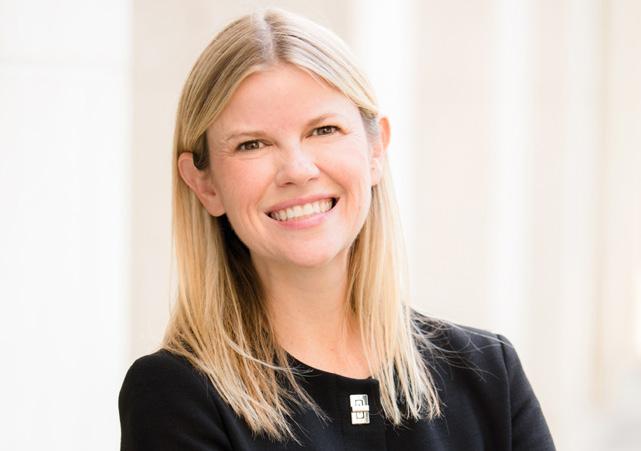
And, of course, their specialists must have received all the required training.
“We just really can’t hire anybody off the street,” Danielle Katzoff says. “So, if someone comes in and says, ‘I want to do massages,’ we’d say, ‘Well, you can’t. You need to be licensed by the state.’ Or if they say, ‘I want to do facials. I think I’d be a really good esthetician,’ we tell them, ‘You need to go to school for that.’ They need to have a certain number of hours in training. They need to pass the state boards. They need to pass background checks. They need to be fingerprinted in certain states. We’re looking for certain licensed specialists who have met the requirements.”
The Katzoffs were required to apply for a cosmetology license and a massage license not so that they could give hands-on services, but so they could oversee the operation. They also had to undergo criminal background checks. Those are important requirements in a burgeoning industry.
“Self-care is very popular,” Danielle Katzoff says. “With our generation—we’re pushing 60—many are caring for other people. But the younger generation, they realize that you need to care for yourself.”
Aging well
A holistic approach to living is as important at 70 as it is at 30. And it doesn’t just involve physical health. Mental and emotional health are integral to well-being.
Comfort Keepers’ 206 franchisees know this, and it’s a large part of what attracts them to the company’s mission to provide top-quality, in-home personal and companion care to seniors, says company CEO Natalie Black.
“We are very much focused on elevating the human spirit,” Black says. “What you’ll hear a lot with home care in general is the mission to keep people safe at home, and that is obviously incredibly close to us as well. But we don’t stop there. We go one step further. We focus on joy and making sure that people aren’t just staying home and safe, but they’re home, they’re safe, and they’re enjoying their lives throughout their lives. Joy and happiness do not stop when they become seniors.”
More than 4.1 million Americans will turn 65 this year and every year through 2027, a historic
Aaron & Danielle Katzoff
Natalie Black CEO
Comfort Keepers






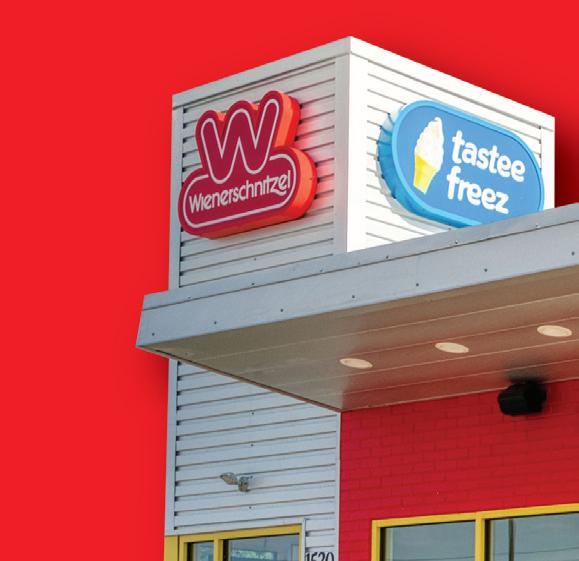
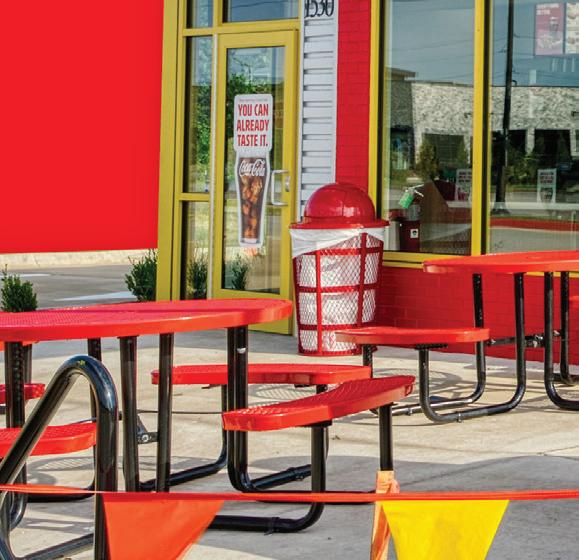
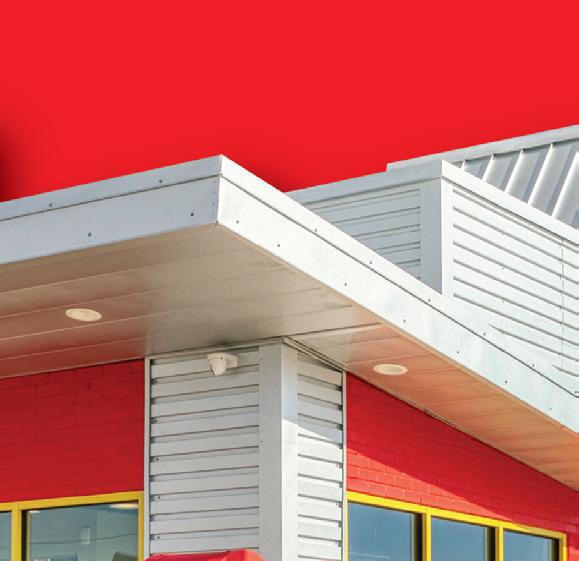





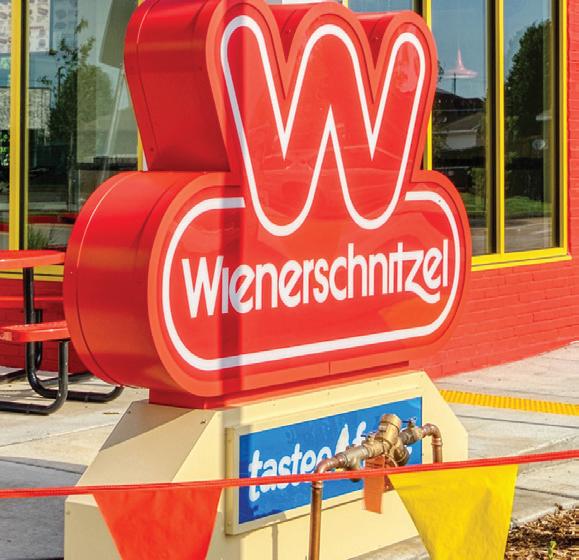








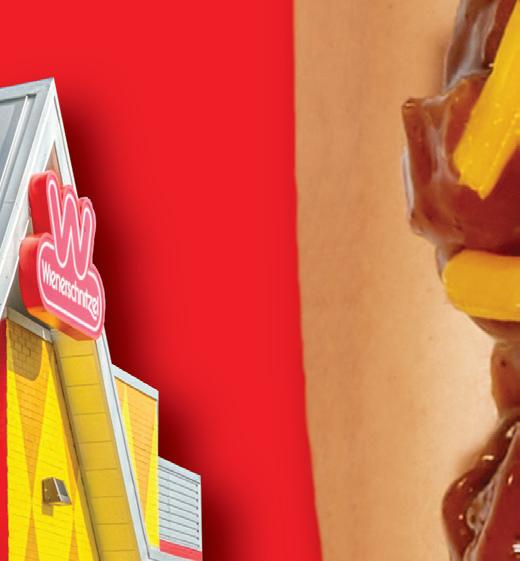



surge in the age of the population, according to a report from the nonprofit Alliance for Lifetime Income. By 2030, all Baby Boomers will be older than 65.
The demand for at-home care will keep growing, and Comfort Keepers plans to keep growing, Black says.
“Statistically, almost 80% of people would like to stay and age at home. So, it’s just a matter of whether it’s possible for everyone,” she says.
According to Black, the company helps to make that possible by providing a range of services, “whether that is they need a little bit of assistance just to make sure that they’ve gotten dressed, they’ve eaten their food, or making sure they’ve bathed. Sometimes, we have clients where it’s more about social companionship and the mental health piece of it, making sure that they maintain companionship on a daily basis.”
Many Comfort Keepers franchisees have personal experience with aging loved ones who needed assistance.
“It’s a unique combination of people who are focused on growing a business but who also are focused on doing something good for their community,” Black says. “Many of them have experienced in-home care. It’s touched them in some way, and so they have a calling to it.”
To be successful, franchisees must be driven by a desire to help others. They must build a caring team
that’s focused on the same thing because “if people don’t have the heart for it, it’s really a difficult job to do,” Black says.
It can be hard for franchisees to find the right employees. Black says, “There are some incredible people out there who have the heart to want to take care of other people, and it is our goal to find the people who have that heart and that calling to healthcare and then to provide them all the resources that we can so that Comfort Keepers is a good place for them to work.”
The health and wellness sector is booming right now for a good reason, she says.
“There’s been a shift when it comes to health and wellness and aging in the country. Americans are redefining what it means to age, so we’re seeing a greater emphasis on proactive and preventative care for all generations,” she says. “Health is no longer just about treating illness. It’s about living well. For us at Comfort Keepers, we always believe that aging doesn’t mean giving up independence or quality of life. The overall shift in the U.S. is focused on that well-being, and we made sure that we’re positioned to address it.”
THE HEALTH AND WELLNESS ADVANTAGE
The following factors make the health and wellness franchise sector an attractive option for potential business owners:
GROWING MARKET DEMAND
• The health and wellness industry is expanding rapidly, driven by increasing consumer awareness of health issues and a focus on preventive care.
• Trends indicate a rise in demand for fitness, nutrition, mental health, and holistic wellness services.
ESTABLISHED BUSINESS MODEL
Franchises provide a proven business model, reducing the risks associated with starting a new venture. Franchisees benefit from established brand recognition, operational support, and marketing strategies.
SUPPORT AND TRAINING
• Franchisors typically offer comprehensive training programs, helping franchisees understand the business and industry standards.
• Ongoing support includes operational guidance, marketing assistance, and access to a network of fellow franchisees.
DIVERSE OPPORTUNITIES
• The health and wellness sector includes various niches, such as gyms, wellness centers, nutrition franchises, and health food stores, allowing for diverse investment options.
• Franchisees can choose a model that aligns with their interests and market needs.
POTENTIAL FOR PROFITABILITY
• Many health and wellness franchises report strong financial performance with opportunities for recurring revenue through memberships and services.
• The focus on health can lead to customer loyalty and repeat business.
COMMUNITY IMPACT
Franchising in this sector allows entrepreneurs to contribute positively to their communities by promoting healthy lifestyles and wellness practices.

(All stores... not just the top quartile) 8-hour

(For area development agreement signed by 12/31/25)
2nd gen restaurant sites welcome
PICKING PRIVATE EQUITY PARTNERS

Written by M. SCOTT MORRIS
Thanks to private equity (PE), Matt Buckwalter finally gets to use the psychology degree he earned in college.
A few years ago, he bought out his partner and proceeded to grow Punctual Pros, which includes One Hour Heating & Air Conditioning, Benjamin Franklin Plumbing, and Mister Sparky. Buckwalter expanded the company to cover 17 territories and 230 ZIP codes in Pennsylvania.
He had plans to grow beyond his state’s borders and wanted more opportunities for his management team while taking some of his risk off the table. He also wanted to achieve his vision for what Punctual Pros could become.
In addition to relying on his 25 years of business experience, Buckwalter worked with attorneys, accountants, and other advisors to prepare his business for sale. He then connected with Boxwood Partners, an investment bank that created a comprehensive overview of Punctual Pros and got the word out to interested parties.
“I think we initially started with, believe it or not, about 80 firms and got it down to about eight,” Buckwalter says, “and then ended up settling on Broad Sky Partners. It was about an eight-month process.”
While his brother serves as president and operates the business, Buckwalter puts that psychology degree to work to fulfill the plan that led him to private equity.
“I work with the acquisition process, which is mostly the relationships. I own the relationships with the other business owners that would be looking to sell to our platform,” he says. “That’s where most of my time is spent: going out, sourcing deals, meeting people, taking them along through the process, and then ultimately getting the deal closed.”
Private equity firms have discovered plenty to like about franchising. While there’s always risk in business, a reliable and repeatable playbook from a strong brand can improve the odds for a successful venture. As proven many times over in the multi-unit era, franchises are often set up to scale.
Franchisees have also learned there are benefits to working with private equity. For multi-unit franchisees who share Buckwalter’s goals, an injection of
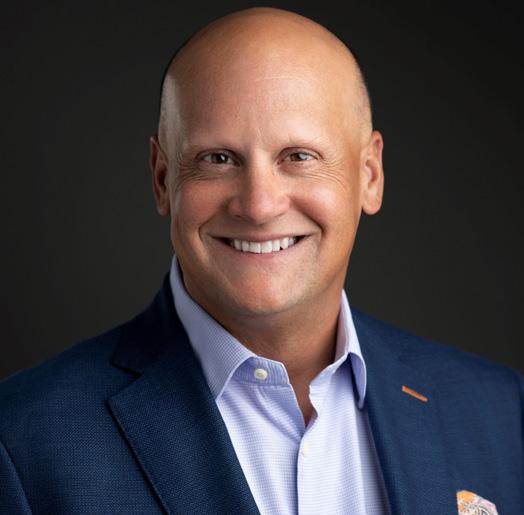

GRIFFIN GORDON FOUNDER + CEO TAURUS CAPITAL PARTNERS
capital and expertise can be the ticket to growth that would not have been possible otherwise.
The right relationship is key. Griffin Gordon is the founder and CEO of Taurus Capital Partners, a private equity firm, and a founding board member and investor with Somersault Holdings, a franchisee with The Little Gym. His advice for anyone looking to team up with private equity is to do the due diligence to ensure everyone’s expectations are in alignment before finalizing the deal.
“Focus on specifically what the vision is that a private equity firm has for your business. Think about the upsides and downsides of what might happen if you enter into a partnership,” Giffin says. “I would be very focused on trying to get all of your questions answered in a way that gives you comfort.”
Money is a powerful motivator, but Gordon says it’s important to find a team that understands your values and goals.
“Be very thoughtful and clear-eyed about what your intentions are and what you’re looking for because I think what you’ll find is there will be people who probably flash some pretty gaudy numbers in front of you,” he says. “At the end of the day, that may or may not be what you need. What’s most important is what you’re trying to achieve.”
TIME HORIZON
When private equity is involved, there’s often a ticking clock leading to a sale or recapitalization. Depending on market conditions, private equity deals often have a five to seven-year timeline, but that’s not always the case.
Gordon learned about The Little Gym because his eldest daughter was taking classes.
“I was very familiar with the concept and the value proposition,” he says. “That sort of sparked a deeper commitment.”
While some might say, “That’s an interesting business,” and then move on with their lives, Gordon took things to the next level after learning that a group of owners was selling locations.
“I had an opportunity to look deeper into Little Gym and get to know the owners who had grown seven wonderful locations in the Carolinas,” he says. “That’s really how I got more familiar with the business model and franchisee life in general.”
Under the Somersault Holdings umbrella, there are currently 22 locations, and Gordon’s not sure when he might sell them. There’s not a strict timeline. For now, he respects the business model, has a solid team in place, and continues to reinvest profits into the business.
“There are all sorts of flavors of private equity, right? Taurus is designed to be more of a longer-term orientation,” he says. “We’ll think about liquidity, whether that’s a partial sale or a full sale, because our investors want returns at some point, but we’ve got a tremendous opportunity, so we’re not in any rush.”
When Buckwalter sold 80% of his business to Broad Sky Partners, he joined the team. He attends board meetings and helps steer the organization. It’s no longer an us-and-them situation.
“Whether we roll up the equity again or sell it to a different firm, that’s yet to be determined and probably predicated on market conditions,” Buckwalter says. “The plan is to sell. I’m a partner in that.” And what’s the timeline?
“That transaction will probably happen at its natural time,” he says.
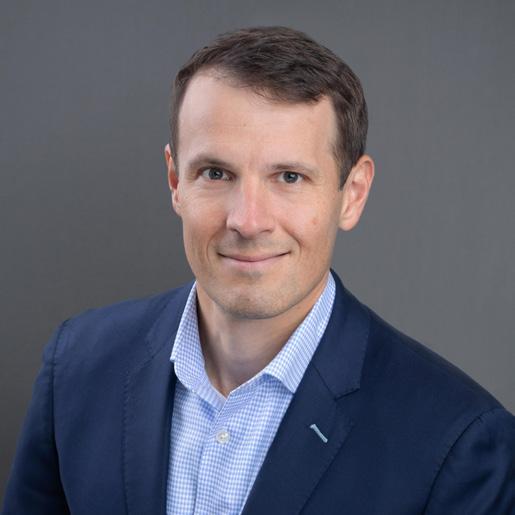
FRANCHISING’S ALLURE
Erik Herrmann is a partner and head of the investment group at CapitalSpring, which was founded in 2005. Over the years, CapitalSpring has worked with more than 100 founder-led businesses and injected more than $3.7 billion into them.
“The original founders grew out of more generalist private equity investing and kind of stumbled into the franchising space,” Herrmann says. “A friend of theirs was looking to raise money to buy a restaurant business. They identified what was a really large market and one that was underserved in terms of alternative capital.”
The franchising business model works for a variety of industries that are thoroughly woven into the U.S. economy. Restaurants, gyms, and service companies perform different roles, but they can all be franchised and scaled. Growth is built into the model, especially in the era of multi-unit ownership.
ERIK HERRMANN
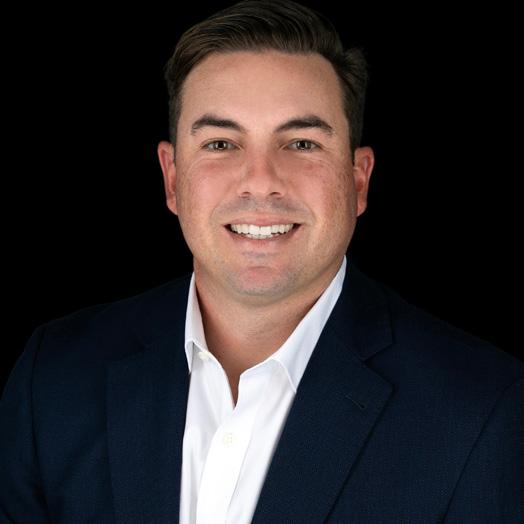
BRIAN ALAS MANAGING DIRECTOR
BOXWOOD PARTNERS
“It’s big. It’s growing. We see trends toward franchise businesses growing at the expense of nonfranchise businesses. We’re seeing market share move in that direction. There’s a lot of consolidation happening within franchising,” Herrmann says. “All that needs capital to support it. That creates a lot of business opportunities for firms like ours. We like the fact that it’s easy to invest in Main Street America while having the benefit of a proven tool kit.”
CapitalSpring doesn’t limit itself to franchising, but the business model checks a lot of boxes. Franchises are often customer-facing businesses, which the company appreciates. When compared to a nonfranchise startup company, franchises have battle-tested playbooks that have been tried in different locations and territories. Risk can’t be eliminated in business, but risk reduction is a point in franchising’s favor.
Brand names also have power, and consumers know what they like. The profitability of individual operators may vary, but overall, a strong brand that does well in its category attracts and retains customers.
“Investors are going to be looking at any business and saying, ‘What can I do with it? How can I build value? How can I grow it?’ You want to be able to tell a story,” Herrmann says. “You want to see all those possibilities and all that potential.”
Brian Alas, managing director at Boxwood Partners, helped connect Buckwalter with his eventual partners at Broad Sky. He’s another believer in franchising’s brand power. Private equity firms are attracted for some of the same reasons that franchisees go through the development process and sign on the dotted line.
“They get a chance to buy into and own some of the best brands in the world of franchising,” Alas says. “When private equity is involved, they want to really understand the franchise as well as the multiunit franchisee they’re working with.”
The franchisees are another draw for private equity. While firms can help operators, they’re often not operators themselves. As CEO of Punctual Pros, Buckwalter brought his knowledge and experience to the deal. Founders and CEOs who built their businesses have vital roles to play as organizations continue to expand their reach.
“I always said that PE folks, for the most part, are not operators, right?” Alas says. “They’re not Buckwalters.”
PRIVATE EQUITY ADVANTAGE
When profiled in the Q4 2024 issue of Multi-Unit Franchisee magazine, Luke Andrus said, “We structure our company like a PE group. I can see us landing there in the future.” He’s the CEO of Blue Star Investments, which owns 57 Anytime Fitness locations, and he’d like for that number to increase rapidly someday.
“We place a heavy emphasis on EBITDA and exit strategy,” Andrus says. “I think that if the right offer came along and we trusted our partners, we would be willing to do it. And we don’t say ‘sell.’ We say ‘recapitalize.’”
Blue Star Investments began with this eventual recapitalization in mind. While there’s no defined timeline, Andrus says the way to get from 60 locations to 160 is to team up with private equity investors.
Andrus referred to lessons he learned while reading What It Takes by Stephen Schwarzman, chairman and CEO of the Blackstone Group, a global private equity firm. Private equity investments make it possible to take bigger swings than otherwise possible, Andrus says.
“The idea is I might be using other people’s money to buy these locations that will then be paid off by the business,” he says. “The larger I get, the more market share I have, and the more valuable I am.”
Of course, there are no guarantees, and just as the risk goes up when dealing with an emerging franchise, a new private equity group might not have the same experience as an established firm.
“They also have to make nice with Anytime Fitness, right?” he says. “They have an extra hoop to jump through, but anybody who’s worth their salt can.”
While Blue Star Investments isn’t ready to make a change yet, Andrus and his team have had conversations with multiple private equity groups, so relationships already exist. “Anytime Fitness would approve them,” he says.
Partnering with private equity goes beyond cash infusions. On its website, CapitalSpring lists some of the value it provides, including helping with acquisitions, networking, marketing, operations, technology, and vendors. Herrmann says his company’s processes have been tweaked and refined over the years to fuel efficient growth.
“You can’t manage through brute force once you get to a certain size, right? Have you made those investments in terms of processes and people and systems and that sort of stuff?” he says. “These growing pains are kind of inevitable as you scale a multi-site business. You can’t be in 800 places at the same time, so have you made those investments?”
Gordon with Taurus Capital and Somersault Holdings says it’s a balancing act to provide partners with both support and space. When CEOs
and owners sell their companies, they still have the talents, skills, and drive that led them to grow their businesses in the first place.
“When they join us, we need to give them adequate space and room to go do what they do every day and not get in the way,” he says, “but I do think there are specific areas where we can be directly helpful.”
Gordon and his team can assist with marketing, acquisitions, and a host of tactics and strategies to assist when expanding a business.
“We tend to be pretty operationally hands-on,” he says. “We’re here to roll up our sleeves and be helpful, and I think that’s probably different than institutional private equity.”

GETTING READY
If Buckwalter could’ve reached his goals by himself, he probably would’ve done it, but he needed an influx of capital to go beyond Pennsylvania’s borders.
Alas says that the comprehensive overview of Punctual Pros included breakdowns of operational improvements the company was working on as well as growth opportunities for each of the three home services franchises.
“We do a deep dive on all that so that people know what to expect,” Alas says. “You’re matching these puzzle pieces together.”
In Buckwalter’s case, the opportunity was marketed to about 80 firms, making it possible to cast a wide net and attract the right partner.
“We always try to do what we did with Matt, which is to start where he was and work backwards,” Alas says. “You ask, ‘What do you want? What does the ideal transaction look like? How much longer do you want to run this business? How much do you want to stay involved? What are the opportunities that you think you could go after with a private equity partner that you can’t do by yourself?’”
Answers to those questions shape the outreach and marketing process to make sure the client is getting what they’re looking for and goals align.
“Matt was one of the most sophisticated clients we’ve had and had done a lot of the preplanning,” Alas says. “He was very thoughtful about how he was building his business. That absolutely gave us a leg up
LUKE ANDRUS CEO BLUE STAR INVESTMENTS
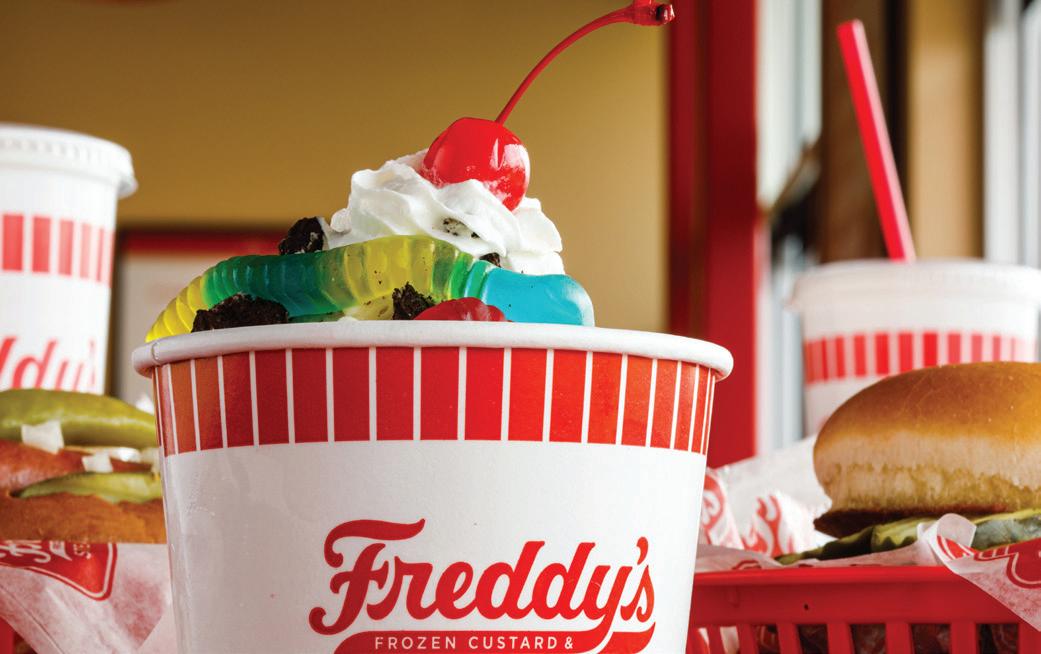
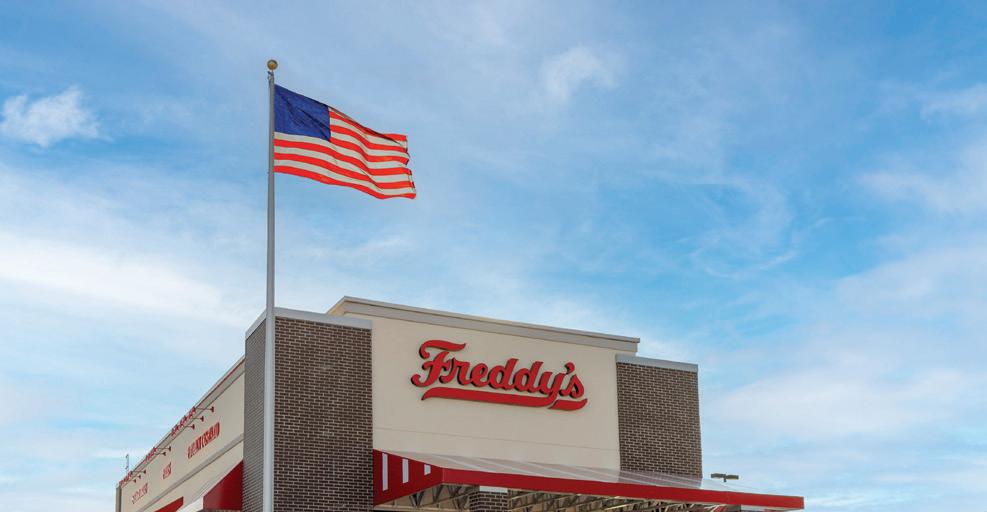




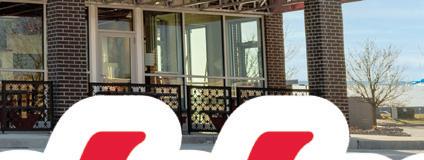



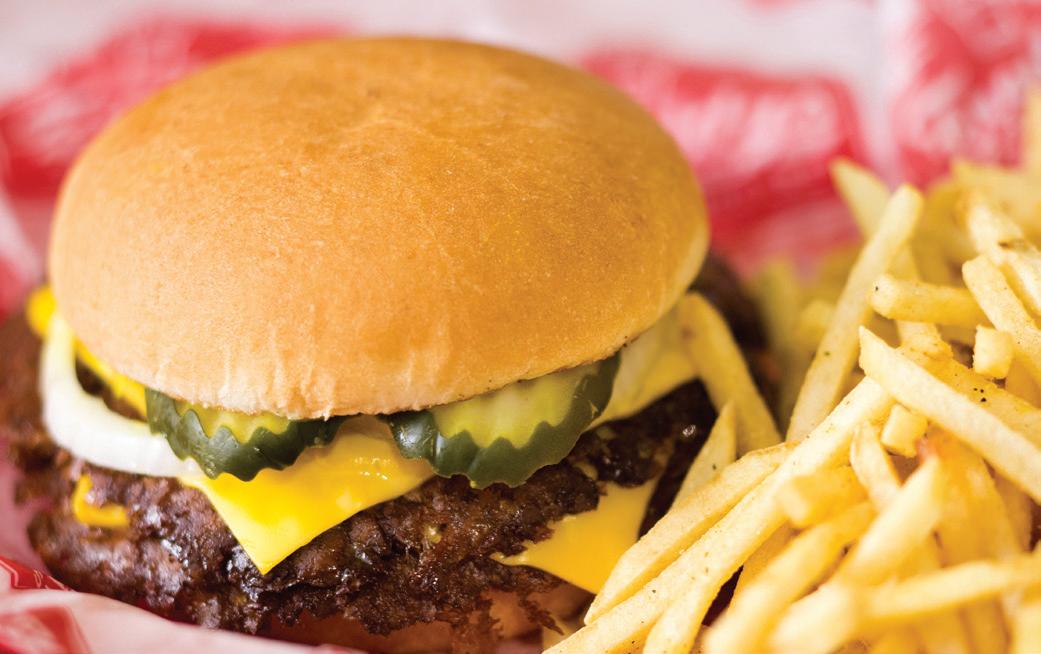







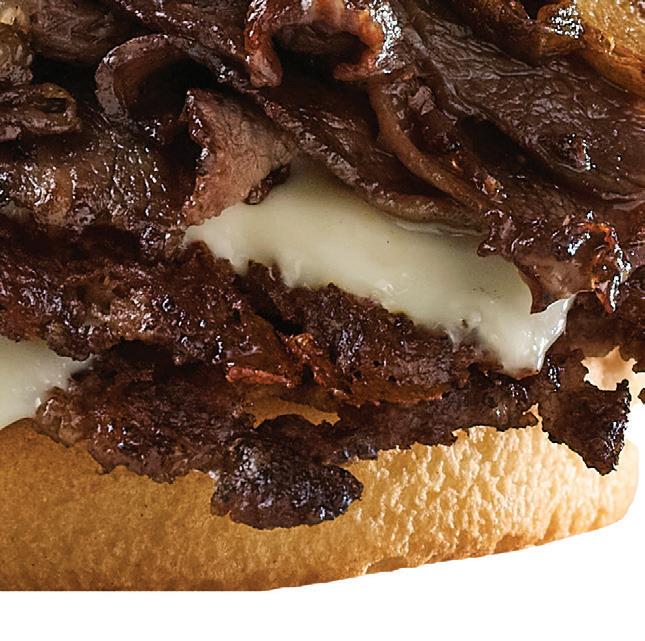

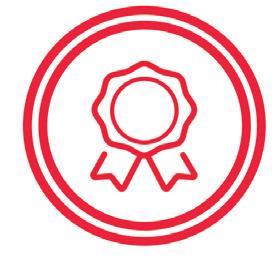
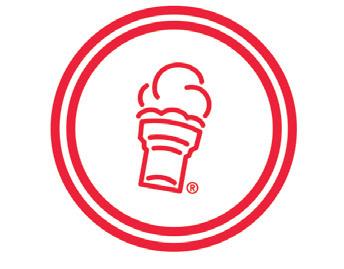
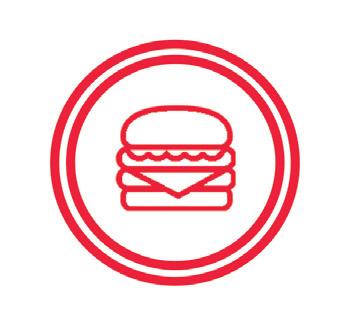
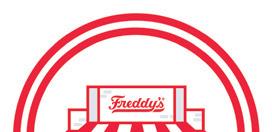
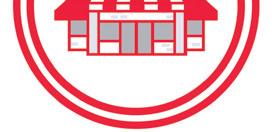
Private Equity Partners
in the process. It was probably smoother than other deals. Do I think that Matt got a better multiple because of who Matt is and what he did to prepare? I absolutely do.”
While some multi-unit franchisees prepare for years to get their business ready for a deal, others bump into someone at a conference, start talking, and set things in motion. Herrmann says CapitalSpring has worked deals with both types of owners.
He added that involving an investment bank can cause deals to take longer than a deal sparked by a conversation between an owner and his team. He says that investing in the business before a sale can increase value, but sometimes, the presale work can paper over issues that need to be addressed.
“We take it all in stride,” he says. “We’re not afraid to roll up our sleeves and help build out the infrastructure of the business. That’s really what you’re talking about.”
THE FINAL WORD: ALIGNMENT
Private equity has money to invest. For a franchisee looking to take growth into the stratosphere, the right investors can jump-start the process. No matter how parties reach a deal, everyone involved needs to understand and communicate their positions. Alas says the goal isn’t to attract an investor; it’s to attract the right investor.
“It’s got to be comfortable,” he says. “Culture is a big part of it. You need to be aligned.”
PRIVATE EQUITY MEETS FRANCHISING: WHAT TO KNOW
Turning to private equity can offer significant advantages for franchisees seeking to accelerate growth, reduce their risk, and achieve ambitious expansion goals:
• More capital, bigger moves. Private equity investment has accelerated growth, real estate acquisitions, and multi-brand portfolio expansion across the franchise world.
• Holding periods matter. Investment groups often look at five to seven-year timelines, planning their exits as strategically as their entries.
• Growth through partnerships. New capital allows franchisees to take on projects that once seemed out of reach—from development deals to multi-unit purchases.
• Brand fit is everything. Investors favor scalable systems with clear ROI potential, strong unit economics, and built-in customer bases.
• Culture vs. control. While capital can unlock growth, maintaining cultural alignment is crucial for investors and franchisees.

RECAPITALIZATION
For franchisees who need an injection of capital to grow, private equity firms are ready and waiting as long as everyone’s goals align:
• “We saw an opportunity to grow our business, and I felt like it was the right time to partner with Broad Sky Partners. I ran a process and then ended up with them and specifically around the desire to grow our footprint, to create opportunities for our management team, to take some risk off the table, and more importantly, to continue to grow and fulfill a vision that I had.”
—Matt Buckwalter, CEO of Punctual Pros
• “Alignment is important. If you’re a founder, you’re signing up to, typically, a five to seven-year partnership with standard private equity. You’re giving up control of your business, and it’s with someone you’ve never worked with before. Inherently, that can cause some issues down the line. I don’t think it means anyone has bad intentions, but there can be adverse consequences if you’re not aligned on the front end.”
—Griffin Gordon, founding board member of Somersault Holdings (The Little Gym multiunit franchisee) and founder/CEO of Taurus Capital Partners
• “Most of the consolidation is coming from people who have done it for 30 years or 40 years. They want to punch out and retire, right? That’s a powerful force in franchising overall. As a firm, we exist to fuel that.”
—Erik Herrmann, partner and head of the investment group at CapitalSpring
• “We’ll put together marketing materials that can span anywhere from 50 to 75 slides about the growth opportunities, the financial profile, customer demographics, and business KPIs. It’s a very involved process.”
—Brian Alas, managing director of Boxwood Partners, an investment bank
• “The beauty of franchising is it’s scalable, right? Firstly, the model is proven, and secondly, the model is scalable. It already works.”
—Luke Andrus, CEO of Blue Star Investments (Anytime Fitness multi-unit franchisee)



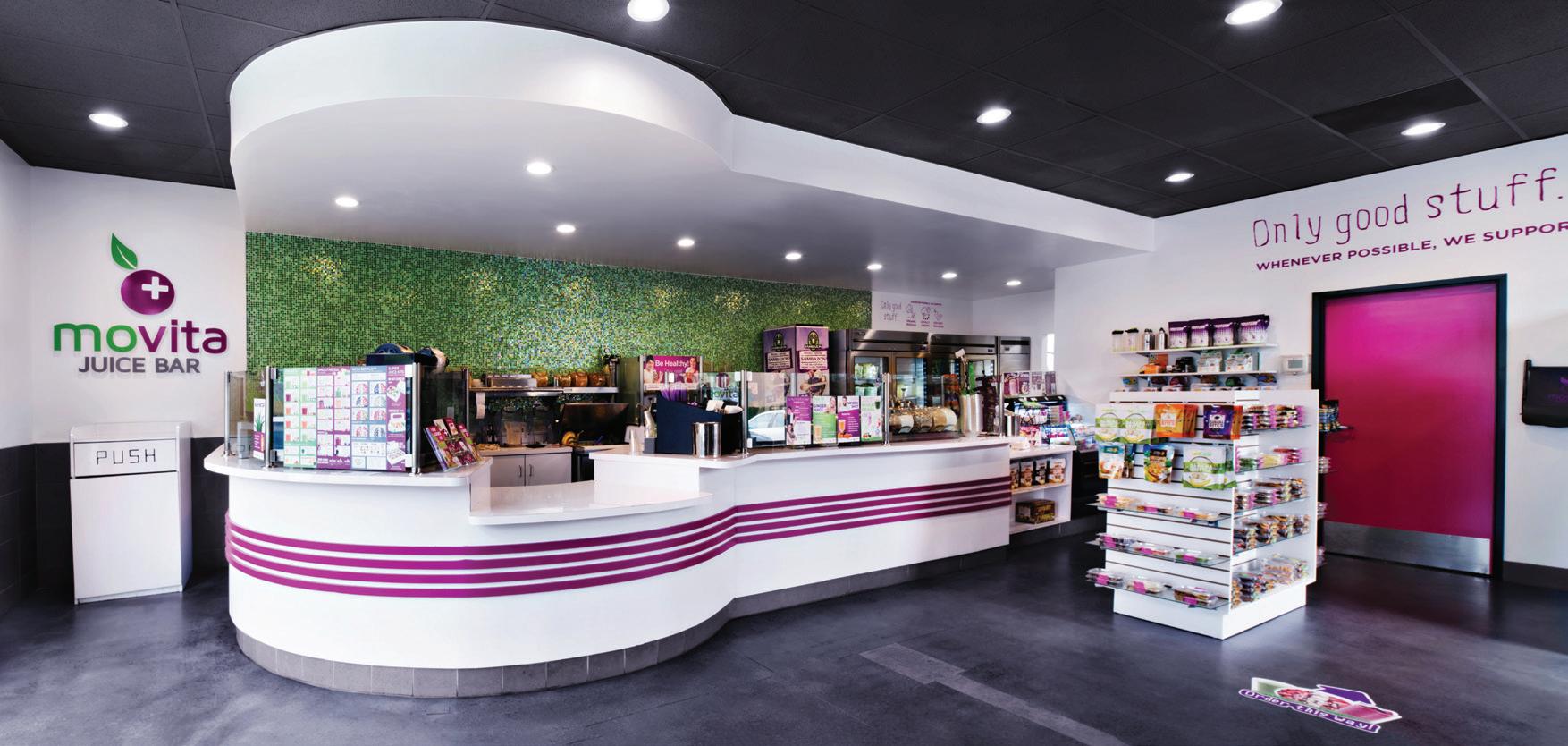




SAY WHAT YOU MEAN
Difficult conversations require intentional communication
Written by NICHOLE HOLLES
Maintaining strong relationships with team members, even during difficult conversations, is key to business success. Good leaders know that ignoring tough subjects causes them to fester, so the best way forward is to become more comfortable with having uncomfortable conversations.
Fear and predictability
No matter how developed we are, humans are still animals. Our brains are wired to protect us from harm, and when there is uncertainty, we begin to prepare for all of the possible what-ifs. But when we understand the potential negative outcomes, we can begin to prepare for them. An honest approach is evolutionarily sound.
Our brains follow this same path in professional scenarios. Without clarity, they seek to understand what may be wrong or could go wrong, which can lead to lost time and energy spent contemplating negative outcomes that never happen. Transparency, even when it may feel uncomfortable, provides predictability and can alleviate this fear.
Direct feedback
Providing straightforward feedback can reduce questions and set clear expectations for staff members, but it’s not easy. It helps to have a process in place. Here are some ways to make difficult conversations less stressful for everyone involved:
• Think about your motive. Do you want to have this conversation for the betterment of the team member or the organization at large, or are you just looking for an opportunity to say, “I’m right”?
• Leverage self-talk. Even if you know that having the conversation is the right thing to do, it can be difficult. Remind yourself that your intent is good, and remember that people want feedback.
• State your intent early. It is often helpful to begin with clarity. You might say something like, “I want to have this conversation because I think it will help us improve,” or “I see myself in you a bit. I want to share some guidance that someone once gave me that was valuable for my development.” Be clear about the fact that your goal is to be supportive, not punitive.
• Focus on “I” statements. Say things like “I noticed,” “I felt,” and “I think” throughout the conversation.
• Avoid “you” statements. Phrases like “you always” or “you never” can feel accusatory and prompt the receiver to shut down. Remember to frame the conversation around behaviors, not personal attributes, to avoid the feeling of a personal attack.
This framework is useful in almost any situation when clear, direct communication is necessary. The same strategies apply in higher-stakes conversations, but there are a few more steps to take to ensure the discussion goes as smoothly as possible.

When something must change, you should:
• Acknowledge the seriousness of the conversation. Say something like, “This is going to be a hard conversation,” or “This might be difficult to hear, but it’s important.”
• Be direct. Throughout the conversation, be clear. Do not use euphemisms or sugarcoat anything. Start by stating the issue clearly and directly.
• Explain the impact. Sharing the motivation behind the conversation can be helpful and often provides valuable context for team members looking to do better. For example, let the person know if you must have the conversation because there is a current risk to the business or a safety issue for a client.
• Be specific about what must change. Make it clear that what is currently happening cannot continue. Then provide a clear alternative or solution to guide them.
• Be transparent about consequences. Share what needs to change, and share what may happen if there are no changes.
Centering kindness
While many people are nice in professional situations, this isn’t always the best approach. I’ve heard people express concern about this, noting things like, “Everyone is so nice, but I don’t feel like I’m getting any real feedback.”
Being nice is often a surface-level attribute. There’s nothing wrong with it, but being nice does not have the same impact as being kind. Often, the kind thing to do is to broach the tough subject and have the difficult conversation that will lead to professional and organizational growth that benefits everyone. Being hyperfocused on being nice can hold people back from saying what needs to be said.
Being direct, even when it’s uncomfortable, is one of the kindest things you can do as a leader. It shows respect for the other person’s growth, trust in their ability to receive and apply feedback, and a commitment to clarity and long-term success. Direct feedback, when delivered with care, isn’t harsh; it’s a powerful form of kindness.
Nichole Holles, PHR/SHRM, is the senior vice president of people strategy and governance at Right at Home. She has a deep passion for transforming HR departments into strategic business partners and enhancing employee experiences.

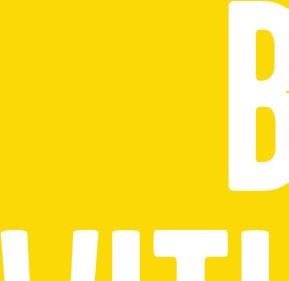
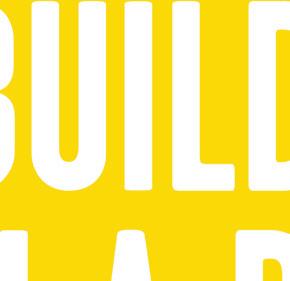



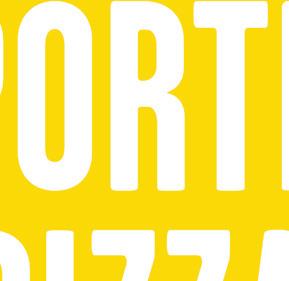

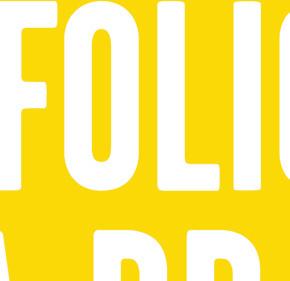


Signs of the Times
Keep you customer communications friendly
Written by JOHN DIJULIUS

Management’s paranoia that customers are out to take advantage of them is one of the most significant contributors to the customer service crisis. Companies create and enforce policies rather than creating positive customer experiences. Why do so many companies’ agreements and policies sound angry? You should be friendly to your customers in every way you communicate.
Negative cues
Medical practices are the leaders in negative cues. I checked in for a doctor’s appointment, and the receptionist said, “We need to verify your information.” “Verify” makes me feel like they don’t believe who I am. “May we update your information?” works better and accomplishes the same end goal.
Another example is when a doctor sees a patient and a nurse enters the room and says, “Your 10:30 is here,” or “You have a call on line two.” The patient becomes convinced the doctor is rushing and more concerned with other priorities. Some medical practices have created verbal and nonverbal codes to inform the doctor without the patient realizing it.
Rule to remember: Don’t punish 100% of your customers for what you are afraid 2% might try to do.
Common issues
Signage has the highest occurrence of negative cues. I have taken many pictures of crazy negative signs. What businesses put on signs amazes me. Let’s start with the most common negative signage: “We charge $20 for all returned checks,” and “We are not responsible for lost or stolen merchandise.”
The “Employees must wash hands” sign appears in the restrooms of restaurants that customers use. I used the restroom at one fast-food place to find that they had four of these signs up: One above the sink, one above the soap dispenser, one above the paper towel dispenser, and one on the inside of the door. It made me think that the establishment must have an employee sanitation problem if they needed to decorate the entire bathroom with these signs. I chose to eat somewhere else.
I understand that posting this sign is required for most restaurants, but everything can be reworded. I saw a sign in a restaurant restroom that said it this way: “Cleanliness is important to us. We wash our hands before leaving.” This is so much better.
Opposite approaches
On the register of one retailer, I read a sign that said, “We will not wait on you if you are on your cell phone while at the counter.” The business that displays this sign is frustrated and wants to teach rude and inconsiderate customers a lesson, making them ex-customers.
Brian Olson, owner of 45th Avenue Cleaners in Portland, Oregon, has taken a different approach. He displays a notepad on his counter that reads, “Don’t Hang Up!” He allows people to drop off their clothes while conveniently jotting down their names and special cleaning instructions without interrupting essential calls. Customers on their cell phones are a fact of life. He found a way to put a positive spin on it. Instead of punishing his
customers, he created a system that does not ruin their productivity. It keeps customers happy and keeps them as customers!
“No” on the door
I was speaking in Fort Worth, Texas, and stopped at one of those outdoor-lifestyle shopping centers with upscale retail stores. I walked by what appeared to be a high-end wine bar, which looked fancy. When I got to the door, I was shocked to see a sign on the door that listed nine things you could not wear along with the recommended attire to enter.
Wow! Considering this shopping center’s affluent area, I don’t know what this business was worried about. The last line was all this business needed on the door: “Business casual or business attire is suggested.” I returned to the same shopping center about a year later, and that space was vacant and for lease. Big shocker—I think the business owner was focused on the wrong things.
“Be seated”
Typically, you see a sign at the entrance of many restaurants that reads, “Please wait to be seated.” I once walked into a restaurant where I was startled to see a positive cue: “It would be our pleasure to seat you.” Just the slight tweaking of the message can dramatically impact the hospitable mood your business is setting for your customer.
“Past this point”
The truck-repair service center of TravelCenters of America had a sign, “No drivers allowed past this point,” posted on the door that separated the area where the drivers waited from where their trucks were being serviced. While this policy was needed for insurance reasons, TravelCenters realized it needed to be stated better. It now says, “For your safety, if you need anything from your truck, one of our team members would be happy to assist you.”
Think again
For the following items, think of ways you can protect yourself but say it differently:
• Website
• Verbiage
• Terminology
• Signage
• What customers see
• Agreements
• Employees’ actions
Many unnecessary rules, policies, and warnings do not need to punish the vast majority for what a small percentage may try to get away with.
John DiJulius III, author of The Customer Service Revolution, is president of The DiJulius Group, a customer service consulting firm that works with companies, such as Starbucks, Chick-fil-A, Ritz-Carlton, Nestle, PwC, Lexus, and many more. Contact him at 216-839-1430 or info@thedijuliusgroup.com.

DIVERSIFY YOUR FRANCHISE PORTFOLIO WITH BOSCH AUTO SERVICE
Bosch Auto Service is the latest innovation from Bosch — a future-focused, technologically advanced automotive repair franchise designed to meet the evolving demands of both modern vehicle technology and rising customer expectations.

Whether you’re a seasoned franchisee looking to diversify your portfolio or an early adopter with an eye for next-generation mobility, Bosch Auto Service is a rare opportunity to get in on the ground floor of a truly innovative franchise.

First, Bake the Cake Semi-absent franchisees must earn their freedom
Written by LARRY LAYTON
Many franchise concepts promise semiabsentee ownership, a business model where you collect checks, manage a manager, and stay out of the daily grind. It’s a tempting offer for those with other commitments, but here’s the truth: You can’t eat the cake until you bake it.
You’ll find semi-absent franchise concepts in several industry categories: Health & Wellness, Beauty & Personal Care, and Home and Pet Services to name a few. You haven’t inked the deal, and you can already taste the sweet rewards of semi-absentee franchise ownership, sipping coffee on your back porch while reviewing KPIs instead of managing no-shows and late deliveries.
But before you indulge, you must ask, is the cake even baked? That fantasy falls flat if you haven’t built the right foundation. Your business must be solid at its core with the right systems and people in place. Like baking a layered cake, by skipping a step, you’ll find yourself scraping batter off the floor.
Systems = recipe
Your systems better be proven, documented, and followed to the letter. If your team still calls you to ask how to log into the CRM or reorder gloves, your business is still in the mixing bowl. Technology, SOPs, and tools must be fully implemented, not aspirational.
Your head baker, your general manager, lead technician, or salon coordinator should handle the daily heat, managing the team, serving customers, tracking cash flow, and keeping everything on schedule. If you’re still doing the taste tests yourself, it’s time to delegate.
Then there’s cash flow, the business equivalent of the cake coming out clean on the toothpick test. If revenue is consistent, expenses are under control, and there’s frosting (aka profit) left over, you’re getting close.
Don’t forget the kitchen crew. Are your employees trained, dependable, and sticking around? Or is your staff turnover burning holes in your operations faster than a faulty oven? Your team needs to know their roles and be able to onboard new hires without a personal tutorial from you.
Finally, KPI dashboards and reporting rhythms are your cake timer. Get weekly check-ins, not daily surprises. Your role becomes oversight, strategy, and coaching, not apron-wearing triage. Ensure your
franchise systems are utilized and are fully integrated into your business.
Get it done
The most successful franchisees don’t grow on potential; they grow on performance and operational proof.
The desire to achieve semi-absentee leadership requires disciplined evaluation. Are you measuring the drivers of success, understanding the operational and financial signals, and achieving results through focused execution?
This five-step checklist is your investor-grade litmus test. Use it to assess whether your foundation can support sustainable, strategic expansion and semi-absent ownership without compromise.
Unit-level financial performance
If your first unit isn’t performing well, adding more units will multiply the chaos. Make sure:
• Your units are profitable and cash positive
• EBITDA margins meet or exceed the system benchmarks
• You have access to capital to avoid adding financial stress to existing units
Operational maturity and scalability
Manual chaos doesn’t scale; systems do, operating predictably without your constant presence. To be successful:
• SOPs should be documented, followed, and measured, focusing on data-driven decisions
COMMON FALSE BELIEFS
I don’t need to be involved after the initial 6 to 8-week opening.
If I follow the franchise playbook exactly, I won’t need to manage much.
I can hire a good manager and check in once a week.
The franchisor will provide marketing and operational support.
Semi-absentee means passive income.
• Communication and training, scheduling, and hiring playbooks are optimized
• Your day-to-day involvement is less than 20 hours/week in the current unit
Leadership bench strength
You scale through people. No bench equals no scale. You need:
• A trusted and capable general manager to run the operations
• Promotable team members or a manager pipeline
• A stable, positive, and replicable culture
Personal capacity
Multi-unit ownership demands leadership, not heroics. Be sure:
• You have the mental, emotional, and time bandwidth to lead growth
• Your family or support system is aligned with the business goals
• You have the skills, discipline, and technologies to lead through systems, not proximity
Financial capacity
Growth requires fuel and buffer. Ensure that:
• Funding is available without draining current units
• You have preapproval for financing or access to SBA/line of credit
• You’ve forecasted the cash reserves needed until you exceed your cash flow breakeven point, including debt service
Semi-absent success isn’t handed to you; it’s earned. Lay the foundation, lead with intention, and scale with clarity. When you bake it right, the freedom is real, and so are the results.
Larry Layton, CFE, is a member of the Profit Soup team. His insights, gained as a franchise operations executive, business coach, and business owner, bring new depth to the team. Contact him at 714-309-3773 or larry.layton@profitsoup.com.
THE REALITY
Expect to be fully involved for 12 to 18 months, building your people, processes, and performance metrics before stepping back.
Execution matters more than manuals. Your local leadership drives success.
Managers need time, training, and oversight before you step back.
Franchisors support your work; they don’t replace your effort.
Semi-absentee means strategic involvement and oversight, not no involvement.

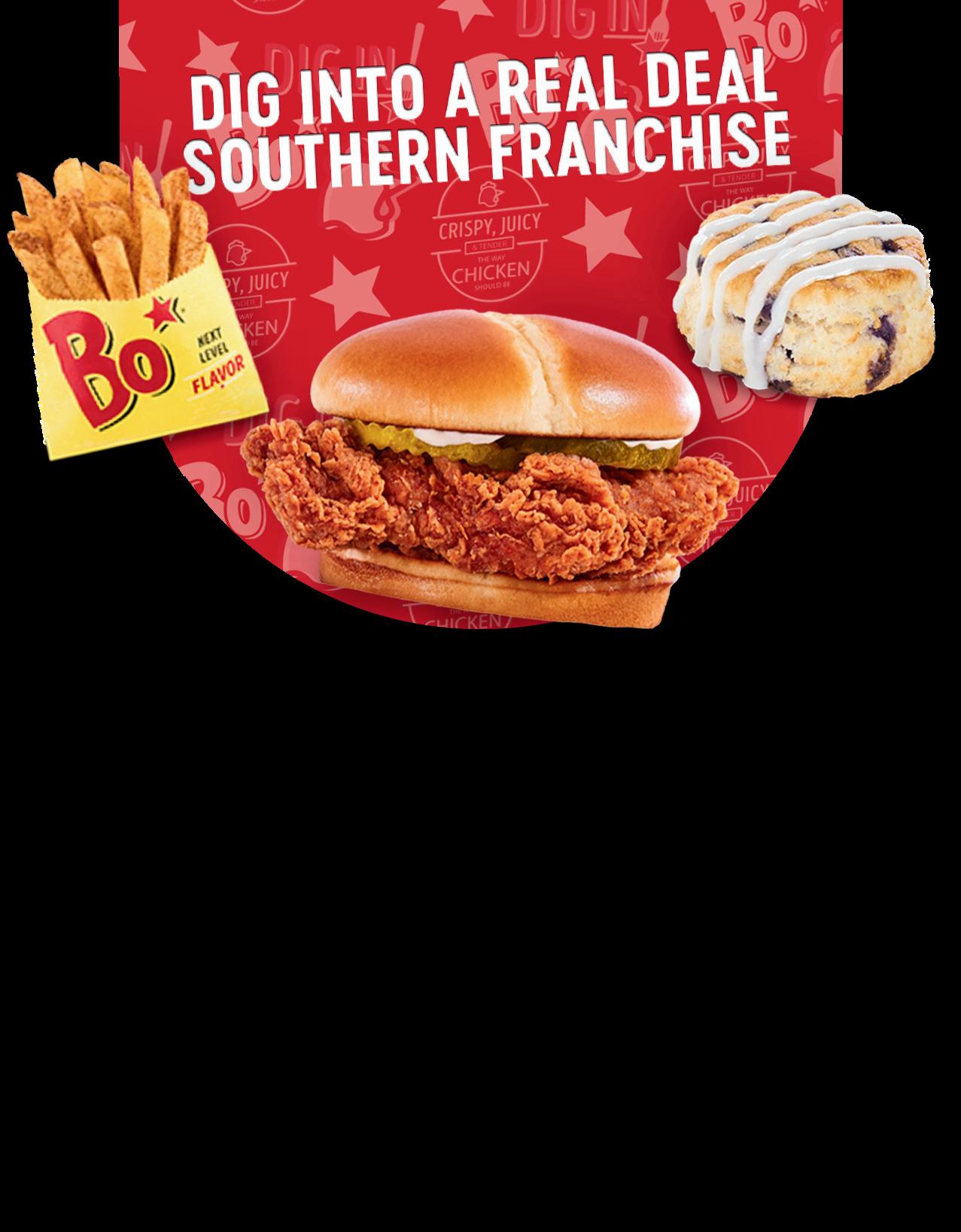

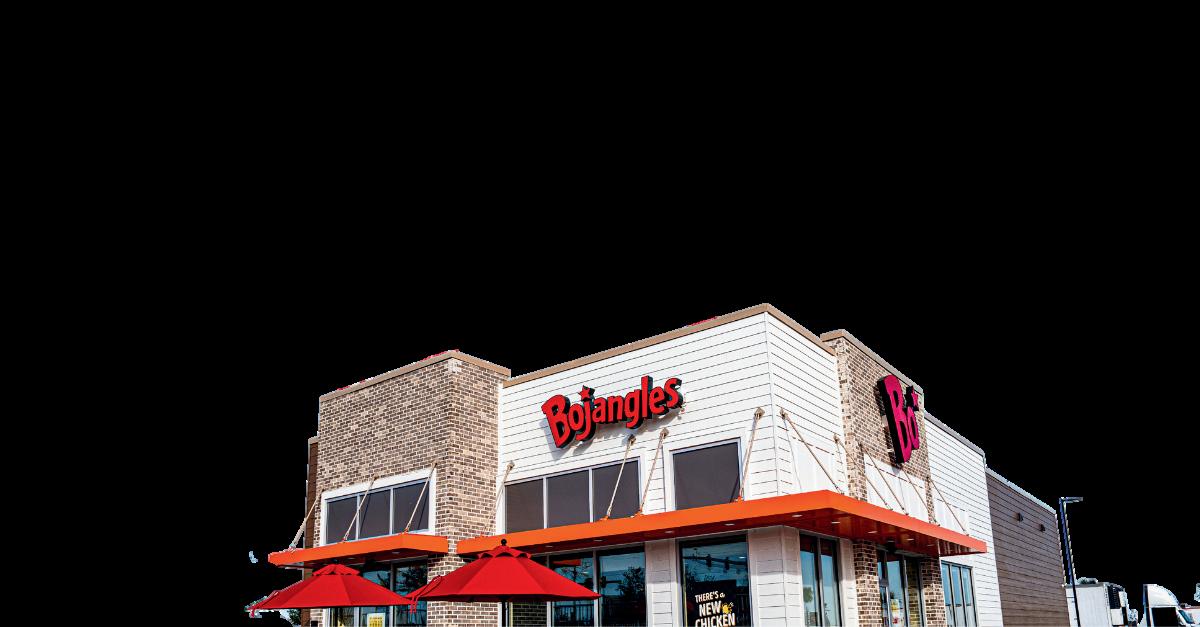

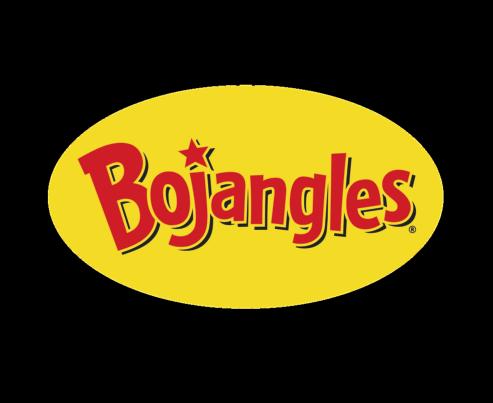
Avoiding Litigation
Dialogue and social capital can often resolve disputes
Written by BRIAN SCHNELL
Certain franchise disputes can only be resolved through litigation. Those disputes often include matters of system-wide importance, such as franchisors requiring the purchase and use of certain technology. However, the vast majority of franchise disputes can and should be resolved without litigation. The key is for franchisors and franchisees to commit to using best practices.
Franchise disputes arise when conflict is not resolved effectively. Conflict within a franchise system is not necessarily negative. It can be healthy if it leads to the right outcomes. It all depends on how a conflict is addressed and resolved:
• Is there constructive dialogue to explore potential solutions?
• Or do the parties focus on winning the conflict? Dialogue is not franchisors and franchisees talking at each other, trying to convince the other that they are right. Dialogue embraces the reality that franchisor and franchisee interests, roles, and responsibilities are similar in some respects and quite different in others. Dialogue is listening to one another—actually listening! Franchise relationships fail, and litigation often follows, if franchisors and franchisees do not adequately address breakdowns with constructive dialogue and a collaborative focus on finding solutions. When parties stop actively listening and communicating with one another, they resort to litigation or legislation.
Good faith
A proper respect and understanding of social capital are essential components of active listening, dialogue, and collaboration. It is not about warm and cuddly feelings. Rather, social capital encompasses a
wide variety of specific benefits that flow from trust, reciprocity, information sharing, collaboration, and cooperation.
Reciprocity is one person doing something for another without knowing if or when the favor will be returned. Trust in franchising is the sense of giving each other the benefit of the doubt. Positive things can happen when franchisees and franchisors assume the other is acting in good faith until proven otherwise. They also happen when a franchisor empowers franchisees without giving up control or decision-making authority.
Highly effective leaders make social capital a fundamental cornerstone when dealing with any of the system’s stakeholders. This open and thoughtful approach becomes part of the system’s culture, its DNA.
Cause and effect
Leaders are always looking for different ways of doing things to improve performance, efficiency, and profitability. It’s important for franchisors to take a critical look at how any potential change affects franchisees. Potential questions include:
• Do leaders fully embrace an attitude and culture of collaboration? Or are they focused on command and control, where the franchisor announces a decision to franchisees without any meaningful input?
• How many practices are in place because that is the way they’ve always been done?
• How many rules are designed to keep something from happening instead of accomplishing something?
System standards are a key concern. Not surprisingly, they are often at the heart of a dispute. If the focus of the majority of system standards is geared more toward compliance for the sake of compliance rather than building the brand and the franchisees’ bottom line, then there is an opportunity for improvement.
It’s not just about franchisors. Franchisees should ask themselves similar questions about how to approach key issues that affect their businesses and their relationships with franchisors. It’s smart to get team members involved in understanding the franchisors’ perspectives and finding ways to align.
This commitment to effective dialogue and social capital will lead to resolving more disputes without resorting to litigation. Rate your system on a scale of 0 to 10 with 0 being what happens when people engage in conversations to prove their point of view and 10 being what happens when people explore other points of view and choose what is best for all with no personal attachments or fears.
How often in a franchisor-franchisee conflict does each side get attached to their perspectives without fully exploring other points of view? Walking in someone else’s footsteps and seeing things through their eyes often lead to creative solutions, which will lead to better outcomes and less litigation.
As I often say, resolving disputes is about the right people having the right conversations at the right times.
Brian Schnell is the chair of Faegre Drinker’s franchise practice. He is passionate about franchising and has more than 35 years of experience focusing on finding solutions to challenges and opportunities for clients. He is also the chair of IFA’s Franchise Relations Committee.

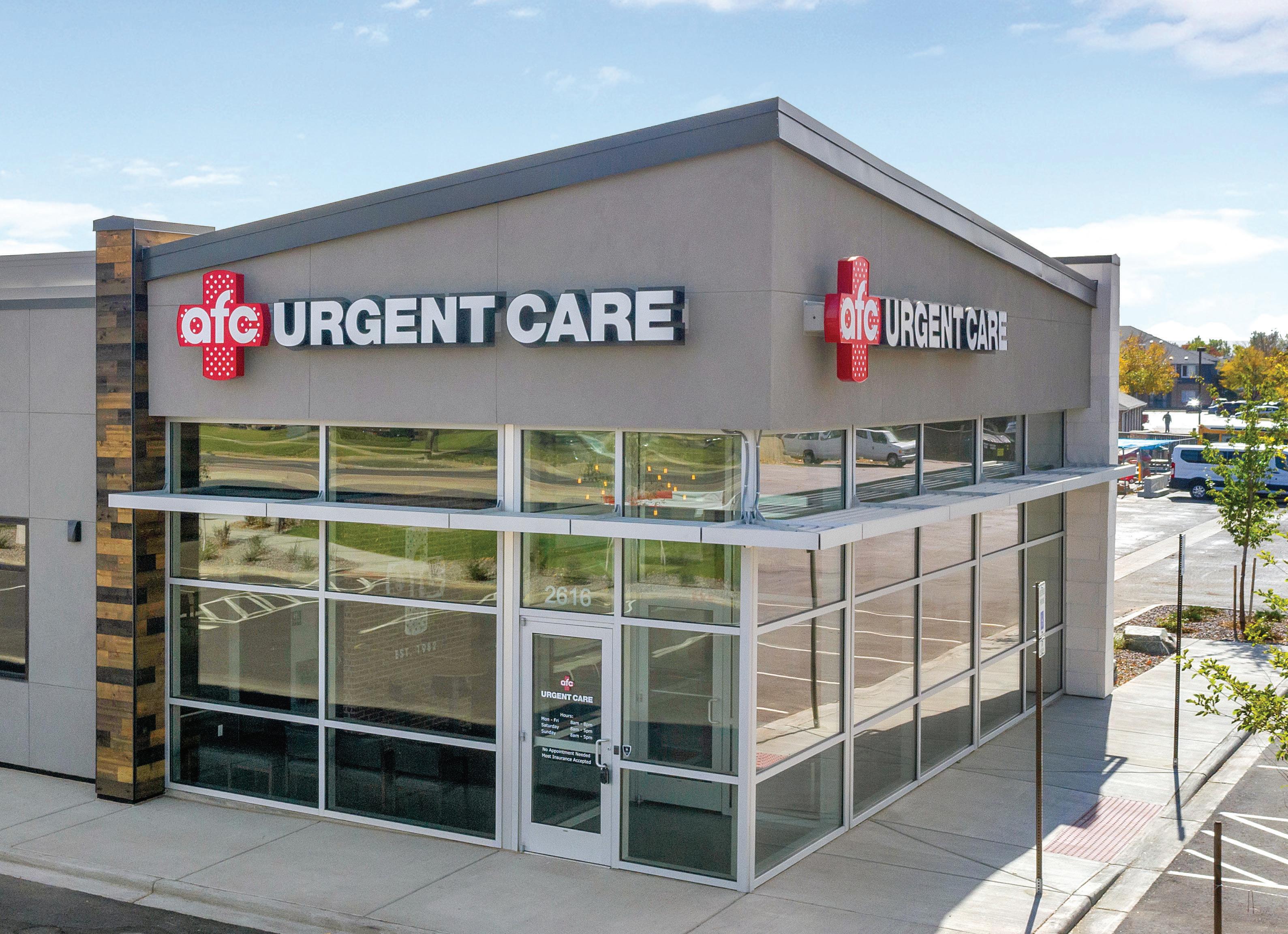
Stepping on the Accelerator
ARE YOU READY FOR PRIVATE EQUITY TO SPEED YOUR GROWTH?
Written by TORI WAGNER
Private equity (PE) can be a powerful growth accelerator for the right brands and operators.
For many, a PE investment may feel like validation: access to capital, strategic insight, and the backing of a sophisticated financial partner.
The reality is more nuanced. PE is not a onesize-fits-all solution. Determining whether a PE partner is right for your business requires a deep understanding of how these investments work and the trade-offs required. The key is determining whether an institutional investor or PE partner is a fit with where your business is today and where you want it to be tomorrow.
The PE model PE firms seek investments that offer a clear path to scale and generate a strong return within a defined period, typically four to eight years. A traditional PE investor’s goal is to grow enterprise value over that time and exit through a sale or recapitalization.
For established, pro-growth brands and multiunit operators with infrastructure in place, this can be a productive relationship. For emerging brands or newer operators working on improving unit economics, proving out new markets, or building out systems, the pressure to grow quickly can create hardship. PE investors expect growth, and if your business needs time to evolve strategically, you may find the typical PE clock ticking too quickly. The additional risk associated with less established brands and operators can also negatively impact PE valuations, which can result in less capital invested or a smaller remaining ownership stake for the brand or operator.
Not all PE firms operate the same way. Some are financially driven and purely focused on efficiencies and return. Others offer strategic support, like operational guidance, industry and development experience, and broad networks. Smaller brands and operators can benefit from investors who bring outside resources and expertise.
It is also helpful to align with a PE partner who understands the franchise and multi-unit business model, including the differences between corporate and franchised units, the dynamics of franchisor-franchisee relations, and the drivers of
enterprise value. Whether you’re a brand owner or operator, partnering with a PE firm with real multiunit or franchise experience can significantly affect execution and outcomes.
Investment horizon
Investment horizon is another critical variable to consider when evaluating a PE partner. Many founders and operators underestimate how quickly a four to eight-year investment period can pass when executing on a multi-year growth strategy.

A longer-term investor provides room for deliberate planning, disciplined development, and continued operational refinement. Less mature businesses may struggle under short-term performance pressures. A newer brand that is still in the process of refining its unit model or a franchisee making their first significant investment needs time to execute properly. That may not align with an investor looking to double EBITDA within three years.
Investment structure
In the same way that there are different types of PE investors, there are also different ways that PE firms can structure their investments. A lot of PE investments include both equity and debt or debt-
like components, often in the form of preferred returns and payouts. If growth targets are met and the business performs, the returns can be substantial for everyone. However, if growth slows, these obligations can become a burden.
Private equity is about alignment on growth targets, timelines, roles, and exit expectations. A PE investor might want to introduce new initiatives or expand into new markets faster than your team is ready to go. Franchisees may feel pressure to take on more development or acquire additional units beyond what their teams can realistically manage.
Cultural fit
Cultural fit is just as important as financial structure. A PE investor who is looking for daily updates and formal governance around all decision-making may clash with a founder-led team accustomed to informality and autonomy. PE firms often introduce new oversight and structure that can be a shock to some operators.
Prerequisites
Private equity investors are looking for proven potential and a clear path to scale. To drive interest and maximize the value of your brand or company to a PE investor, it is important to have:
• Positive and consistent unit-level economics
• Demonstrated market demand from consumers and/or franchisees
• Focused leadership with a mindset and strategy to grow
• Infrastructure in place, including systems and people, that can support expansion
Explore alternatives
If PE doesn’t sound like the right fit, there are other capital alternatives, including family offices, traditional senior lenders, mezzanine lenders, and unitranche lenders. These options may be able to provide capital with longer timelines or fewer strings attached.
Private equity can be a powerful lever for growth, but it’s not the answer for every business in every situation. The best outcomes result when both parties are aligned on a vision, strategy, and timing. That starts with an honest assessment of your business’ current capabilities, your team’s readiness, and your appetite for rapid acceleration.
PE is more than capital; it’s a business partnership. Choosing the right partner can unlock transformative growth and value. Choosing poorly can expose your business to more risk than reward.
Tori Wagner is a vice president with C Squared Advisors, an advisory firm that focuses on multi-unit franchisees and franchisors. She has worked with franchisees for more than a decade, advising clients through M&A transactions as well as raising debt and equity capital to support strategic initiatives. Contact her at 508-769-0097 or tori@c2advisorygroup.com.
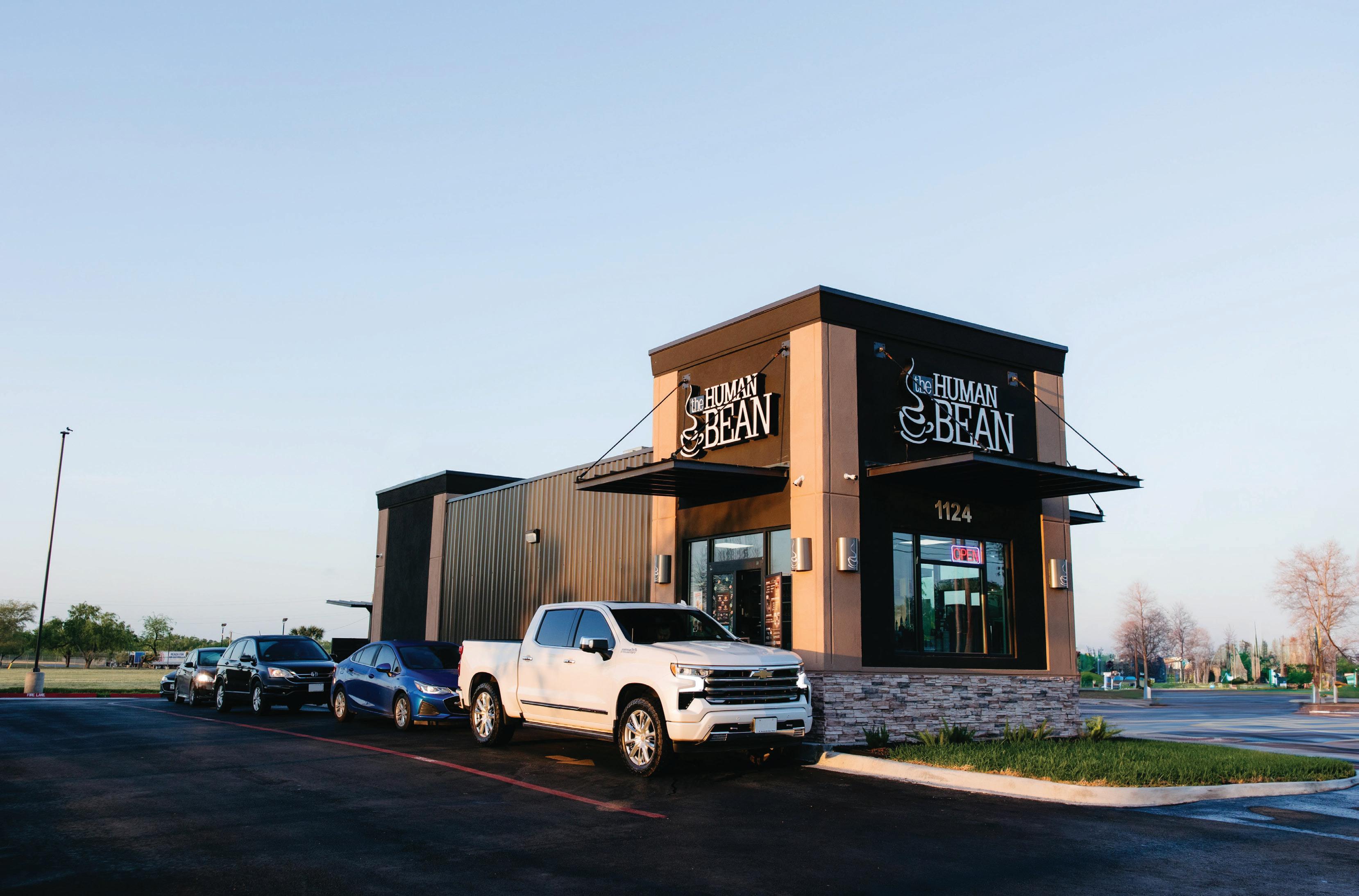

A Growth Spurt
Looking at private equity in early-stage franchises
Written by PAUL WILBUR
Private equity (PE) is no longer a peripheral player in franchising; it’s central. FRANdata estimates that more than 12.4% of active U.S. franchise brands (regardless of how long they’ve been franchising) now have some level of PE ownership or investment backing. That represents hundreds of brands, spanning nearly every sector of franchising.
One notable trend is that PE firms are no longer waiting for brands to become fully mature before investing. In many cases, they are entering early, sometimes when brands are operating only a handful of locations. The number of brands that start franchising with PE investment behind them has grown significantly in the past 10 years.
These PE firms function as incubators, bringing professional leadership, marketing resources, technology, and franchise development expertise to help emerging brands grow from five to 10 units to 50 to 100 or more. This model is especially attractive to founders who want to scale quickly but need outside capital and expertise to do so.
While investment in early-stage food brands outpaces non-food brands, there has been interest in nearly every industry.
Private equity investors are increasingly drawn to the franchise business model because it offers a combination of steady revenue streams, scalability, and risk sharing. The foundation of most franchise systems is the royalty and fee income that franchi-
sors collect from their franchisees based on sales. These recurring, predictable cash flows are highly attractive to investors seeking dependable returns.
Franchising also offers a highly scalable growth model; rather than requiring large amounts of capital to open corporate-owned units, franchisors can leverage the investments of franchisees to expand with relatively limited capital outlay. In addition, the structure of franchising places much of the operational duties on franchisees, enabling franchisors, and by extension, their investors, to focus on supporting growth and brand development rather than day-to-day operations.
Finally, the market offers attractive exit opportunities: Well-run, fast-growing franchisors with strong unit-level economics can command premium valuations when sold to larger PE firms, strategic buyers, or via public offerings, making franchising an appealing sector for capital appreciation.
For emerging franchisors seeking to attract PE investment, or simply to understand how investor involvement may affect their competitive landscape, it is important to recognize how PE firms evaluate opportunities. Investors are selective; they seek brands with strong unit-level economics, proven franchisee success, and clear potential for scalable growth. Professionalism is essential. Franchisors must have well-documented systems, transparent financial reporting, and leadership teams capable of managing rapid expansion. Equally important
is growth readiness. PE firms prefer to invest in brands that have already demonstrated market fit and operational maturity rather than concepts still in development.
Finally, franchisors should understand that not all PE investments are structured the same way. Some investors take controlling stakes and become actively involved in day-to-day management while others prefer to act as minority partners and strategic advisors. It is critical for franchisors to be clear about what kind of partnership they want and what level of control they are willing to share as they engage with potential investors.
The growing role of private equity is reshaping the franchising world. PE-backed groups are often better capitalized, faster-moving, and more sophisticated than traditional owner-operators. This can raise the competitive bar for other brands in terms of marketing, technology, and franchisee support.
At the same time, the presence of PE also opens doors for founders of emerging brands, offering new avenues to scale, new partnership opportunities, and in some cases, paths to personal liquidity.
Paul Wilbur is COO of FRANdata, where he is instrumental in building the company’s research and consulting framework. He manages the research, information management, marketing, and IT departments and plays an integral role in the strategic development of FRANdata’s suite of franchise solutions. Contact him at 703-740-4700.
Early-Stage Brands (Last 10 Years) With PE Investors by Industry

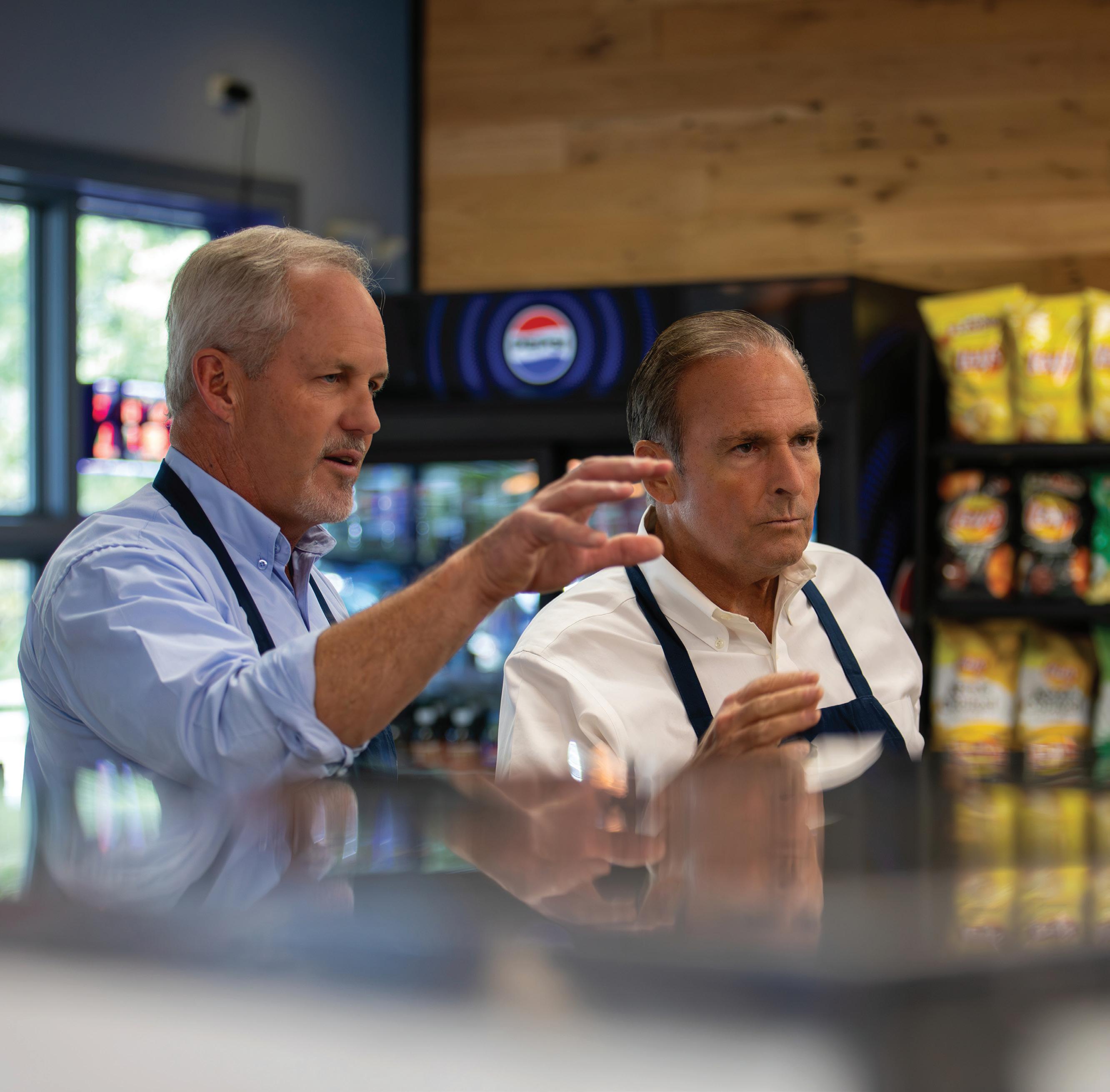



















THE FRANCHISING ON-RAMP
Operators invest in the future with summer hiring
Written by MATT HALLER
Each summer, franchise businesses across the U.S. play a pivotal role in job creation, stepping up as major drivers of employment across a diverse range of industries. From restaurants and childcare to home services and fitness centers, franchise brands are actively addressing workforce gaps, offering early-career opportunities, and fueling local economies. This comes at a time when businesses are navigating persistent labor shortages, making the summer hiring season more critical than ever.
Significant effect
A prime example of the scale and significance of summer hiring can be seen at McDonald’s, which announced plans to hire up to 375,000 workers nationwide this summer. With 900 new restaurants opening soon and more than 13,500 already in operation, McDonald’s is using its national footprint to efficiently attract and onboard new talent. U.S. Secretary of Labor Lori Chavez-DeRemer joined the company for this major announcement in Ohio, signaling the public sector’s growing recognition and support of franchising’s role in workforce development.
In Maryland, McDonald’s is partnering with the state to hire nearly 4,000 workers across 330 restaurants. That effort earned recognition from Gov. Wes Moore and coincides with the 10th anniversary of Archways to Opportunity, McDonald’s education and career advancement program that has already helped more than 1,000 Marylanders pursue academic goals and professional growth. It’s a powerful example of how franchising is more than just a job; it’s an on-ramp to a career, often with support structures and advancement pathways that go beyond what other industries provide. These kinds of public-private collaborations reflect what’s possible when business leaders and policymakers work together to create meaningful economic mobility.
This trend extends far beyond one brand. According to IFA’s latest Franchisee and Franchisor Surveys, labor availability remains the number one concern for many operators. Summer presents a strategic window to close those gaps. For multi-unit franchisees, it’s a chance to align staffing across locations, optimize onboarding, and invest in team members who will grow with your business.
What’s working?
We’re seeing franchisees connect with students, part-time workers, and reentrants to the workforce, often with flexible hours, fast-track training, and clear paths to advancement. Brands in childcare and education hired seasonal staff as schools let out. Fitness franchises staffed up for summer surges. Home service operators added technicians to meet seasonal demand. In every sector, the bestrun locations treat summer hires as more than just a short-term fix; they’re building pipelines for longterm talent.
The impact of summer hiring in franchising goes beyond filling immediate vacancies. For many workers, especially those starting in entry-level positions, these jobs can serve as stepping stones to longterm careers. According to industry statistics, one in eight Americans has worked at a McDonald’s at some point in their lives, and many have advanced from entry-level roles to management, ownership, or leadership positions. This upward mobility is a testament to the opportunities that franchising provides for skill development, career advancement, and entrepreneurship.
Move the needle
Even small-scale benefits programs can move the needle. McDonald’s Archways to Opportunities offers education support and career coaching to retain talent, but you don’t need a national budget to make an impact. Operators are finding success with targeted incentives: career mentorship, retention bonuses, split-shift flexibility, or even simplified pathways to promotion. Small changes can lead to big gains in loyalty and retention.
Franchising remains one of America’s most resilient engines of opportunity, supporting nearly 9 million jobs and generating more than $825 billion in economic output. Summer hiring is just one part of that story, but it’s a telling one: It shows how franchise businesses rise to meet labor challenges with creativity, investment, and purpose.
When the hiring season was heating up, franchising was once again doing what it does best: creating jobs, building futures, and serving communities across the country.
Let’s keep making the most of it.
Matt Haller is president and CEO of the International Franchise Association.

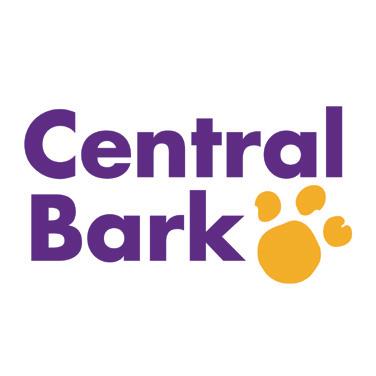

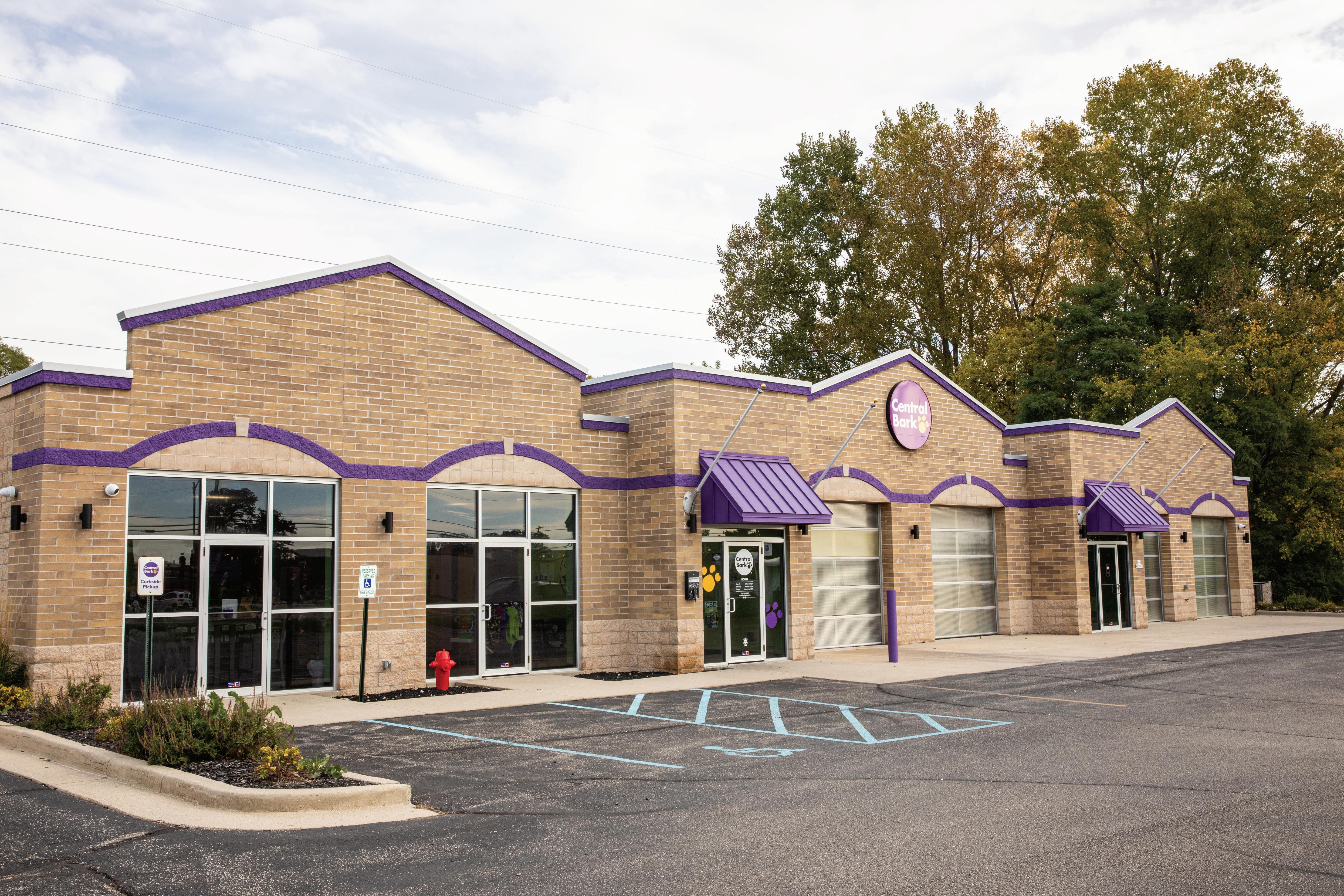


FUEL YOUR FRANCHISE
—
All You Need to Grow in 2025 & Beyond
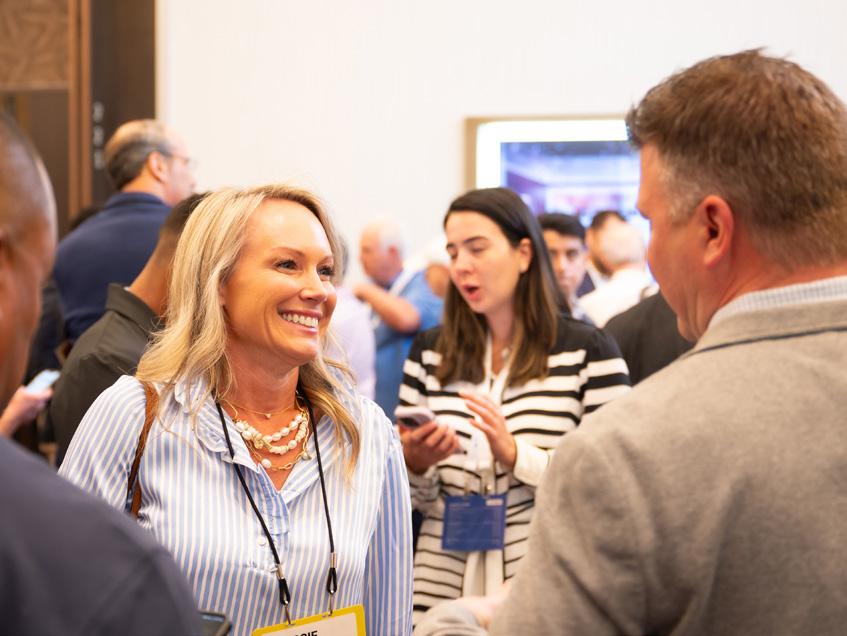
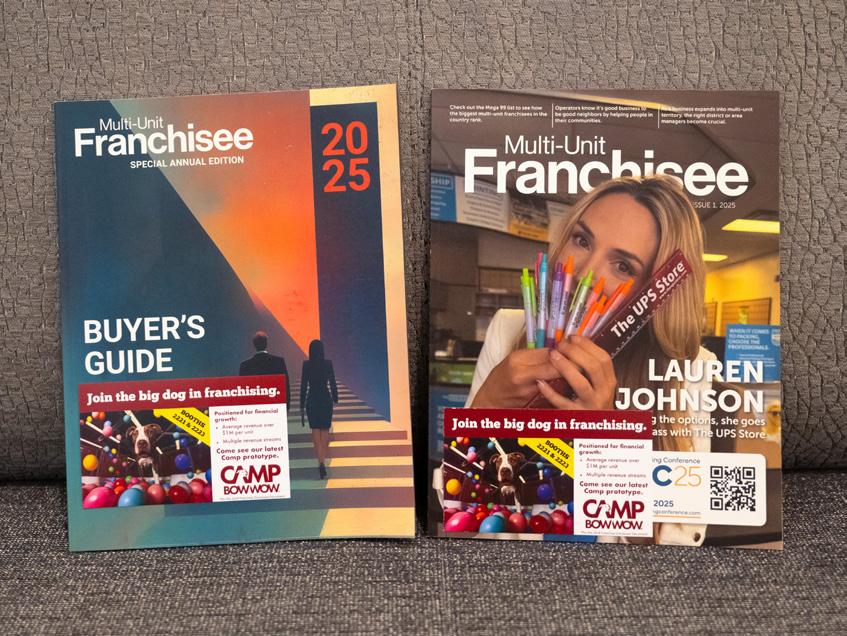
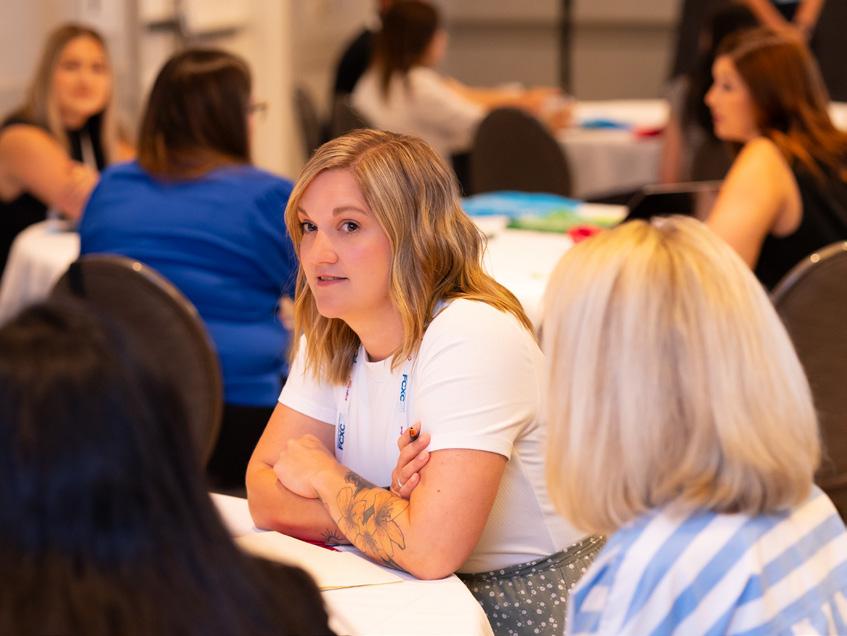
Grow Your Network

Whether you’re looking to expand your brand, build your network, or elevate your team, Franchise Update Media delivers the resources to help you grow — now and into 2026.
Build meaningful relationships and expand your reach with high-impact networking events.
• 2025 FLDC – Connect with development leaders & franchise sales executives
• 2026 MUFC – Meet high-performing multi-unit franchisees ready to grow
• 2026 FCXC – Collaborate with operations, marketing & CX teams from top brands
Grow Your Brand
Attract the right franchise candidates — single-unit and multi-unit prospects — across the platforms they trust.
• Franchise recruiting packages on Franchising.com
• Visibility in digital newsletters & custom email campaigns
• Featured placement in Multi-Unit Franchisee Magazine and 2026 Multi-Unit Buyer’s Guide
Grow Your Team’s Results
Educate and empower your people with industry-leading content and benchmarking.
• Sponsored content & case studies to showcase thought leadership
• Insights, tools and profiles in digital newsletters and Franchise Update Magazine
• Editorial exposure in conference content & publications
We’re here to help you build, scale and strengthen your system. Let’s work together to grow your brand, grow your team and grow your competitive edge. Because your growth is our mission.




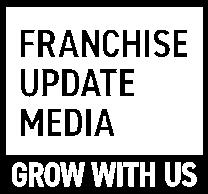
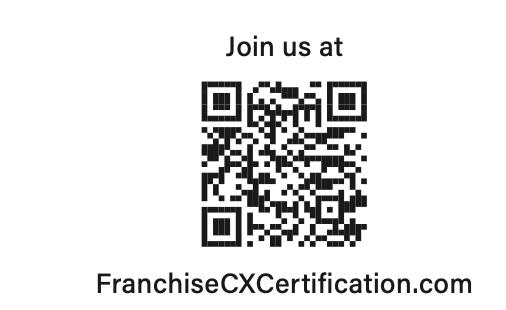



CONGRATULATIONS totheinitialrecipientsofthe2025Franchise CustomerExperienceCertification,validatingpracticesthatdrivefranchisee profitabilitythroughoutstandingfranchiseeandconsumerexperience.


